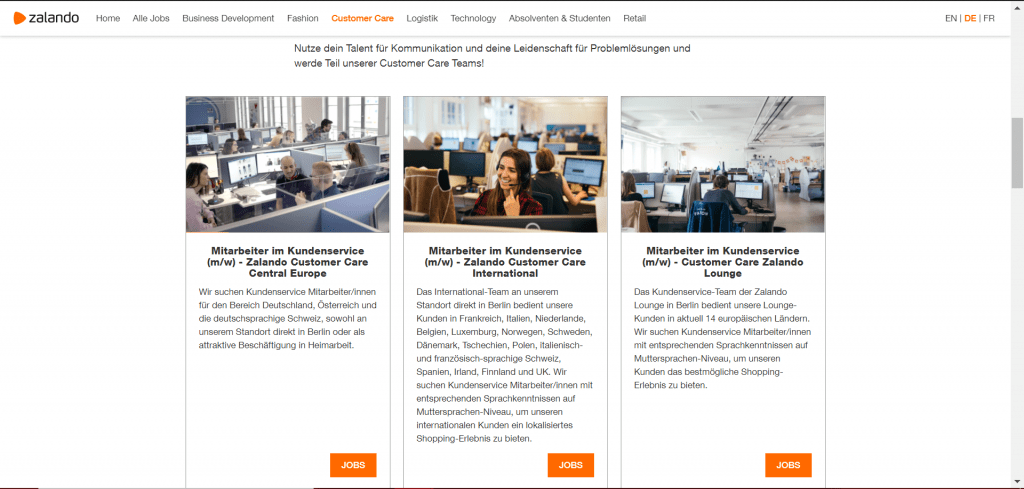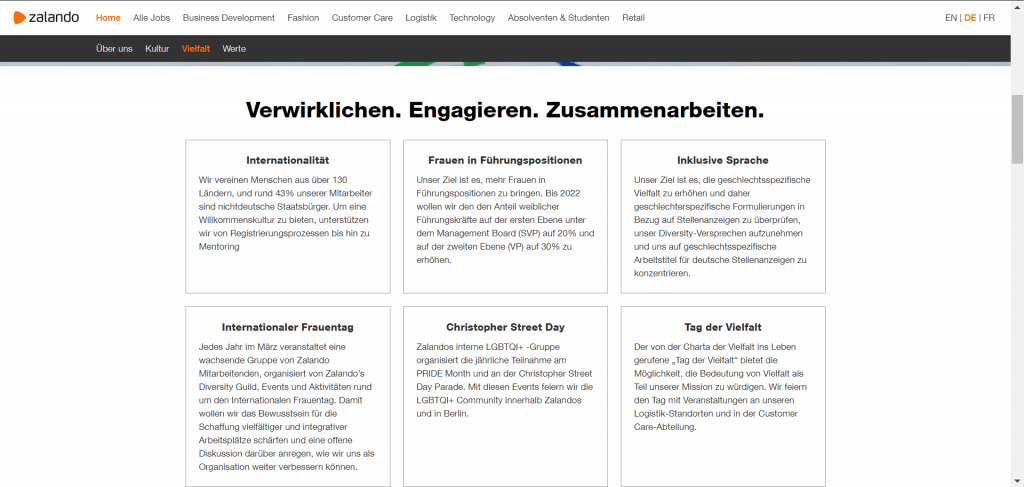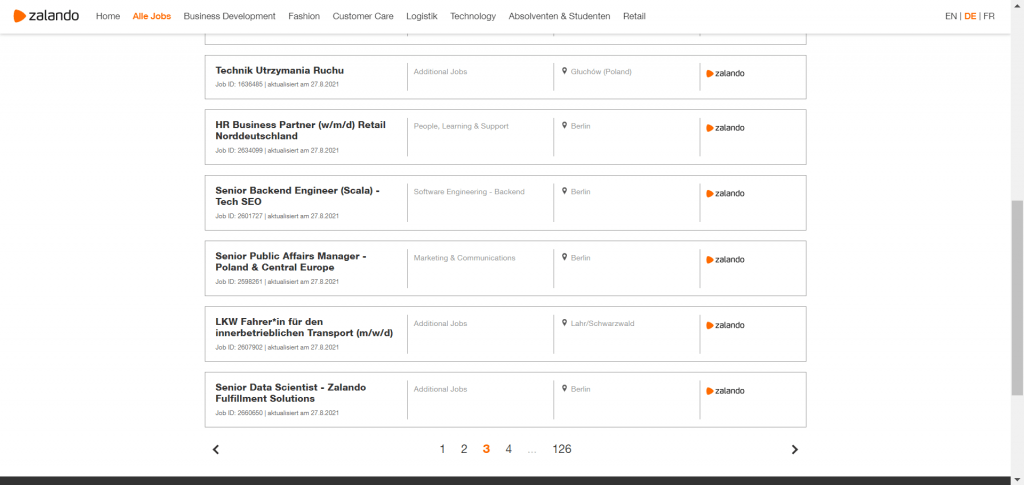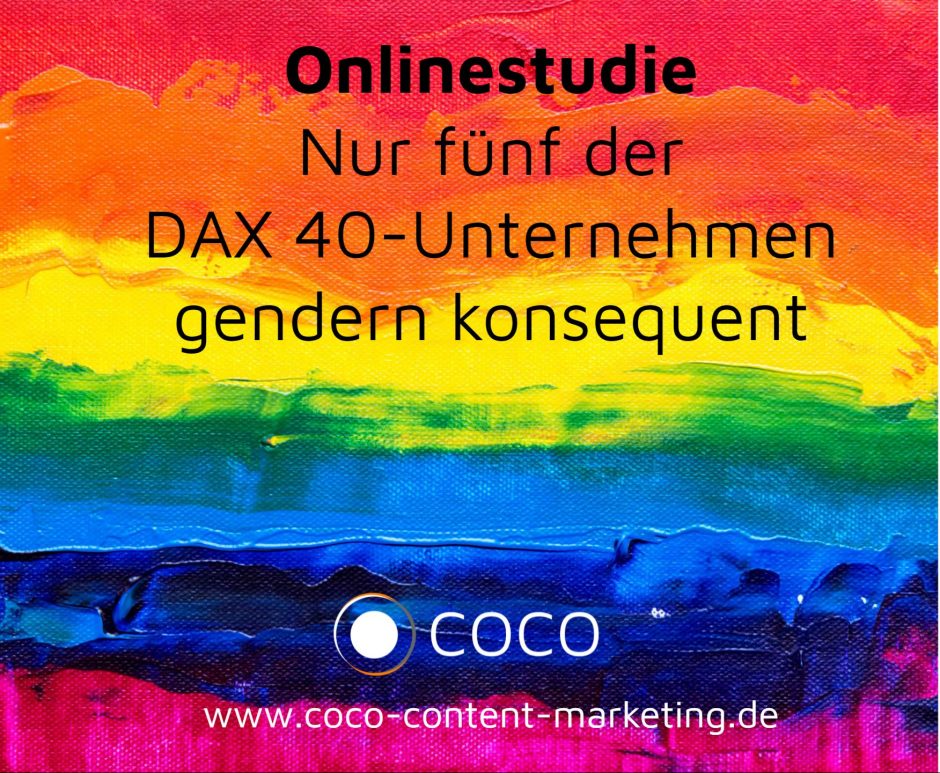Onlinestudie: Nur fünf der DAX 40-Unternehmen gendern konsequent
Deutschland ist eines der wenigen Länder der Welt, dass neben den biologischen Geschlechtern Mann und Frau auch noch das sogenannten “Dritte Geschlecht” anerkennt.
Im Personalausweis steht dann nicht etwa m oder w, sondern ein x. Dies macht auch zweifelsohne Sinn, da es zweifelsohne Menschen gibt, deren biologisches Geschlecht sich nicht in männlich oder weiblich einordnen lässt, z.B intersexuelle Menschen. Bei Intersexuellen bildet sich keines der beiden Geschlechtsmerkmale aus. Meistens ordnen sich diese Menschen jedoch einem jeweiligen Geschlecht mehr zu. Dieses Phänomen der Intersexualität kommt nur bei etwa jeder 5000. Geburt vor.
Das biologische und das soziale Geschlecht
Nun unterscheidet man aber auch zwischen dem biologischen Geschlecht, dem Sex und dem sozialen Geschlecht, Gender, also das, in dem man sich als sich selbst, unabhängig von seinen biologischen Geschlechtsmerkmalen, sieht. Üblich und anerkannt sind hier, neben maskulin und feminin, weiter 58: z.B Genderqueer, Gender variabel, Nicht-binär, Transgender, Pangender, XY-Frau, Butch, Femme, Drag, Transvestit, Cross-Gender und noch viele weitere. Als klar definierter Mann oder Frau kann man hier nur staunen, verurteilen oder den Kopf schütteln aber nicht.
Nun stellt sich jedoch die Frage: Sollen wir all dieses Geschlechter in unsere Sprache mit einbeziehen und wenn ja, wie? Diese Frage lässt sogar führende Politiker verzweifeln. Wir bei COCO werden als Content Marketing Agentur oft mit dieser Frage konfrontiert. Es gibt verschiedene Möglichkeiten bei Texten oder Erwähnungen, alle Geschlechter mit einzubeziehen:
Stets 60 Gender aufzuzählen, ist weder für den Redner noch für den Zuhörer zumutbar. Allen war klar: Dafür braucht es eine andere Sprachregelung. Und damit ging das Chaos los. Es gibt zum einen die Möglichkeit, beispielsweise im Zug, die Menschen mit Fahrerinnen und Fahrer anzusprechen. Geschrieben wird dann etwa Fahrer(-innen), Fahrer/-innen oder FahrerInnen. Jetzt mit den 60 Geschlechtern schreibt man Fahrer_innen, denn die Lücke über dem Unterstrich symbolisiert den Platz, den die 58 weiteren Gender einnehmen. Mittlerweile schreibt man allerdings oft Fahrer*innen. Der * steht für das Gleiche wie _. Die einfachste und anschaulichste Methode ist aber wahrscheinlich die Verallgemeinerung der verschiedenen Bezeichnungen. Aus Fahrer*innen wird beispielsweise Fahrende oder aus den Studenten wird beispielsweise Studierende.
Nun stellte sich uns die Frage, wie handhaben eigentlich die wichtigsten Konzerne aus dem DAX 40 diese Herausforderung? Wird hier die gleiche Strategie, welche auch auf Social Media zu finden ist, verfolgt? Unsere erstaunlichen Funde und Informationen erwarten dich in der folgenden Studie:
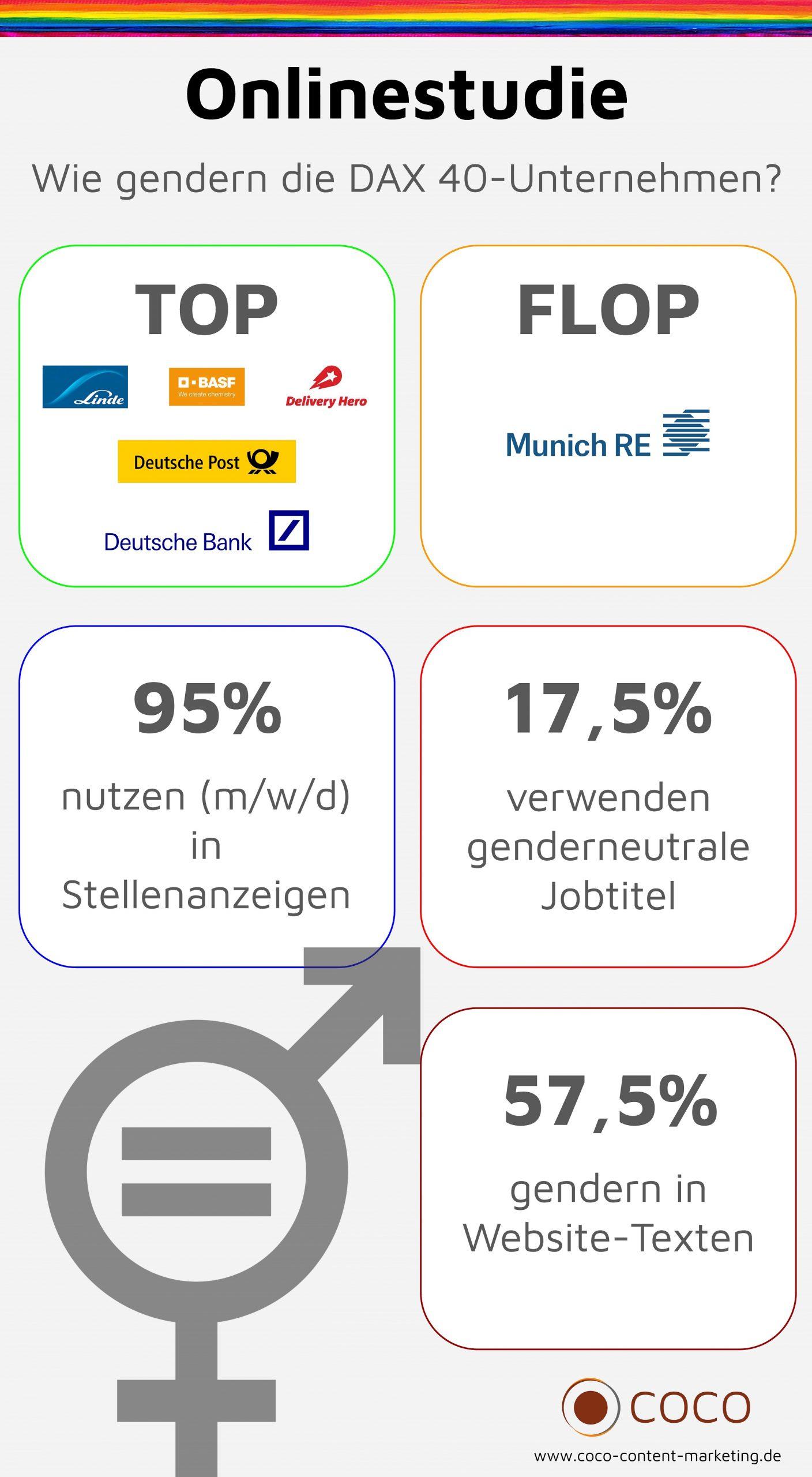
Inhaltsverzeichnis
Zentrale Ergebnisse: Das Wichtigste aufgelistet
Ergebnisse im Detail: Resultate in ausgeschriebener Form
Auffälligkeiten: Tops und Flops
Unternehmen im einzelnen:
Adidas: Kleidungs- und Sportartikelhersteller
Allianz: Versicherungspartner
Airbus: Fluganbieter
BASF: Chemiekonzern
Bayer: Pharma- und Chemiekonzern
BMW: Automobilhersteller
Brenntag: Distribution von Chemikalien und Inhaltsstoffen
Continental: Automobilzulieferer
Covestro: Werkstoffhersteller
Daimler: Automobilhersteller
Delivery Hero: Online-Bestellplattform für Essen
Deutsche Bank: Kreditinstitut
Deutsche Börse: Aktiengesellschaft
Deutsche Post: Logistik- und Postunternehmen
Deutsche Telekom: Telekounikationsunternehmen
Deutsche Wohnen: Wohnungsgesellschaft
E.ON: Energiekonzern
Fresenius: Medizintechnik- und Gesundheitskonzern
Fresenius Medical Care: Anbieter von Dialyseprodukten
HeidelbergCement: Baustoffkonzern
Hello Fresh: Bietet „Kochboxen“ an
Henkel Vz.: Hersteller von Konsumgütern
Infineon: Halbleiterhersteller
Linde: Industriekonzern
Merck: Chemie- und Pharmakonzern
MTU Aero Engines: Hersteller für Flugzeugtriebwerke
Munich RE: Rückversicherungsgesellschaft
Porsche SE: Beteiligungsgesellschaft bei der Börse für Porsche
Puma: Hersteller von Sportartikeln
QIAGEN: Anbieter von Probenvorbereitungs- und Testtechnologien
RWE: Energieversorgungskonzern
SAP: Softwarekonzern
Sartorius: Pharma- und Laborzulieferer
Siemens: Mischkonzern mit Schwerpunkt auf Automatisierung und Digitalisierung
Siemens Energy: Elektro- und Energietechnikkonzern
Siemens Healtheeniers: Muttergesellschaft die Medizintechnische Aktivitäten zusammenfasst
Symrise: Anbieter von Duft- und Geschmacksstoffen
Volkswagen (VW) Vz.: Automobilhersteller
Vonovia: Immobilienkonzern
Zalando: Online-Versandhändler
Zentrale Ergebnisse
- 95% der DAX-Unternehmen gendern mit (m/w/d) in den Jobtiteln ihrer Stellenanzeigen (38 von 40)
- 17,5% verwenden eine genderneutrale Rechtschreibung bei der Bezeichnung der Jobs (7 von 40)
- 57,5% gendern generell in Website-Texten (24 von 40)
- Nur 5 der 40 DAX-Unternehmen gendern umfassend. (BASF, Delivery Hero, Deutsche Bank, Deutsche Post, Linde)
- Die MunichRE gendert konsequent nicht.
Ergebnisse im Detail
Nach Auswertung unserer Online-Studie geht eindeutig hervor, dass die klare Mehrheit der untersuchten DAX40-Konzerne zumindest auf die korrekte (m/w/d)-Form in den Jobtiteln ihrer Stellenanzeigen achten. Mit 95% sind das dennoch nicht alle der 40 Unternehmen. Obwohl das deutsche Gesetz besagt, dass ab dem 1. Januar 2019 alle Jobanzeigen genderneutral formuliert sein müssen, gibt es 2021 immer noch Firmen in unserer Liste, die ihre Stellenangebote noch nicht angepasst haben. Sie verstoßen somit gegen §1 des Allgemeinen Gleichbehandlungsgesetzes. Dieses besagt, dass kein*e Bewerber*in aufgrund seines Geschlechts benachteiligt werden darf. Insgesamt gibt es also mit der MunichRE und Puma zwei Firmen, die gegen dieses Gesetz verstoßen.
Nur ein Bruchteil der Firmen aus dem DAX gendern umfassend bei ihren Stellenanzeigen. Um genau zu sein nur 17,5% aller DAX-Konzerne verwenden eine genderneutrale Rechtschreibung konsequent. Und das sind eindeutig zu wenige.
57,5% verwenden zusätzlich noch eine genderkonforme Rechtschreibung auf der Webseite, bei Fließtexten oder auf der gesamten Homepage.
Wenn man sich nun einmal die einzelnen Firmen ansieht, erkennt man schnell, dass auch hier Unterschiede in der Beurteilung gemacht werden müssen. Zwar benutzen die Mehrheit der Firmen, die die (m/w/d)-Form verwenden, auch genderneutrale Bezeichnungen bei ihrer Website. Trotzdem sieht man bei rund 34%, dass sie sich nur um die gesetzlich vorgeschriebene Form gekümmert haben. Dies legt die Schlussfolgerung nah, dass hier nur gegendert wird, um eine drohende Geldstrafe auszuschließen.
Es gibt natürlich auch Ausnahmen, bei denen zwar nicht die korrekte Form angewandt ist, dafür aber die Website oder die Stellenanzeigen gegendert sind. Genauso gibt es Firmen, bei denen die Stellenanzeigen zwar gegendert werden, dafür aber die Fließtexte oder (m/w/d)-Form vernachlässigt wird.
Wenn man die einzelnen Rubriken zusammenfasst, gibt es nur 5 Unternehmen (BASF, Delivery Hero, Deutsche Bank, Deutsche Post, Linde), die gemäß dieser Online-Studie konsequent gendern. Diese Unternehmen benutzen die genderneutrale Rechtschreibung sowohl mit der Nutzung der (m/w/d)-Form als auch in den Jobbeschreibungen als auch in den Fließtexten der Webseite.
Auffälligkeiten
Eine nennenswerte Handhabung ist bei Merck zu finden. Merck hat zwar ihre Stellenangebote nicht genderneutral ausgeschrieben, hat dafür aber hinter jedem Jobangebot die Ergänzung:“(all genders)“. Dies ist definitiv die Variante mit der umfassendsten Inklusion und ist auch bei keinem anderen Unternehmen zu finden.
Ebenso erwähnenswert ist die Deutsche Telekom, die am Ende jeder Webseite einen kleinen Textblock eingefügt hat, der besagt, dass die Telekom grundsätzlich alle Geschlechter anspricht und daher gerade dabei ist, ihre Texte zu überarbeiten. Wir müssen natürlich das bewerten, was uns gerade vorliegt, weshalb die Telekom nur zwei Punkte erzielte.
Insgesamt gibt es nur einen Konzern, der keine Art des Genderns anwendet. Dies ist die Münchner Rückversicherungsgesellschaft.
Adidas
Den Start unserer Onlinestudie macht Adidas. Die berühmte Marke mit den drei Streifen, mit Hauptsitz in Herzogenaurach, preist zwar Vielfallt und Inklusion hoch an, kann dieses Versprechen jedoch nicht ganz halten. Wenn man nur einmal den Beitrag zu Diversity liest, erkennt man sehr schnell Worte wie Mitarbeiter, Kollegen, Verkäufer usw. die mit minimalem Aufwand in z.B. Mitarbeitende umgewandelt hätten werden können. Auch bei den Stellenanzeigen wurde keine Wortumwandlung verwendet. Es sind jedoch auch viele Begrifflichkeiten auf Englisch und somit neutral formuliert. Bei den Stellenanzeigen wurde die Kennzeichnung (m/w/d) verwendet.
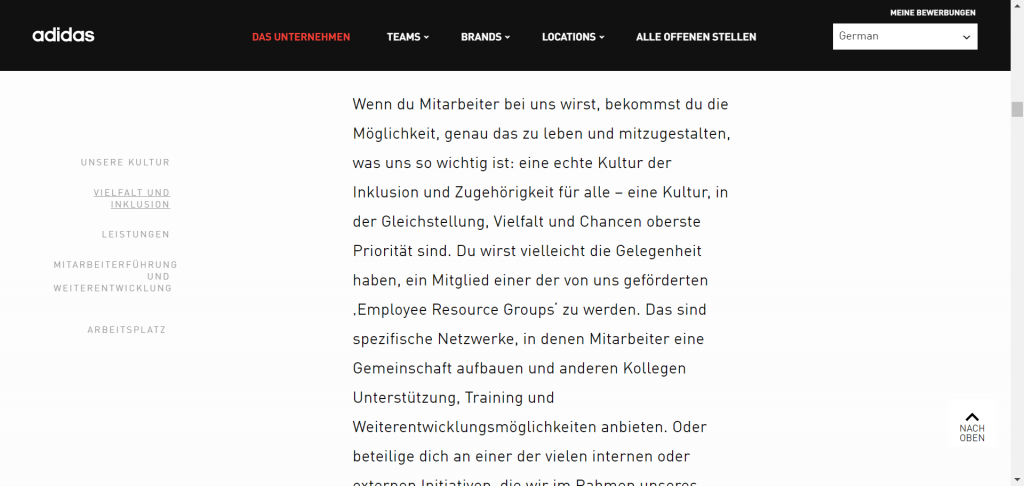
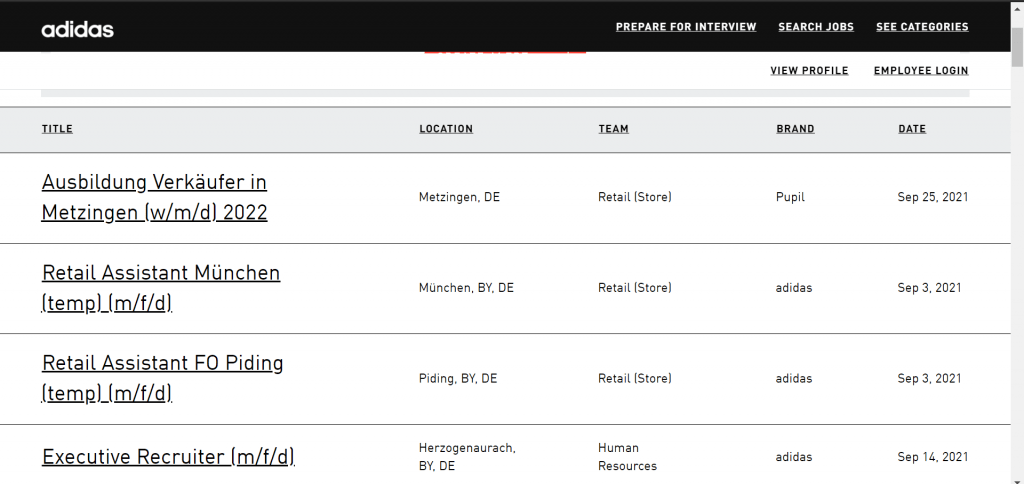
Allianz
Machen wir weiter mit einem der größten Versicherungskonzerne der Welt. Die Allianz ist in den Bereichen Gendern und vor allem der Wortumwandlung sehr Innovativ und einer der Vorreiter. Auf ihrer Webseite und in den Fließtexten sprechen sie mit Wortumwandlungen, wie z.B. Schüler:innen oder Studierende, alle Geschlechter an. Leider haben sie diese vorbildliche Verhalten nicht konsequent durch gezogen. Bei den Stellenanzeigen und Ausschreibungen kann man zwar die (m/w/d)-Form entdecken, jedoch werden Worte wie „Werkstudent“ nicht weiter durch gegendert.
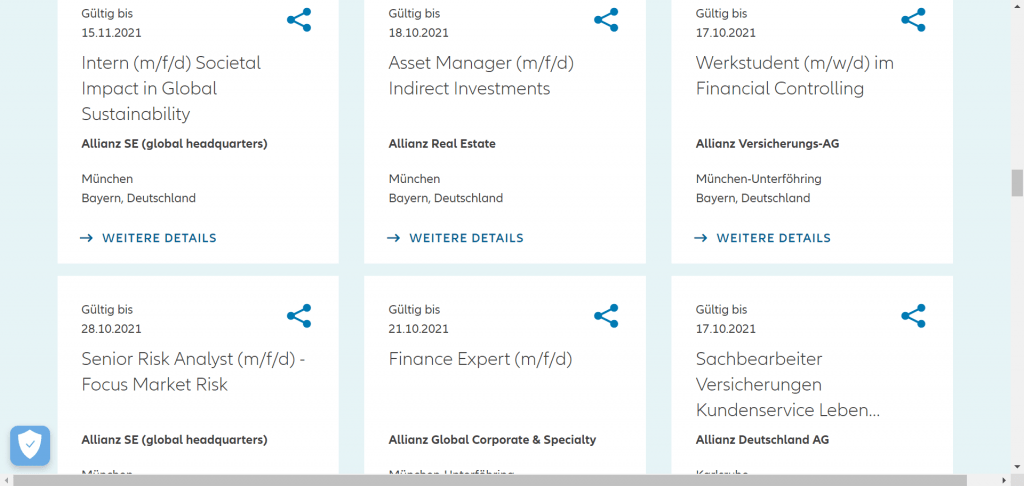
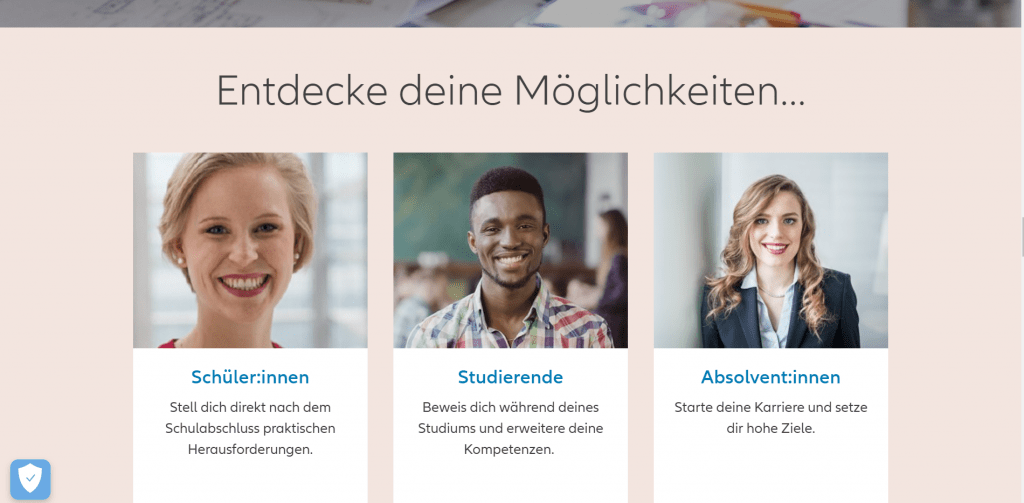
Airbus
Der weltweit größte Flugzeughersteller benutzt eine recht schlaue Art des Genderns. Da die komplette Airbus-Seite auf Englisch gehalten ist und es im Englischen nur die neutrale Form gibt, waren wir gezwungen Airbus hierbei ein Ja auf die Frage des Genderns auf der Webseite zugeben. Auch bei den Stelleanzeigen wurden hauptsächlich englische Begrifflichkeiten sowie die (m/w/d)-Form verwendet. Jedoch gibt es auch deutsche Jobanzeigen und bei diesen wurde NICHT auf die genderkonforme Rechtschreibung geachtet. Keine Punkte von unserer Seite.
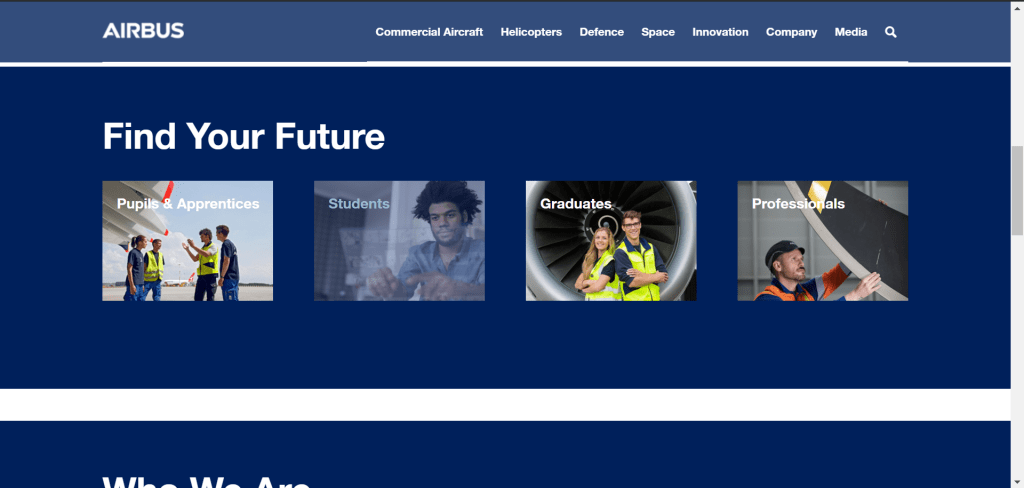
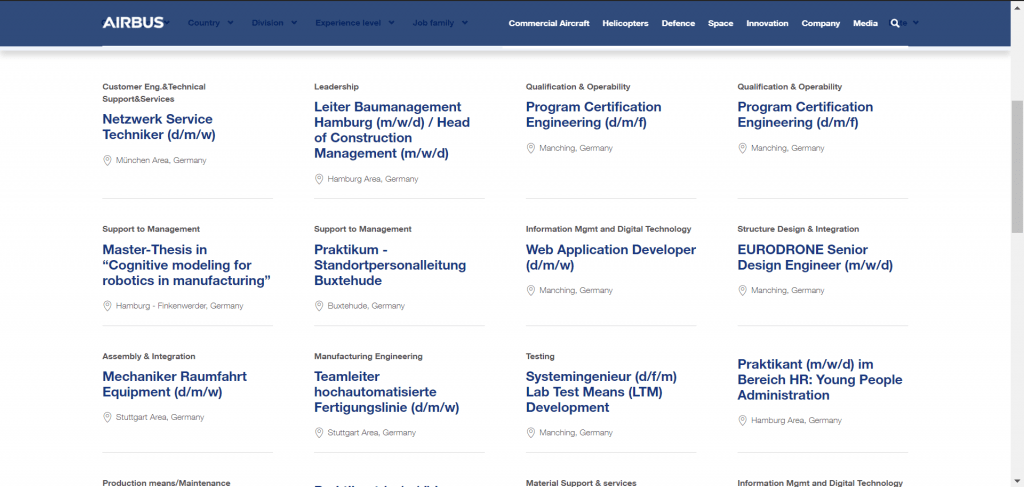
BASF
Der börsenorientierte Chemiekonzern BASF SE, mit Sitz in Ludwigshafen ist der erste Kandidat, unserer Studie, der in allen drei Kategorien die volle Punktzahl erhält. Bei dem 110.000 Mitarbeiter Betrieb wird Diversity und Gleichberechtigung groß geschrieben. Schon bei einem Blick auf die BASF-Homepage stechen Wortumwandlungen wie z.B. Studierende oder Berufseinsteiger:innen ins Auge. Auch wenn man die ausgeschriebenen Stellenanzeigen betrachtet, erkennt man sofort die konsequente Weiterführung von Genderkonformen Bezeichnungen sowie der Einheitsform (m/w/d). Volle Punktzahl in jedem Themenbereich!
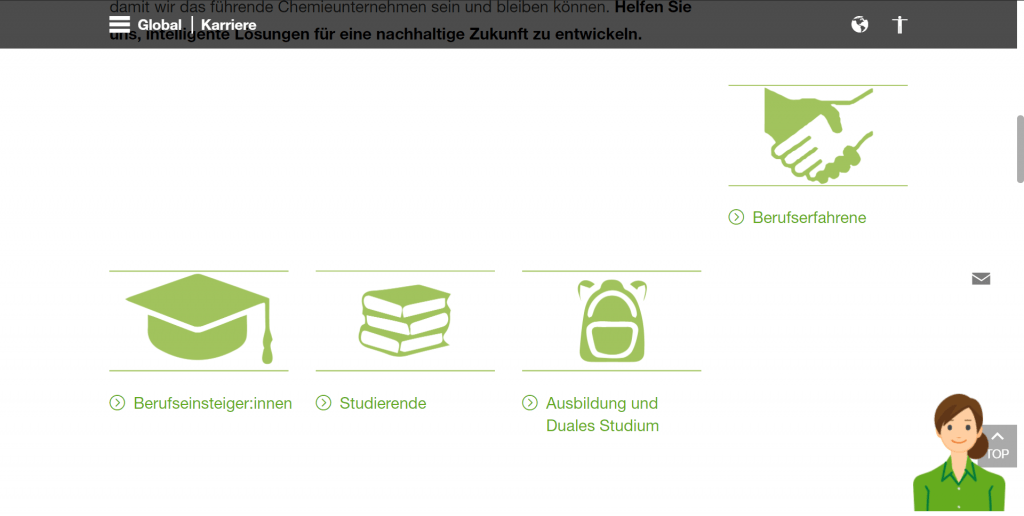
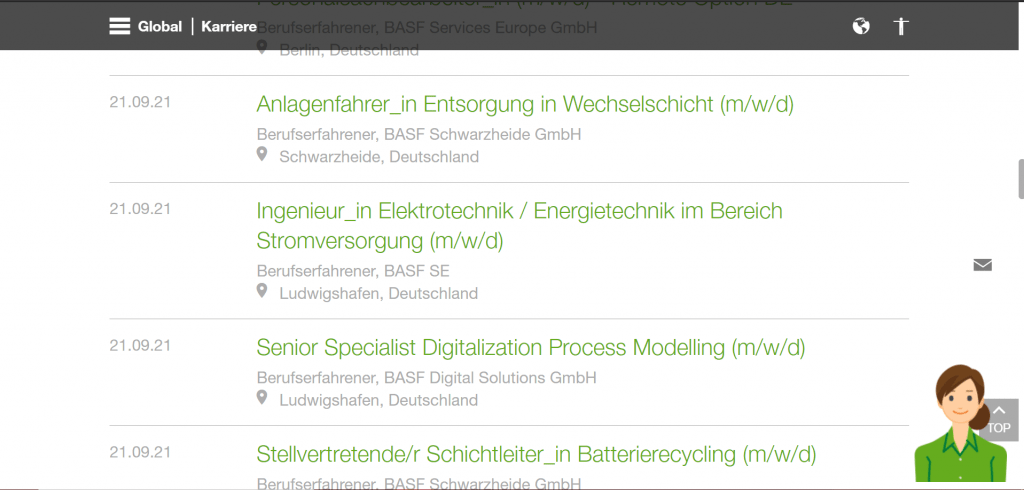
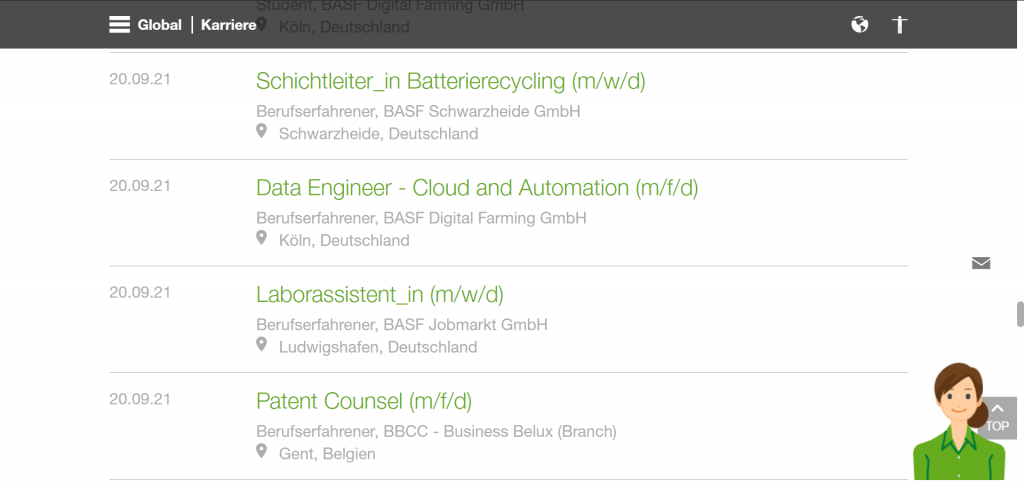
Bayer
Bei dem Pharma-und Chemiebetrieb aus Leverkusen wird das Thema Gendern leider nicht so konsequent verfolgt wie es eigentlich notwendig ist. Obwohl man vereinzelt Wortumwandlungen erkennen kann, wurde die Genderkonforme-Rechtschreibweise im nächsten Blogbeitrag wieder komplett vergessen. Diese Unregelmäßigkeiten führen dazu, dass wir weder für die Schreibweise auf der Webseite noch für die der Stellenanzeigen, Punkte vergeben können. Nur die gesetzlich vorgeschriebene Variante (m/w/d) wurde hierbei verwendet. Das gibt den Eindruck, es würde nur Gegendert werden weil es verpflichtend ist, nicht aber weil es der Firma am Herzen liegt. Einen Punkt in der Gesamtwertung.
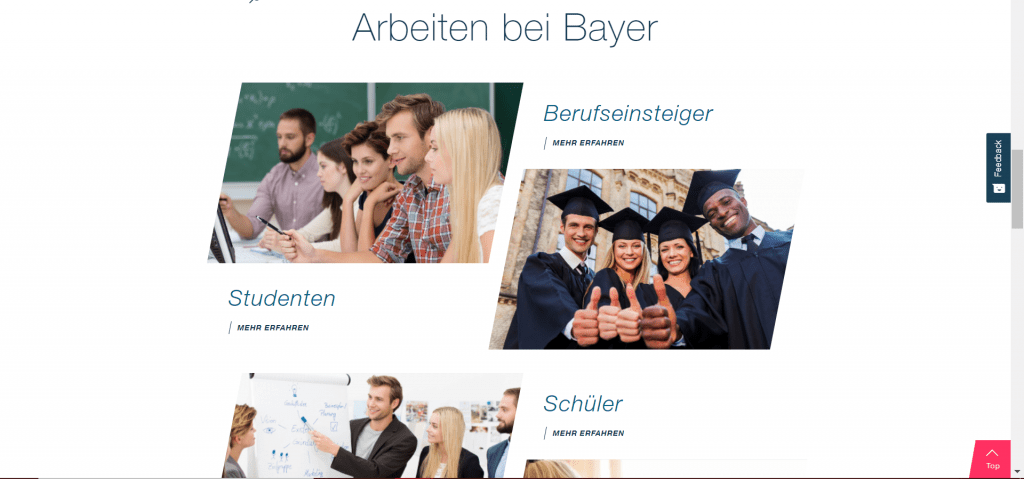
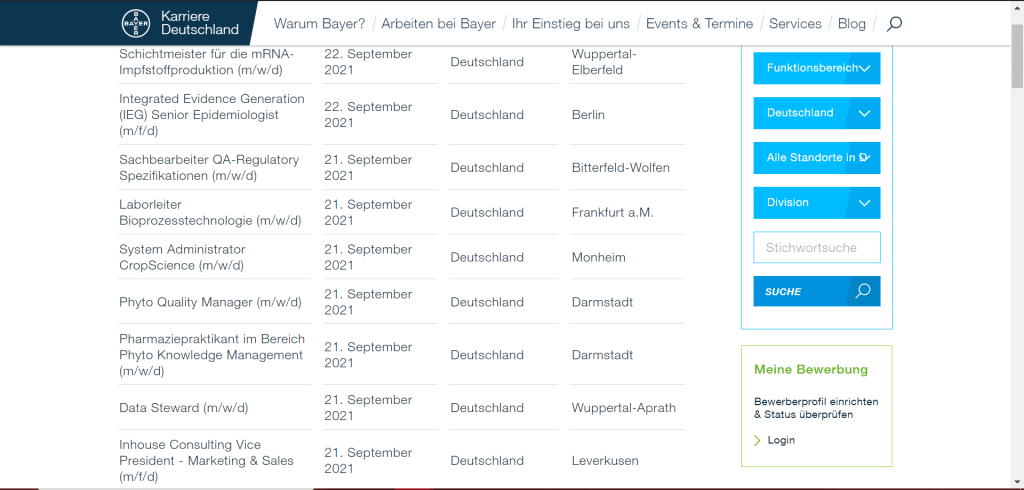
BMW
Die bayrischen Motorenwerke haben, zu unserer Überraschung, bei diesem Thema nicht so gut abgeliefert. Obwohl es einen extra Reiter für Diversity gibt, in dem dann auch Wörter wie z.B. Mitarbeiter in Mitarbeiter:innen umgewandelt werden, wird dieses Konzept leider nicht genauso konsequent auf der Webseite durchgezogen. Hier werden die ganz üblichen Begrifflichkeiten verwendet, die nun aber nur einen gewissen Teil von Menschen mit einbeziehen. Die anderen werden „wörtlich“ ausgeschlossen. Bei den Stellenanzeigen sieht es nicht anders aus. Obwohl es kein großer Aufwand ist, die Anzeigen entsprechen anzupassen wird dennoch nur die (m/w/d) bzw. in diesem Falle die (m/w/x) Form verwendet. Das führt leider zu nur einem Punkt für den Bayer.
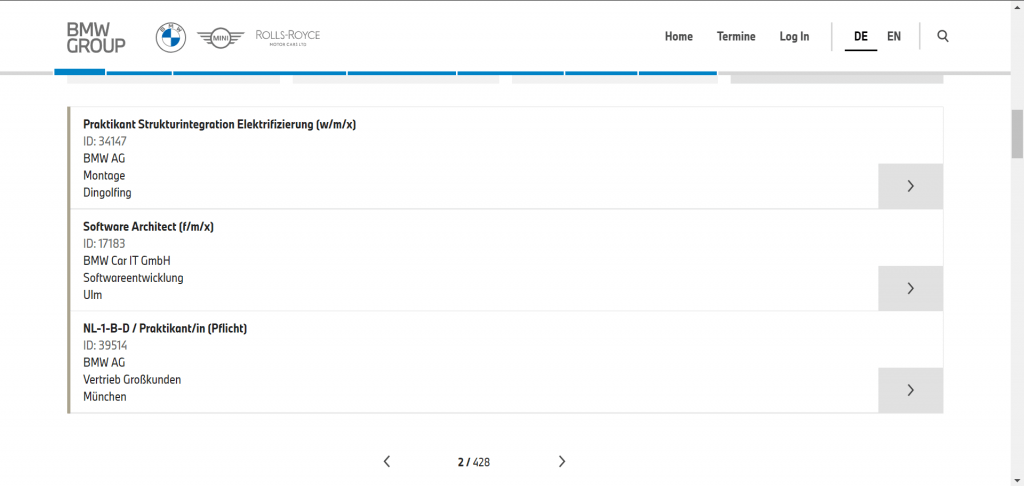
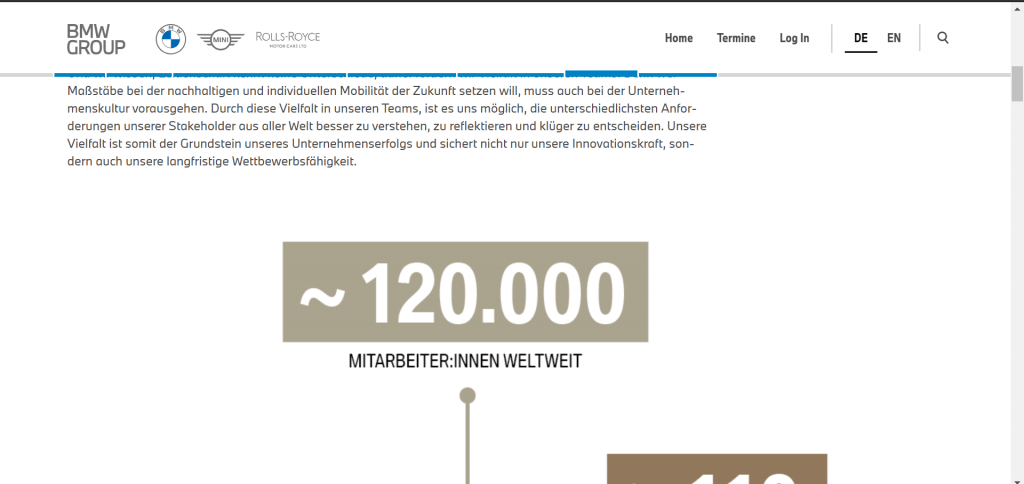
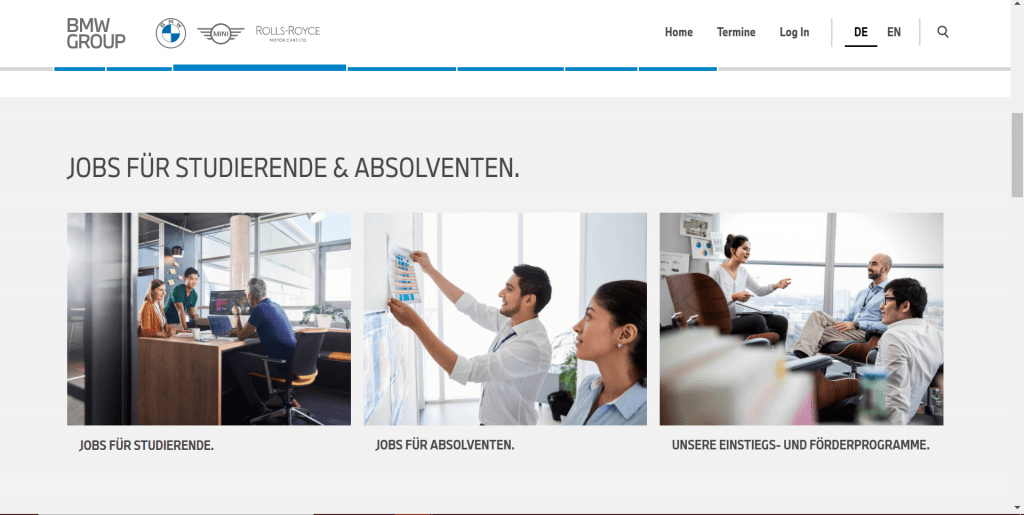
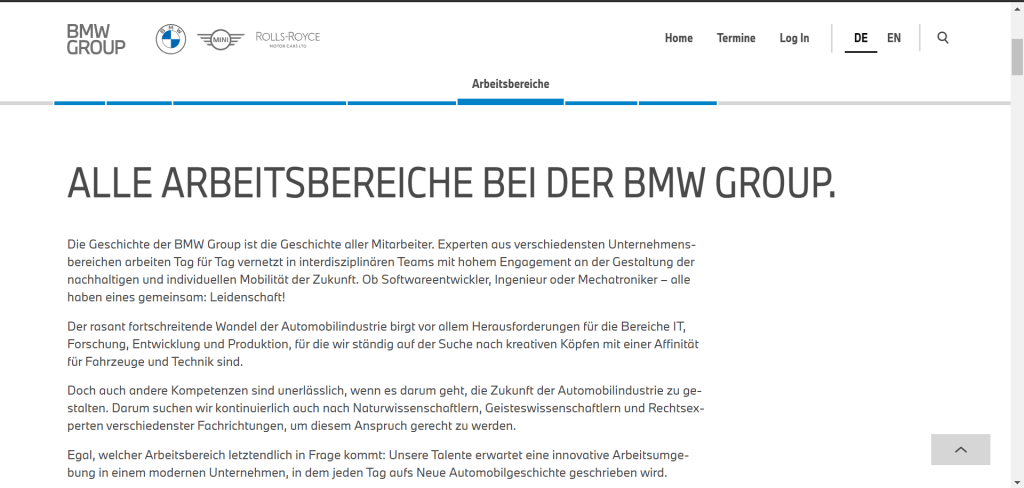
Brenntag
Die Dachgesellschaft der Brenntag Gruppe, welche für die Distribution von Chemikalien verantwortlich ist, hat nur in einer Kategorie Punkte erzielen können. Die vorgeschriebene Form (m/w/d) ist bei den Stellenanzeigen gegeben. Jedoch findet man weder Wortumwandlungen auf der Webseite noch bei den Stellenanzeigen. Nicht einmal der Fließtext des Reiters „Explore Variety“ ist korrekt und konform gegendert. Wir können hier leider nur einen von drei Punkten vergeben.
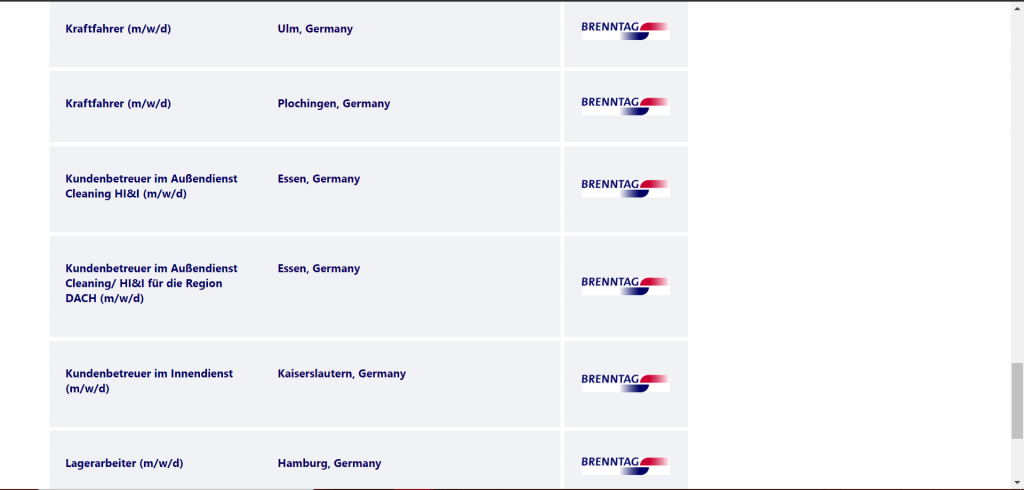
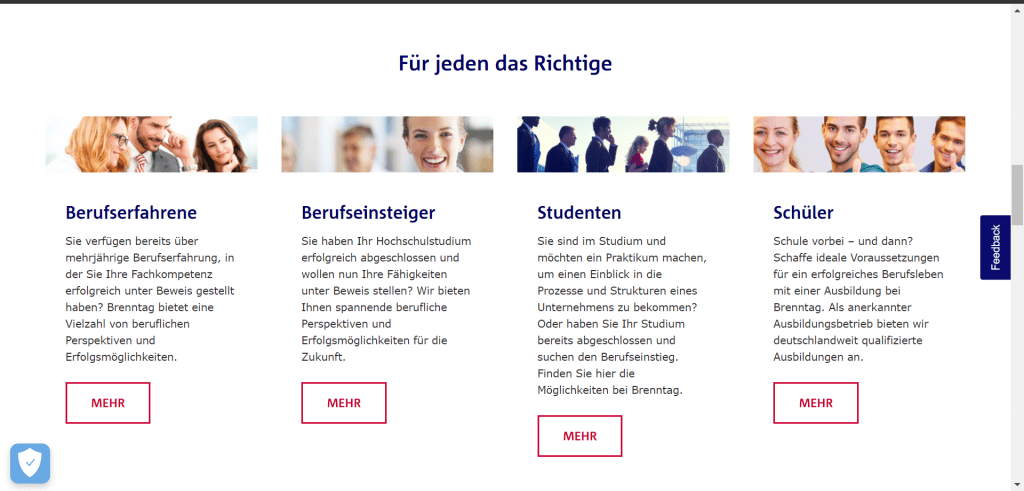
Continental
Bei dem nächstem Kandidaten unserer Liste handelt es sich um den Automobilzulieferer aus Hannover, Continetal. Die Erwartungshaltung hier war sehr groß, da man schon beim ersten Blick auf die Webseite eine paar kurze Blogbeiträge erkennen kann, in denen Genderkonforme Rechtschreibung zu finden ist. Wirft man aber einen genaueren Blick auf weiter Beiträge, bemerkt man schnell das dieses Konzept leider nicht kontinuierlich weiter geführt wurde. Auch wenn man bei ein wenigen Blogs Wortbildungen wie Mitarbeiter:innen entdeckt, sind diese bei anderen Artikeln oder Fließtexten nicht zu finden. Aufgrund dieser Inkonsequenz konnten wir nur in der Kategorie „Gesetzlich vorgegebenes Gendern“ (gemeint hiermit ist die Verwendung von der (m/w/d)-Form) Punkte vergeben.
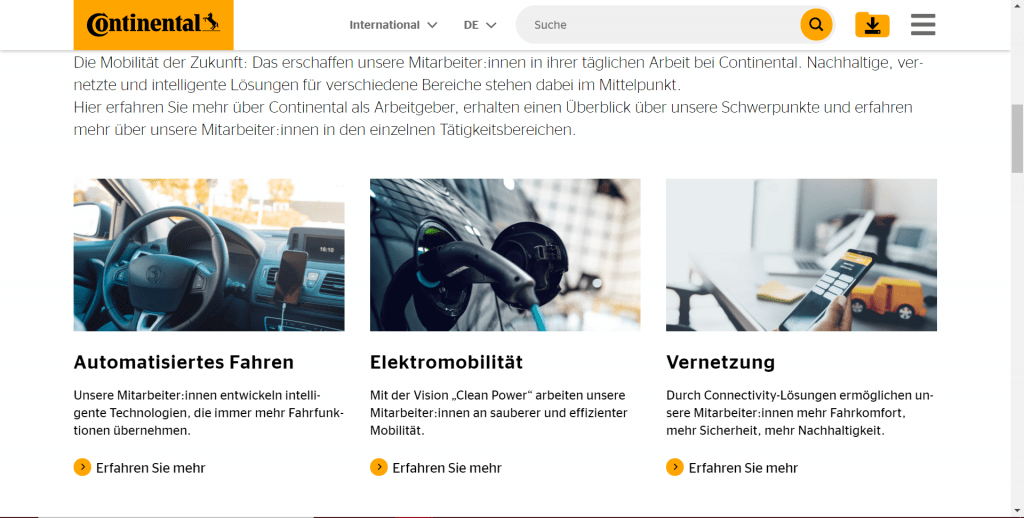
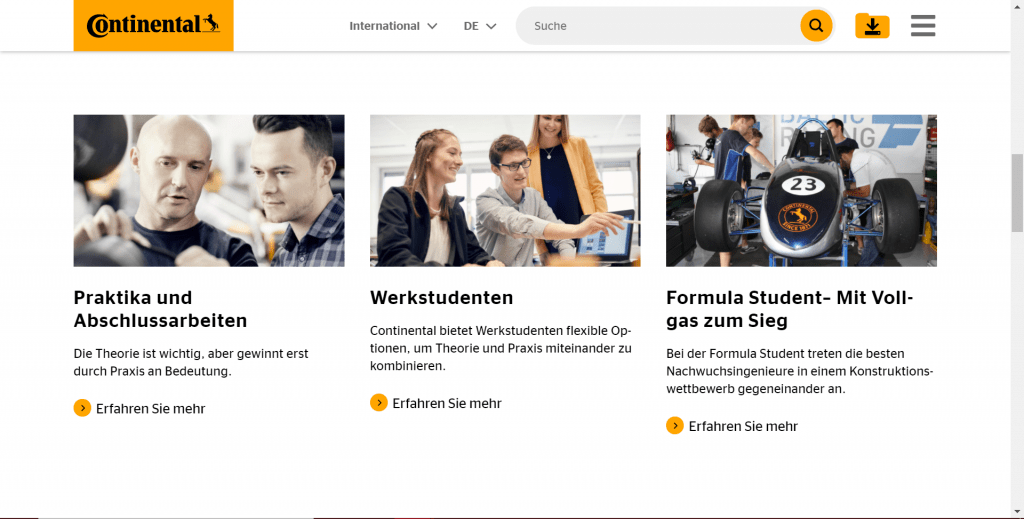
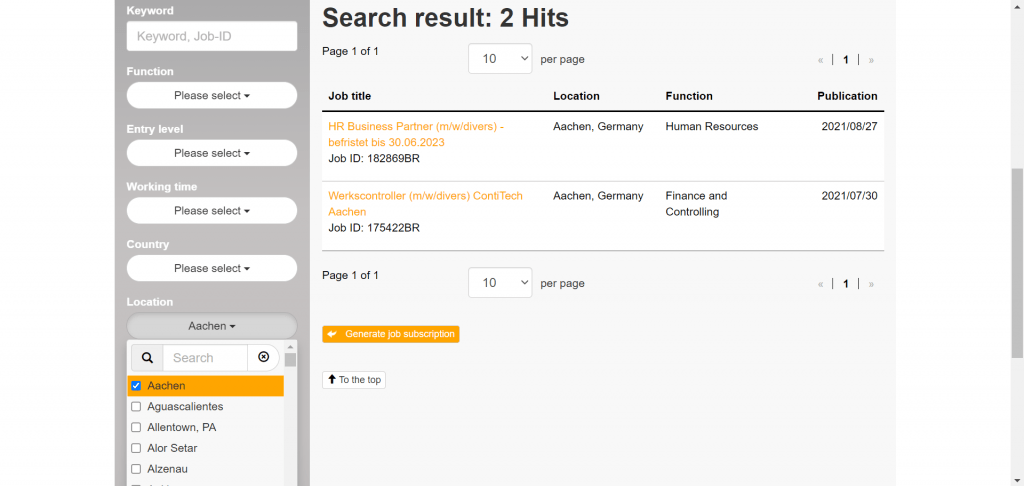
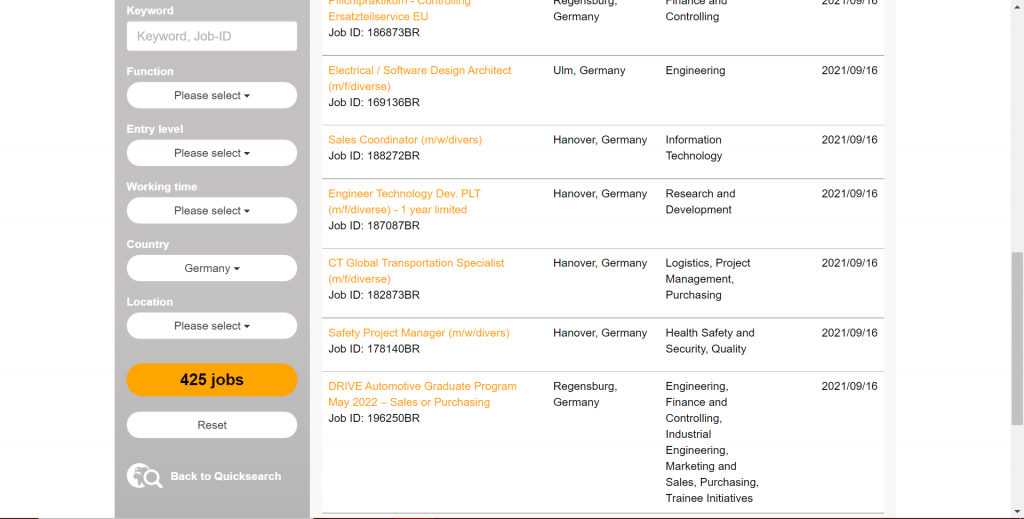
Covestro
Der Werkstoffhersteller mit Sitz in Leverkusen steht im Vergleich zu den bisherigen Firmen recht gut da. Auf der gesamten Webseite und in allen Fließtexten ist die Rede von Mitarbeiter*innen oder Schüler*innen. Auch gewissen Wortbildungen, wie etwa „Studierende“ sind zu finden. Leider ist dieses Konzept bei den Jobanzeigen noch nicht ganz durch gedrungen. Hier findet man nur die gesetzlich vorgeschriebene Form (m/w/d). Mit kleinstem Aufwand wäre es möglich durch verschiedene Wortbildungen die Stellenanzeigen so anzupassen, dass sich alle Menschen mit einbezogen fühlen. Im Großen und Ganzem solide zwei erzielte Punkte von möglichen drei.
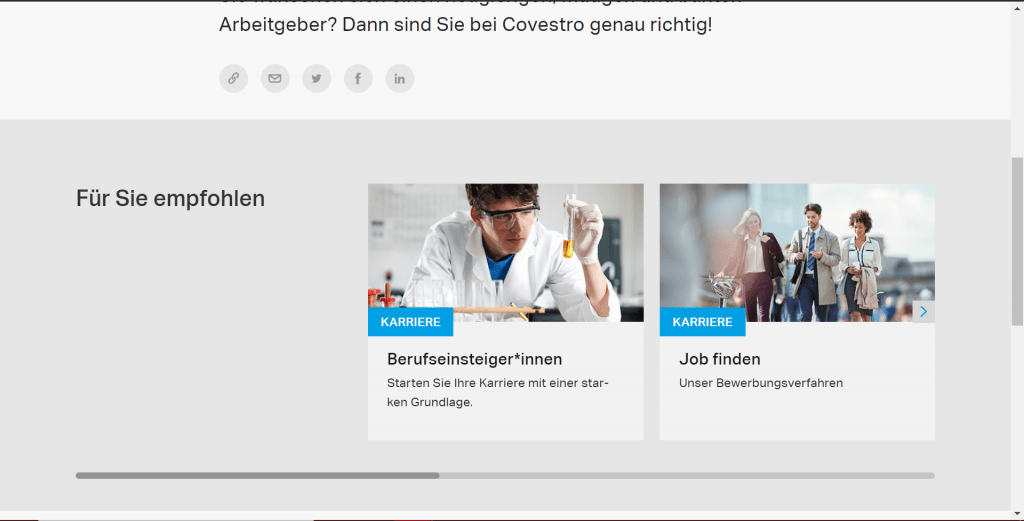
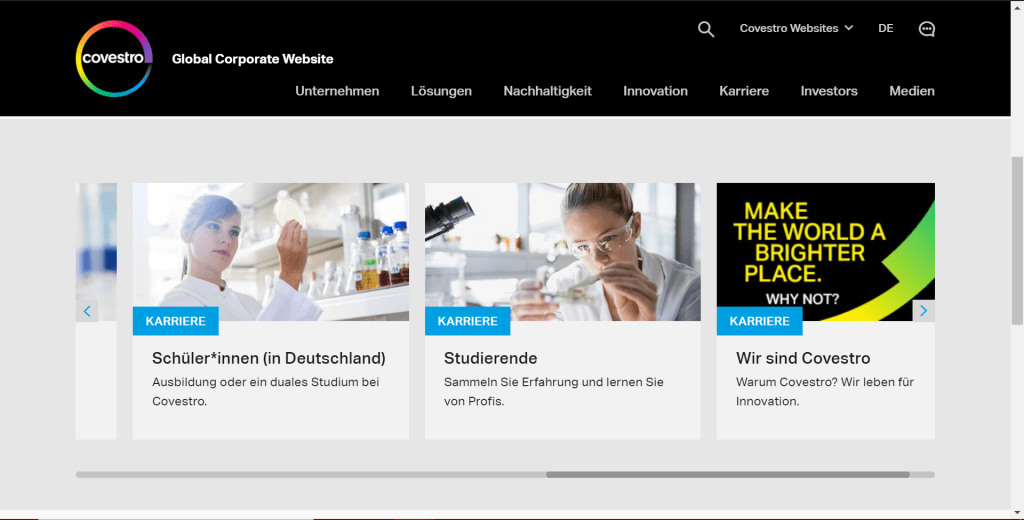
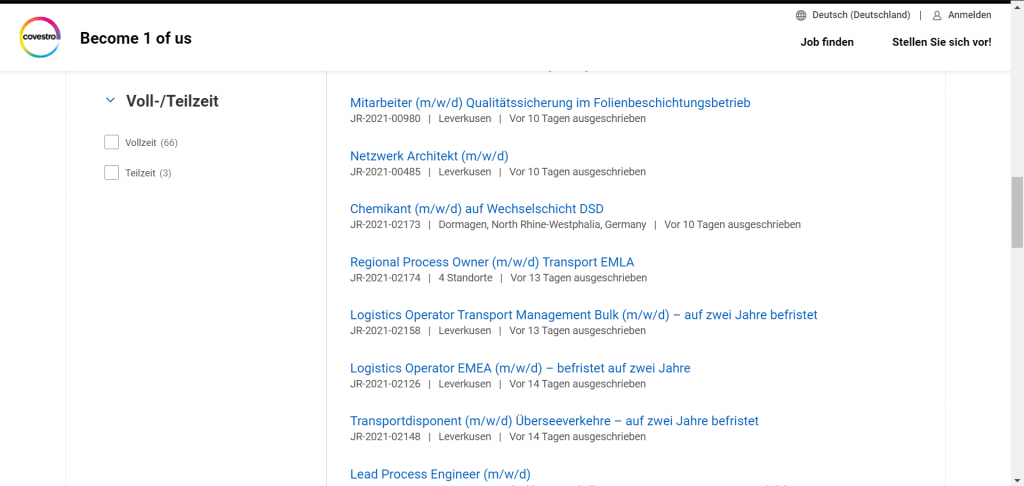
Daimler
Die Dachgesellschaft des Stuttgarter Automobil-Giganten zwar unter dem Reiter „Diversity und Inclusion“ einige Texte in denen Mitarbeiterinnen und Mitarbeiter genannt werden, durch diese Schreibweise jedoch nicht die restlichen 58 Gender angesprochen werden. Diese Ansprache ist aber leider eine der wenigen, die auf der Homepage von Daimler zu finden ist, die nicht nur ein Geschlecht anspricht. Auf dem Großteil der Webseite und auch bei herausstechenden Infographiken sind nur Formen wie z.B. Studenten, Mitarbeiter oder Absolventen zu finden. Die Stellenanzeigen sind mit (m/w/d) gekennzeichnet, mehr jedoch nicht. Dies hinterlässt den Eindruck, dass hier nur minimaler Aufwand betrieben wurde, die Seite halbwegs genderkonform zu gestalten. Die Betonung hierbei liegt auf halbwegs. Schlussendlich macht das nur einen von drei Punkten für Daimler.
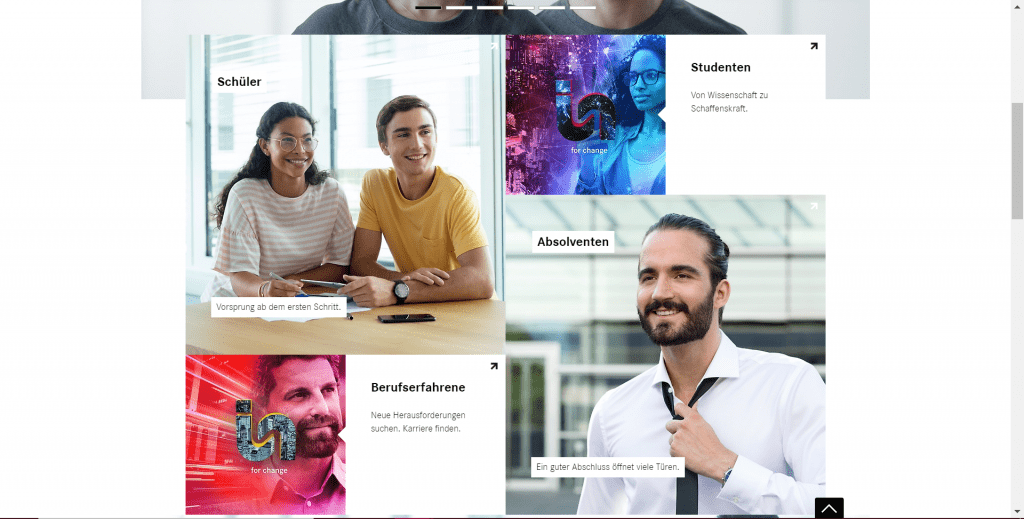
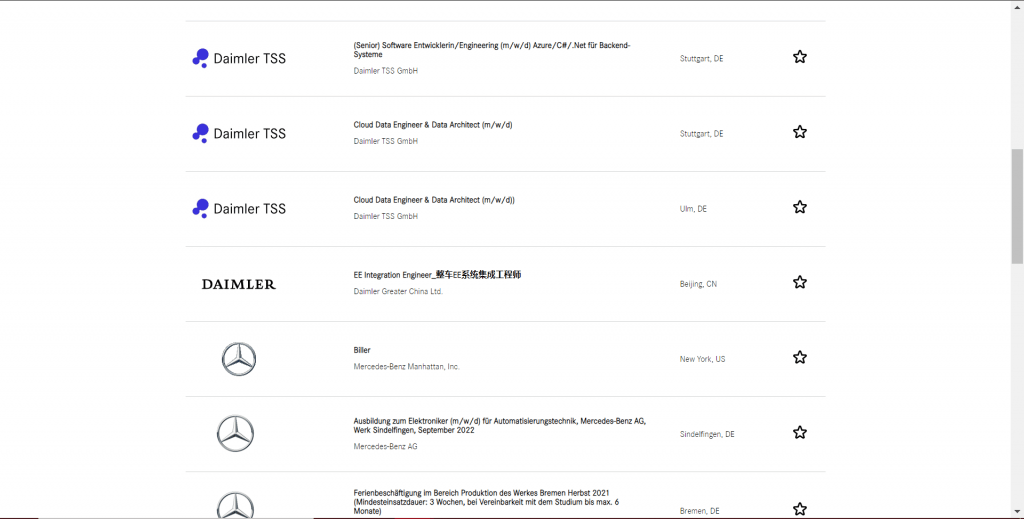
Delivery Hero
Das Börsenunternehmen, welches zuständig für eine Vielzahl von Online-Bestellportalen ist, zählt zu den wenigen Unternehmen auf dieser Liste, dass volle Punktzahl von uns erhalten hat. Da die Komplette Webseite auf Englisch gehalten ist und somit auch nur Gendern-Neutrale Bezeichnungen verwendet werden, lässt sich über die Punkteverteilung streiten. Die Form (m/w/d) ist dennoch bei jeder Stellenanzeige enthalten. Auch wenn diese Handhabung für manche vielleicht als Mogelei erscheint, können wir hier nichts anderes tun, als in allen Kategorien Punkte zu verteilen.
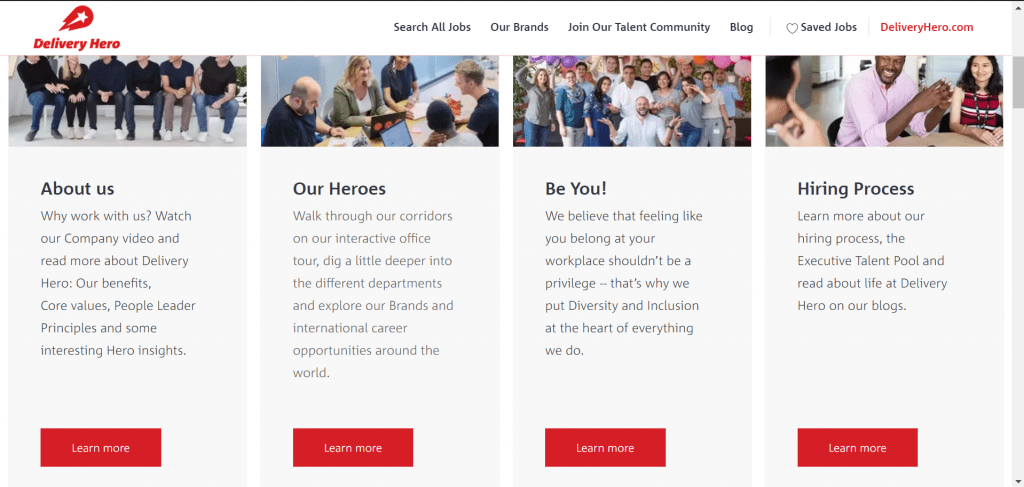
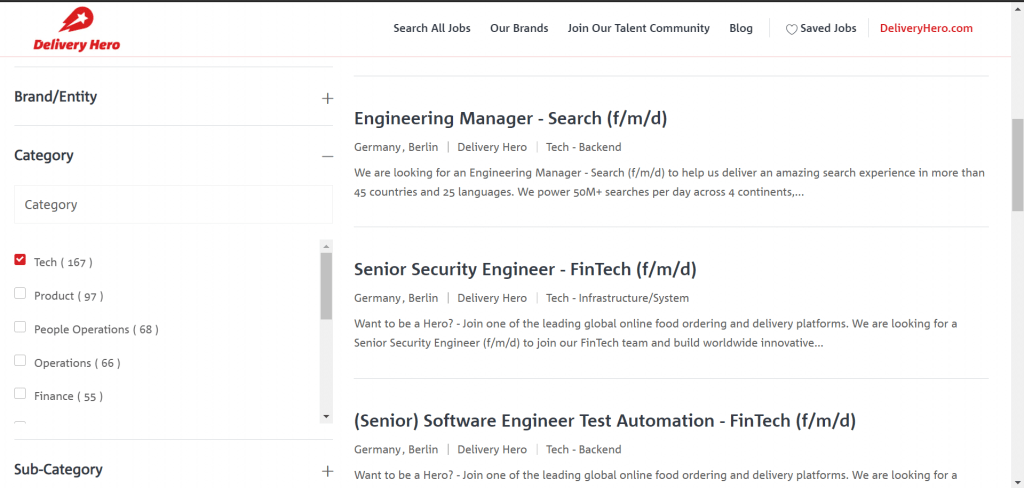
Deutsche Bank
Die Deutsche Bank hat in dieser Studie überraschend gut abgeschnitten. Sowohl auf der Homepage, als auch bei den Stellenanzeigen sind Wortumwandlungen bzw. Veränderungen zu finden. Beispielsweise sind nicht nur die Studenten sondern Student*innen angesprochen. Dieses Prinzip ist kontinuierlich weitergeführt bis hin zu den Stellenanzeigen. Hier sind die Jobbezeichnungen immer mit der korrekten (m/w/d)-Form angegeben. Ebenso sprechen diese Bezeichnungen immer mehrere Geschlechter-Typen an. Beispielsweise wird nicht mehr nur der Bankkaufmann gesucht sondern genauso die Bankkauffrau. Natürlich werden bei dieser Art des Genderns nicht auch noch diverse andere Geschlechte angesprochen, was aber auch auf die einzelnen Begrifflichkeiten zurück zuführen ist. Dennoch ist die Deutsche Bank sehr fortschrittlich was diesen Bereich betrifft und erhält somit auch die volle Punktewertung von uns.
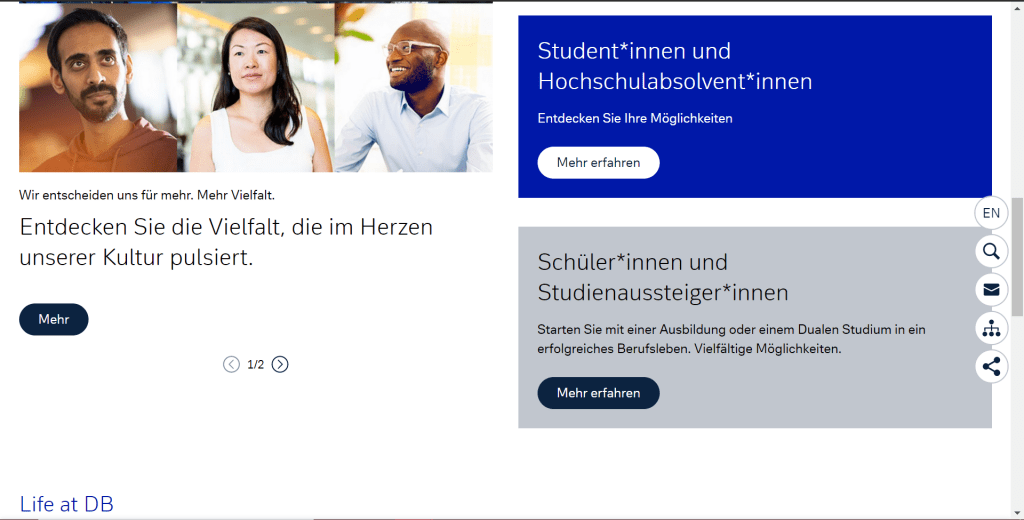
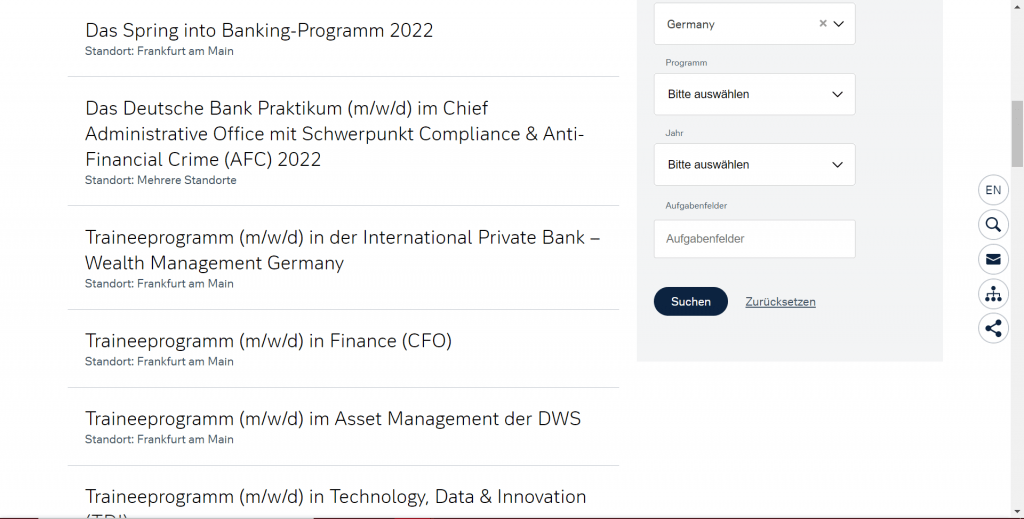
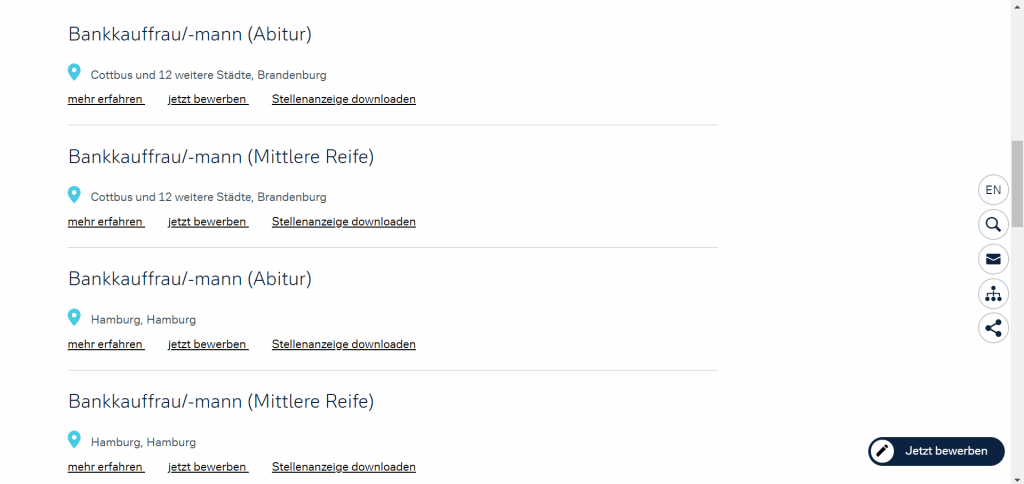
Deutsche Börse
Diese Aktiengesellschaft mit Sitz in Frankfurt am Main hat auf ihrer Webseite schon einmal gute Ansätze was das Gendern betrifft. Auf Homepage und der Job-Seite sind Wortbildungen wie Berufseinsteiger*in zu finden. Auch die (m/w/d)-Form ist bei den Stellenanzeigen verwendet. Leider sind die Jobbezeichnungen nicht Gegendert. Viele Bezeichnungen sind zwar Englisch-Sprachig, jedoch wird bei deutschen Worten, wie z.B „Werksstudent“, nur die maskuline Form verwendet. Diese auch noch in eine genderkonforme Schreibweise umzuwandeln, wäre nur noch ein geringer zeitlicher Aufwand. Egal ob nicht beachtet oder schlicht und ergreifend Vergessen, von unserer Seite aus können wir nur zwei von drei Punkten vergeben.
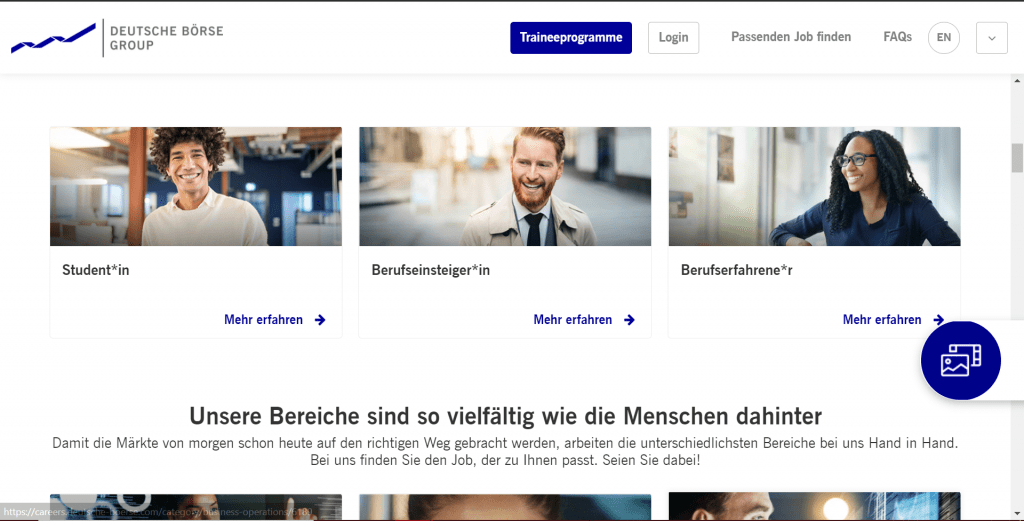
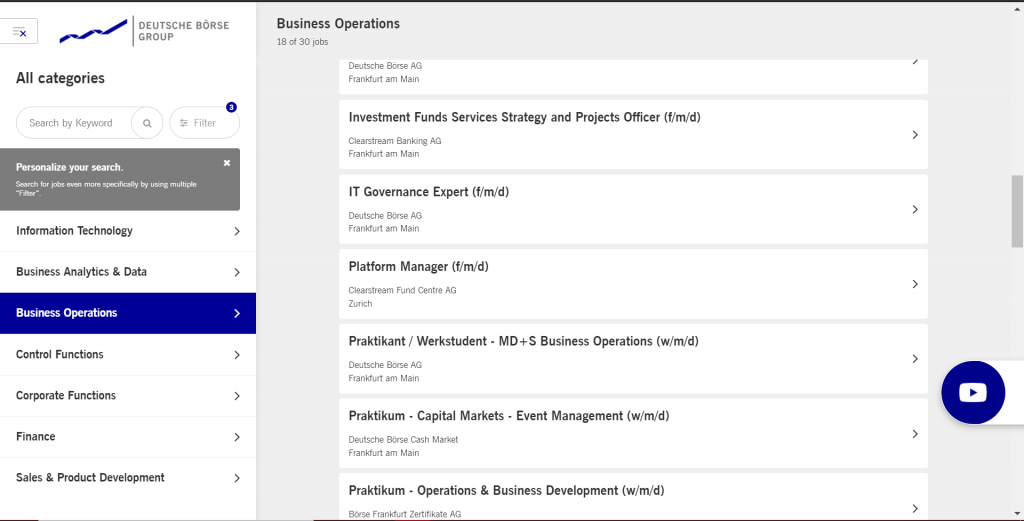
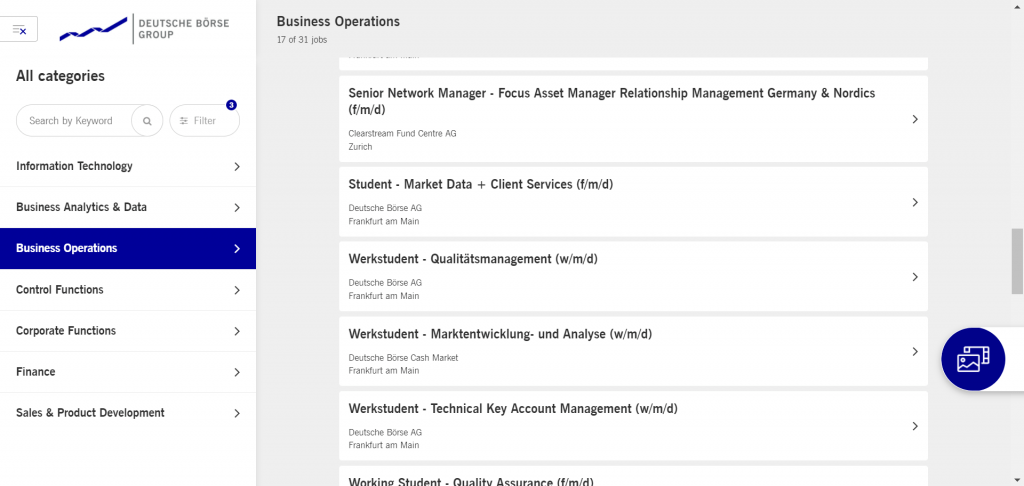
Deutsche Post
Der größte deutsche Paketzusteller hingegen hat bei allen 3 Kriterien gepunktet. Zum einen lassen sich genderneutrale Wortbildungen wie z.B. Absolvent:in oder Schüler:in finden. Zum anderen lassen sich auch bei den Stellenanzeigen neutrale Bezeichnungen und sogar Wort-neu-Bildungen wie Kaufmann/frau entdecken. Natürlich ist auch hier die rechtmäßige (m/w/d)-Form vorhanden. Auch aufgrund von mehreren Beiträgen zur Gleichberechtigung, Diversity und Inklusion vermittelt die Deutsche Post mit ihrem Internett-Auftritt das Gefühl, dass hier jeder Willkommen ist und dass dieses Thema auch einen hohen Stellenwert in der Unternehmensphilosophie besitzt. Volle Punktzahl von unserer Seite.
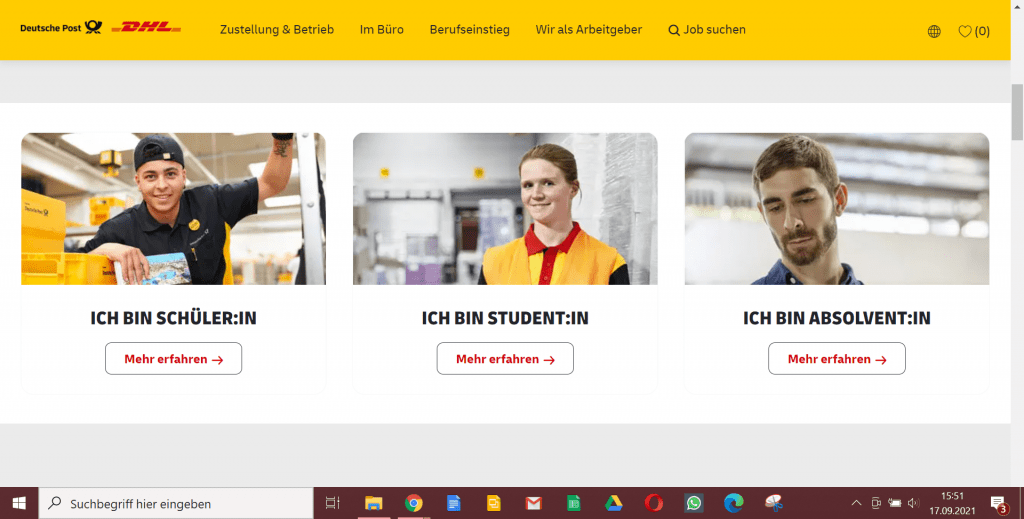
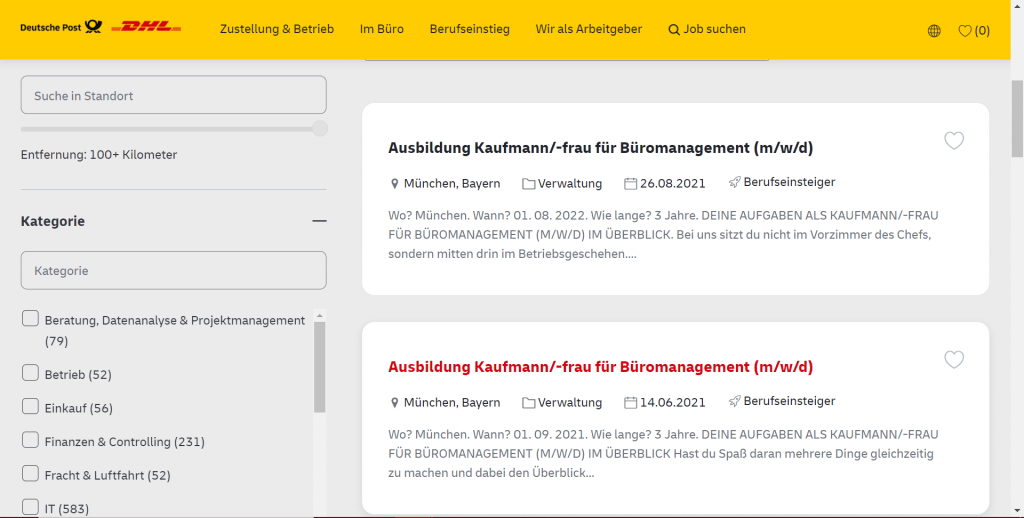
Deutsche Telekom
Das größte Telekommunikationsunternehmen Europas konnte in unserer Studie leider nur einen von drei Punkten erzielen. Zum einen sind beispielsweise die Wegweiser bei den Stellenanzeigen nur in einer Gender-Form angegeben, nicht etwa eine genderneutrale wie z.B. Schlüer:innen. Bei ein paar wenigen Artikel kann man schon eine Genderkonforme Rechtschreibweise erkennen, jedoch ist der Großteil in der maskulinen Form gehalten. Die Stellenanzeigen sind normal mit der (m/w/d)-Form versehen, jedoch sind Wortbildungen wie Elektroniker/in nicht zu finden. Ein Punkt der aber auf jeden Fall eine lobende Anerkennung erhält, ist ein Absatz der immer am Ende jeder Telekom-Webseite zu finden ist. Dieser besagt, dass Telekom dabei ist alle Webseiten Texte auf die genderkonforme Rechtschreibweise zu updaten. Ein guter Schritt in die richtige Richtung. Natürlich beansprucht so ein Vorhaben auch seine Zeit, jedoch müssen wir in unserer Studie das bewerten, was uns gerade vorliegt. Darum können wir nur einen von drei Punkten vergeben.

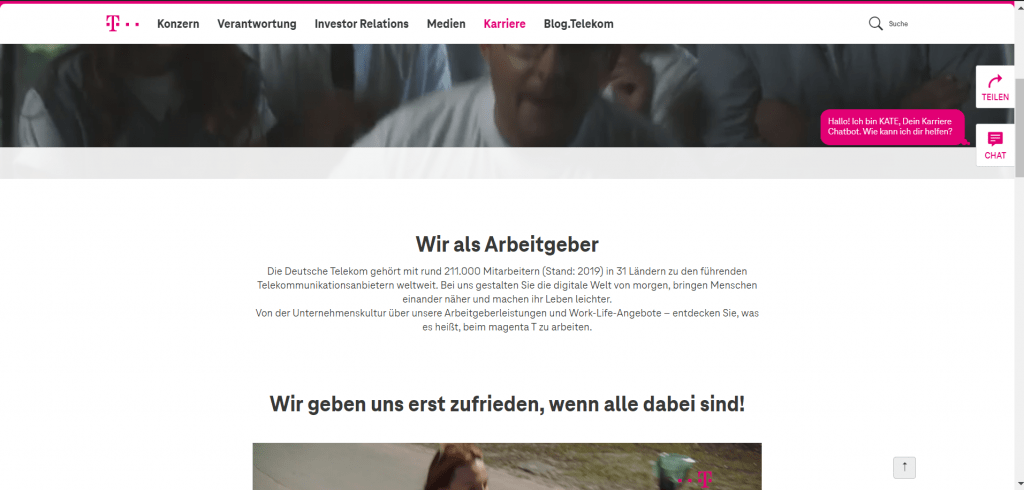
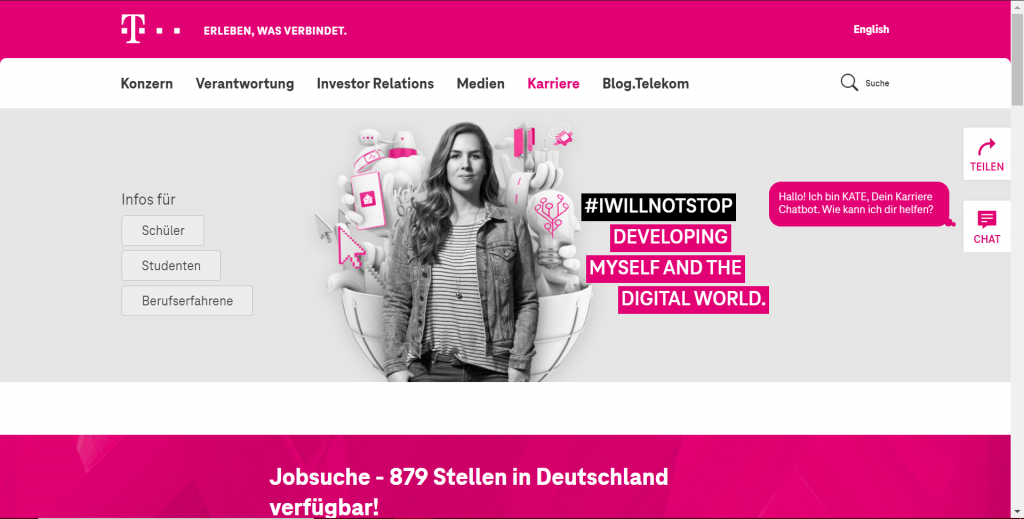
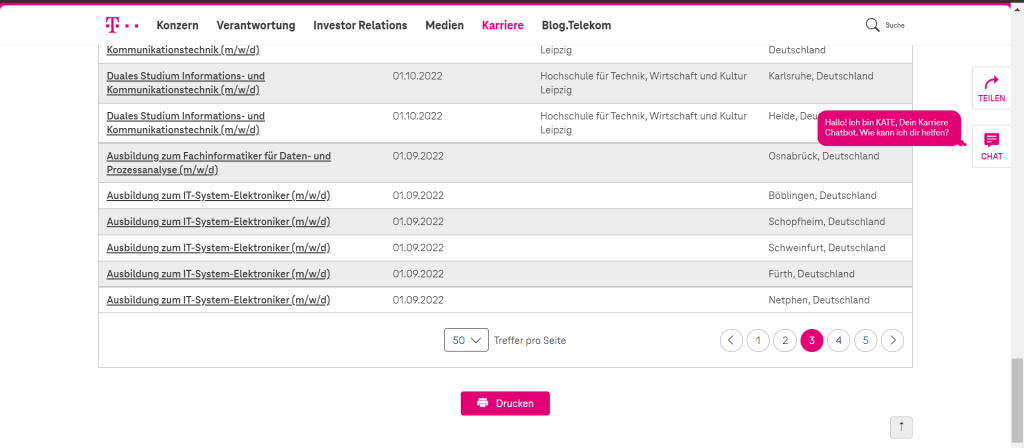
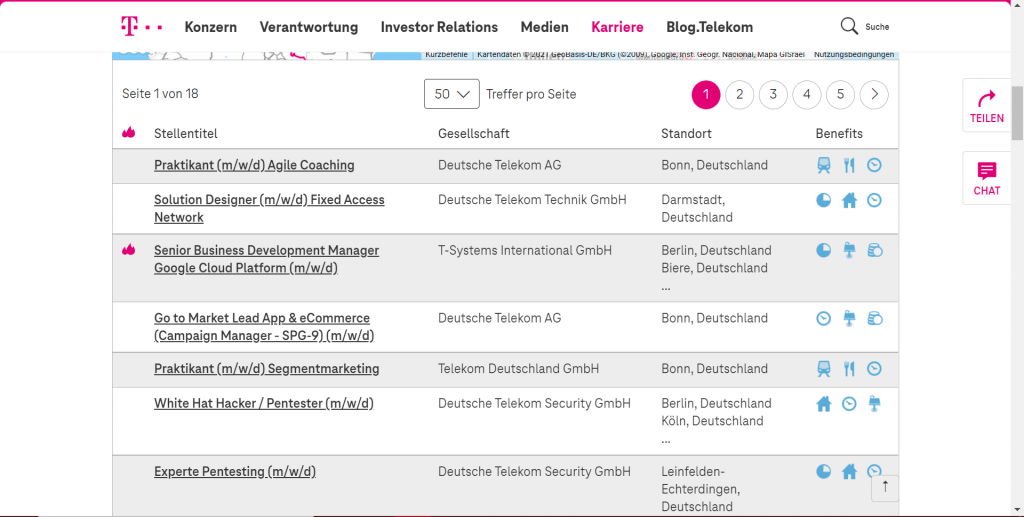
Deutsche Wohnen
Diese Berliner Wohnungsgesellschaft ist ein in unserer Studie ein wenig aufgefallen aufgrund ihres Gender-Konzepts. Natürlich ist auch hier auf die gesetzlich vorgeschrieben (m/w/d)-Form bei den Stellenanzeigen geachtet. Sogar die spezielle Wortumwandlung bei den Stellenanzeigen, die extrem selten verwendet wird, ist auf der Webseite von Deutsches Wohnen kontinuierlich bei den Jobangeboten eingesetzt. Verwunderlich ist jedoch, wieso dieses Prinzip nicht auch noch bei den Fließtexten der Webseite zu finden ist. Aufgrund diesem fehlendem Aspekt erzielt die Wohnungsgesellschaft in unserer Studie nur zwei Punkte.
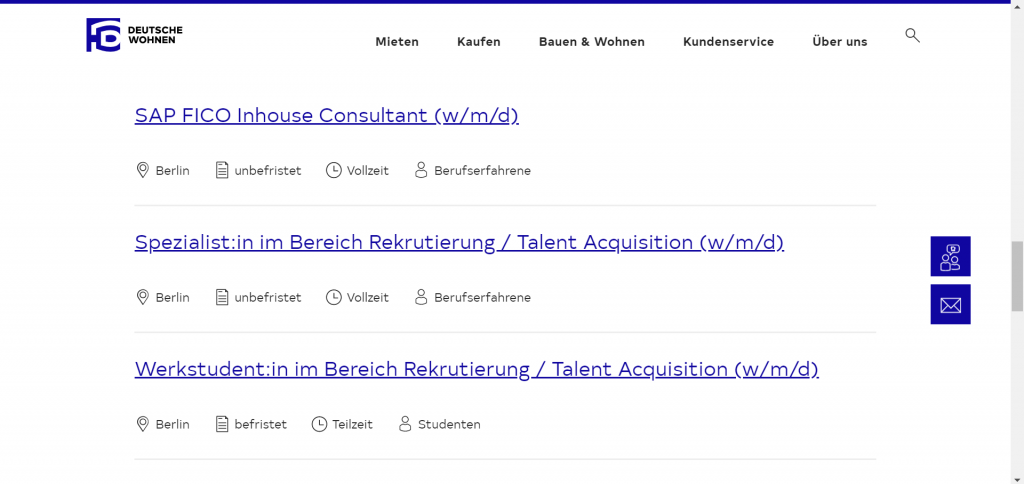
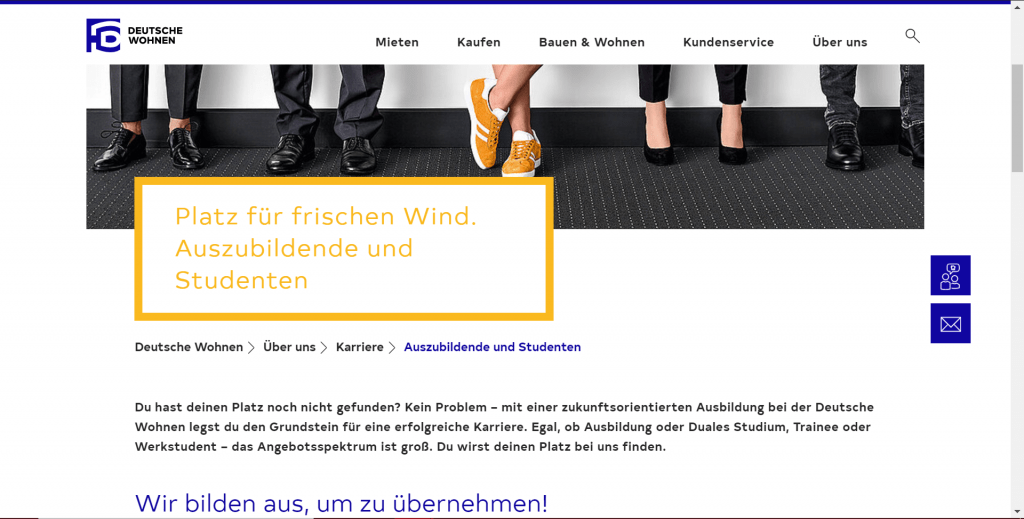
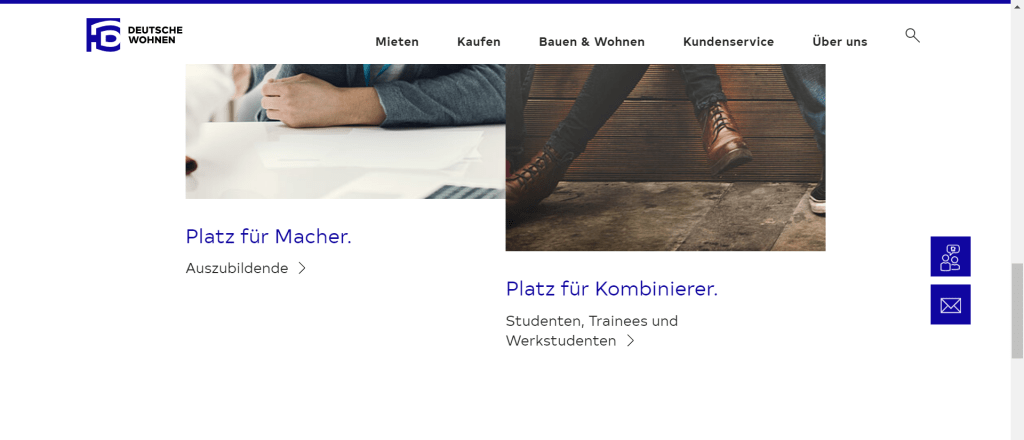
E.ON
Machen wir weiter mit der Holdinggesellschaft des deutschen Energiekonzern E.ON mit Sitz in Essen. Leider findet man bei dieser Firmenwebsite wenig bis gar keine genderkonforme Rechtschreibung. Zwar gibt es ein paar Beiträge zum Thema Vielfalt und Diversity, doch bei einem genauerem Blick wirken diese auch eher Ernüchternd. Auf der gesamten Seite wird bei Jobbezeichnungen nur die Maskuline Form verwendet. Die Stellenanzeigen sind auch nur dann mit der (m/w/d)-Form gekennzeichnet, wenn diese Jobs Standorte in Deutschland haben. Das gibt ein wenig den Eindruck, dass nur auf genderkonforme Ansprachen geachtet wird, wenn es vom Staat so vorgegeben ist. Jedoch muss man anmerken, dass man vereinzelte Stellen findet, bei denen die Jobbezeichnung auf eine gendergerechte Weise angepasst ist. Der Großteil jedoch ist in der Maskulinen Form gehalten, weshalb wir zu einem Ergebnis von nur einem Punkt kommen.
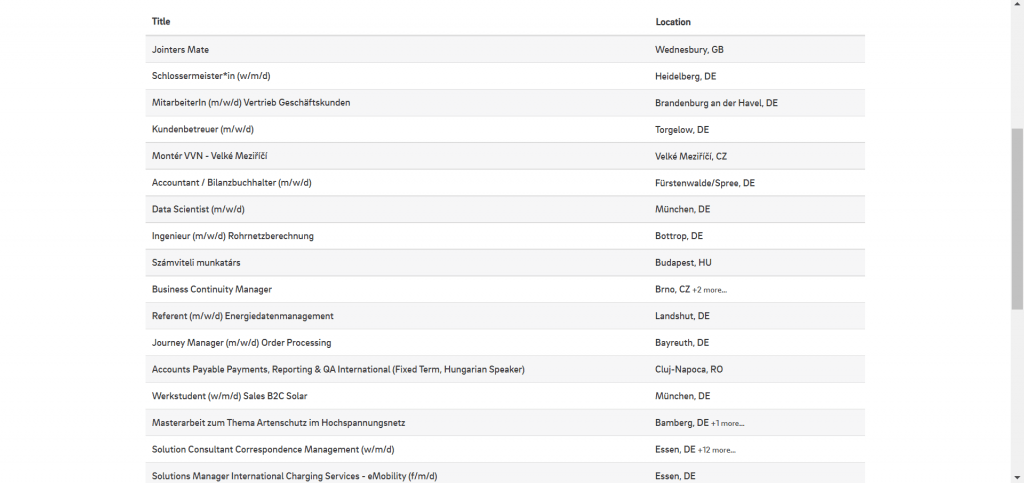
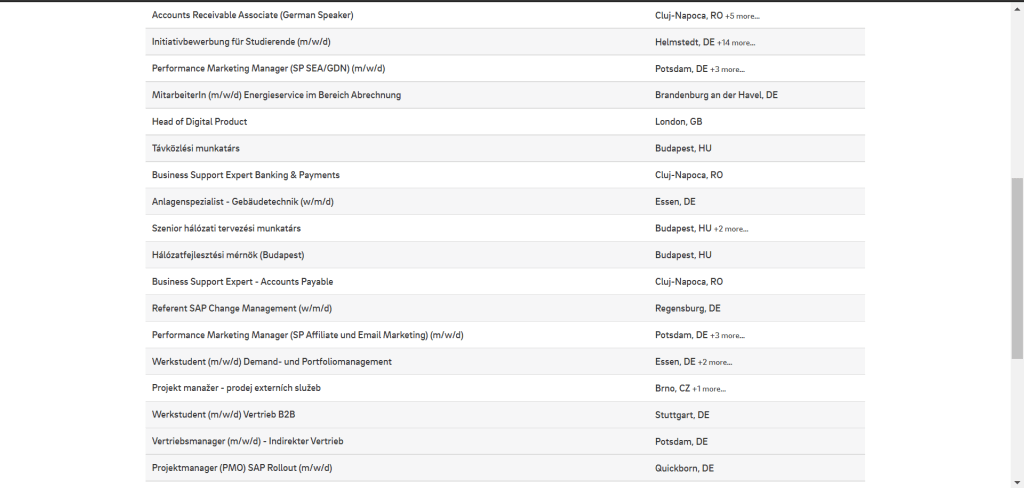
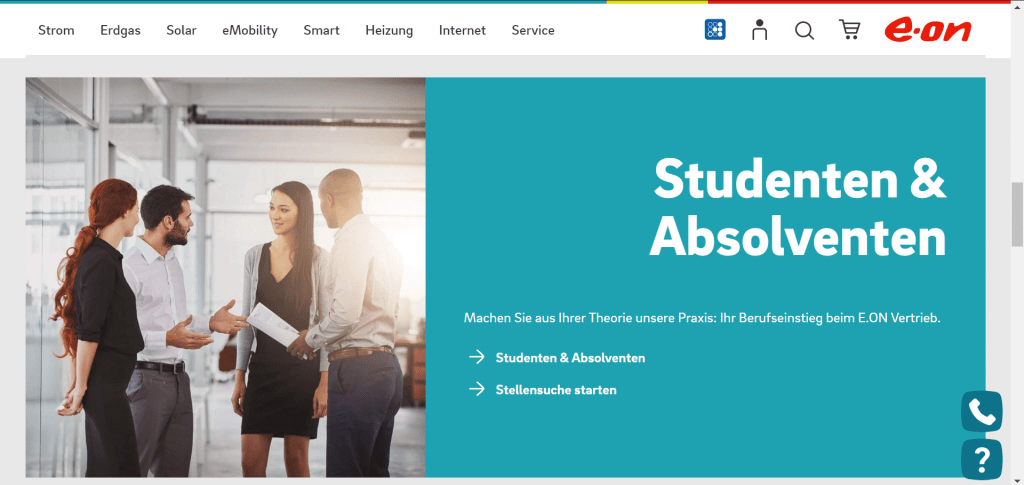
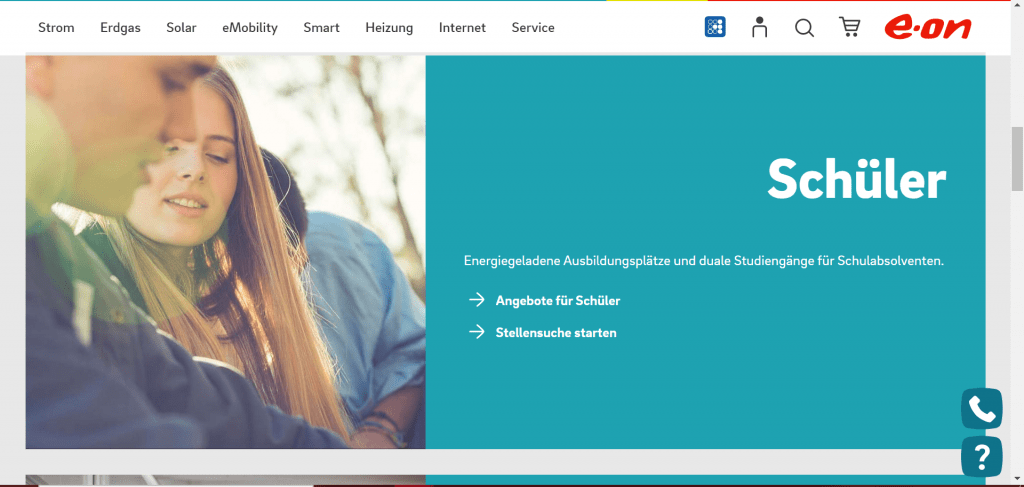
Fresenius
Das hessische Medizintechnik- und Gesundheitsunternehmen geht sehr vorbildlich und korrekt das Thema Gendern und Vielfalt an. Die komplette Homepage und alle Fließtexte und Wegweiser sind konsequent genderneutral gehalten. Wo es möglich ist hat Fresenius sogar Wortumwandlungen wie z.B. Studierende verwendet. Wenn es nicht möglich ist ein neues Wort für eine bestimmte Bezeichnung zu finden, hat Fresenius mit einem Doppelpunkt die Genderneutrale Form ganz einfach hinzugefügt (Schüler:innen). Auch bei den Stellenanzeigen haben sie versucht neutrale Formen zu benutzen, jedoch konnten wir hier die benötigte Konsequenz nicht feststellen, weshalb Fresenius in unserer Gesamtwertung nur zwei von drei Punkten erzielen konnte. Man muss jedoch anmerken, dass sich Fresenius mit ihrem Konzept definitiv in die richtige Richtung bewegen und schon fast ihr Ziel erreicht haben.
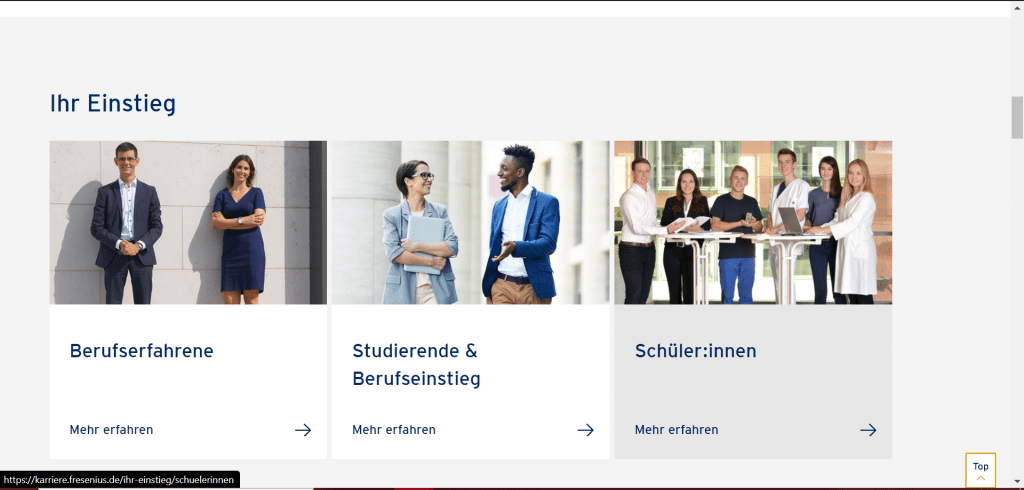
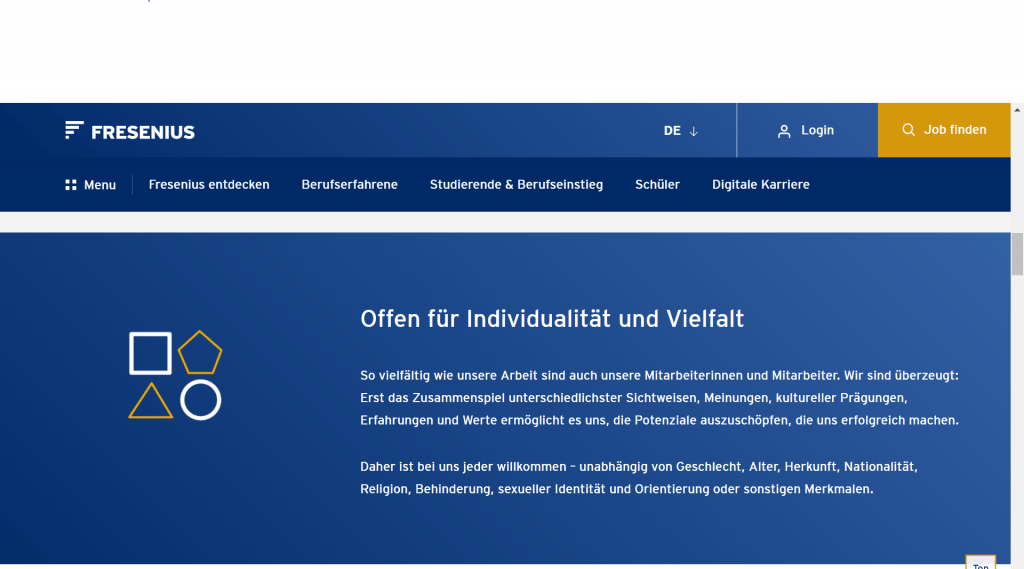
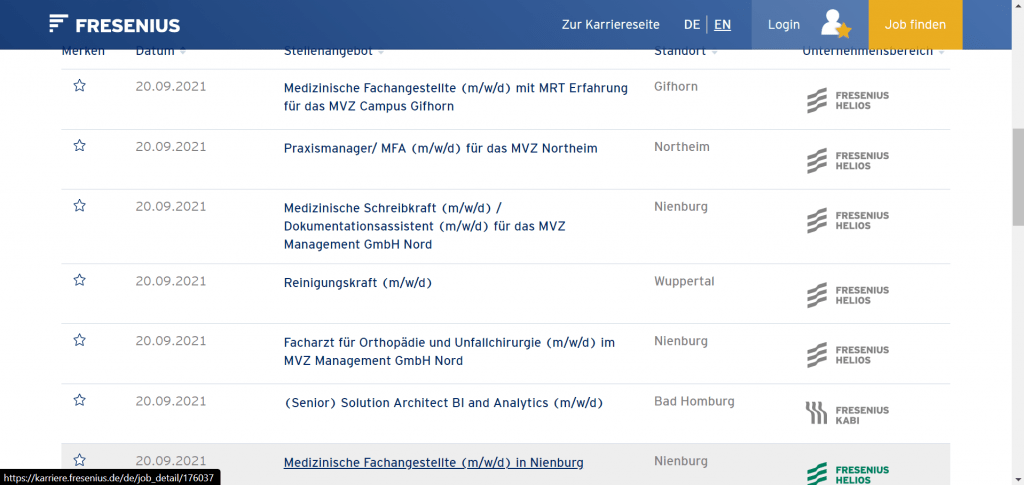
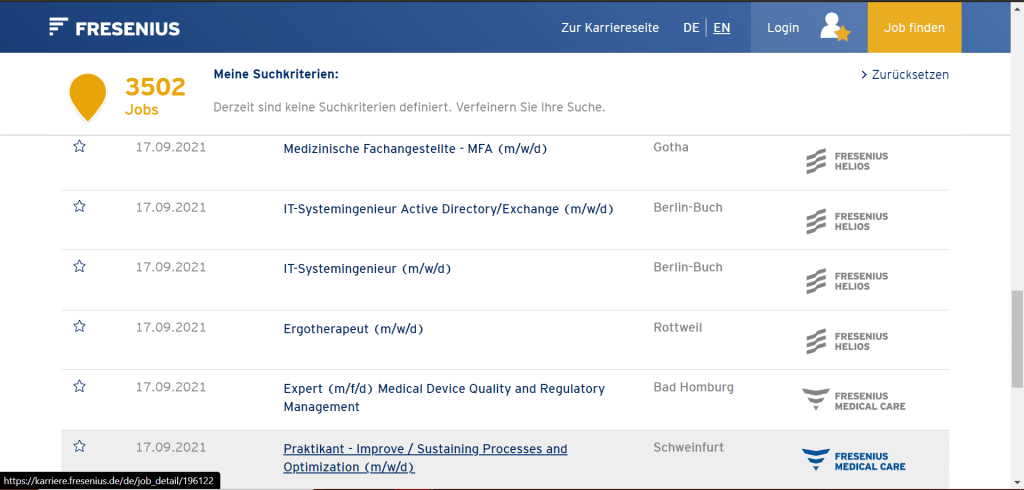
Fresenius Medicalcare
Der kleine Bruder der Fresenius SE, Fresenius Medicalcare geht die Dinge im Bereich Equality und Gendern etwas anders an. Verwunderlich ist, dass hier nur bei den Stellenanzeigen irgendeine Form des Genderns benutzt wird. Der komplette Rest, egal ob Homepage oder Fließtext bei der Jobseite ist nur in der Maskulinen Form angegeben. Im Vergleich zu Fresenius, hingt dieses Unternehmen im Bereich genderquality ziemlich hinterher. Nur die (m/w/d)-Form ist korrekt angegeben. Da dies aber auch vom Staat so gesetzlich vorgeben ist, zeigt Fresenius definitiv zu wenig Courage in dem Bereich. Das führt zu nur einem Punkt im Rankning.
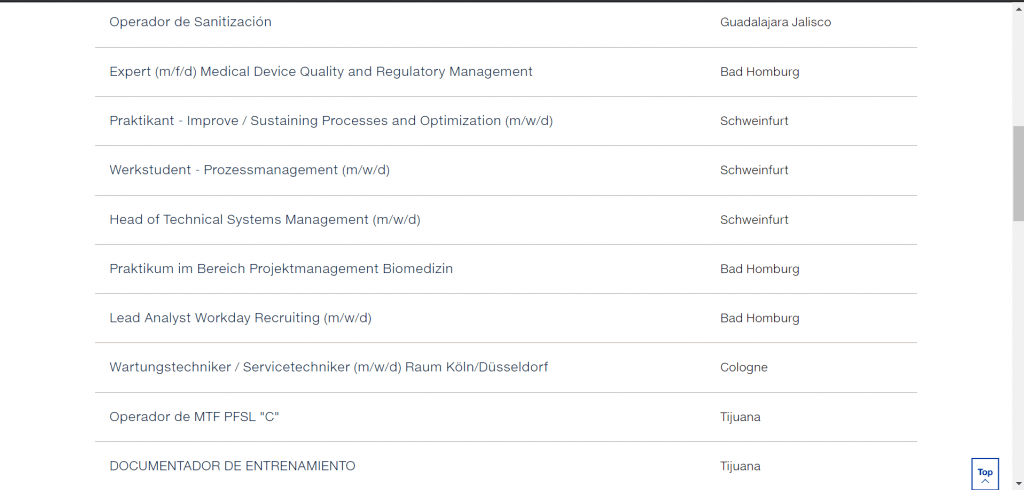
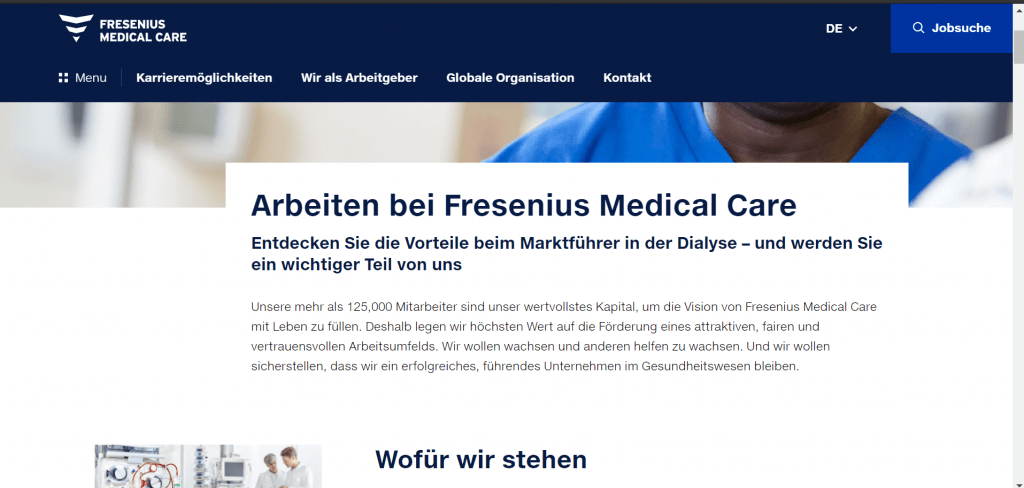
HeidelbergCement
Die Bau- und Rohstofffirma mit Hauptsitz in, wie der Name schon sagt, Heidelberg, geht das Thema gendern recht gut an. Auf der Karriere-Seite kann man sofort Wortergänzungen wie Naturwissenschaftler/in erkennen. Generell gibt der Konzern den Eindruck ab, dass dieses Thema einen sehr hohen Stellenwert im Betrieb hat. Das führt auch dazu, dass nicht der Eindruck erweckt wird: „Wir gendern nur weil Wir müssen“, wie schon bei anderen Konzernen dieser Liste. Auch wenn die Wortumwandlung noch nicht ganz bei den Stellenanzeigen angekommen ist, sondern hierbei nur die (m/w/d)-Form verwendet wird, bewegt sich HeidelbergCement mit ihrem Ansatz auf jeden Fall in die richtige Richtung. Dennoch ist noch ein wenig Luft nach oben. Im großen und Ganzem sind das solide zwei Punkte.
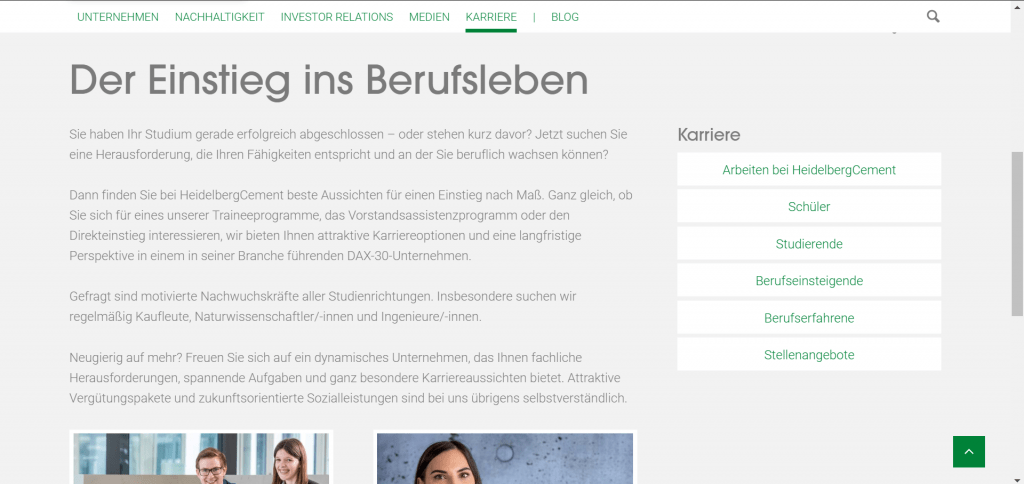
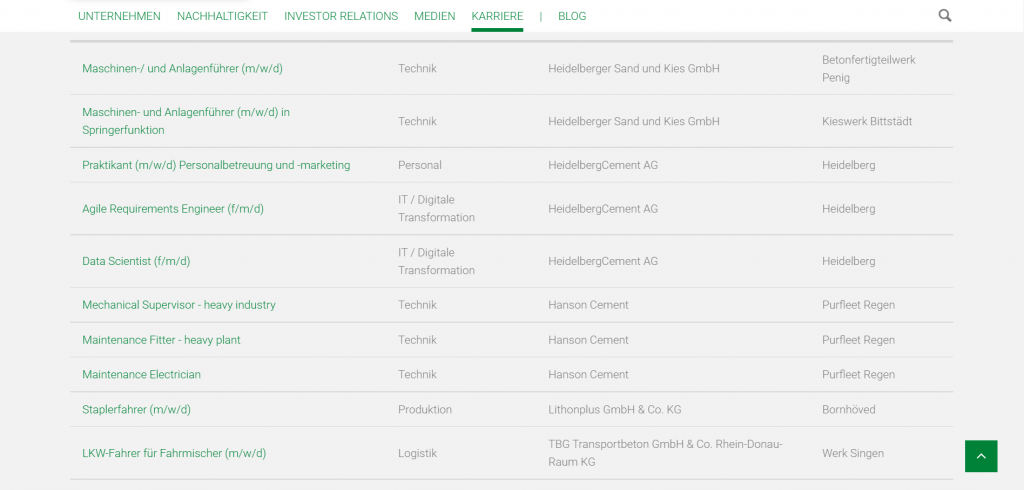
HelloFresh
Das börsenorientierte Lebensmittelunternehmen aus Berlin wirbt mit seiner Vielfalt und der Offenheit die in der Firma herrscht. Überraschender Weise konnte HelloFresh in unserem Ranking jedoch nur einen von zwei Punkten erzielen. Auf der Homepage der Karriere-Seite findet man überhaupt keine persönlichen Ansprachen an Mitabreiter*innen oder sonstiges. Insgesamt kommt diese Konzept mehr wie eine Art Aushilfe, nicht Gendern zu müssen, rüber. Dadurch konnten wir hier keine Punkte verteilen. Die Stellenanzeigen besitzen zwar meistens eine englische Bezeichnung, was auch einer Art des Gendern ist, die einzelnen die deutsch sind jedoch, werden nur in der maskulinen Form angegeben. Man muss jedoch Anmerken, dass die (m/w/d)-Form auch konsequent, sogar bei englischsprachigen Bezeichnungen, durchgesetzt wurde.
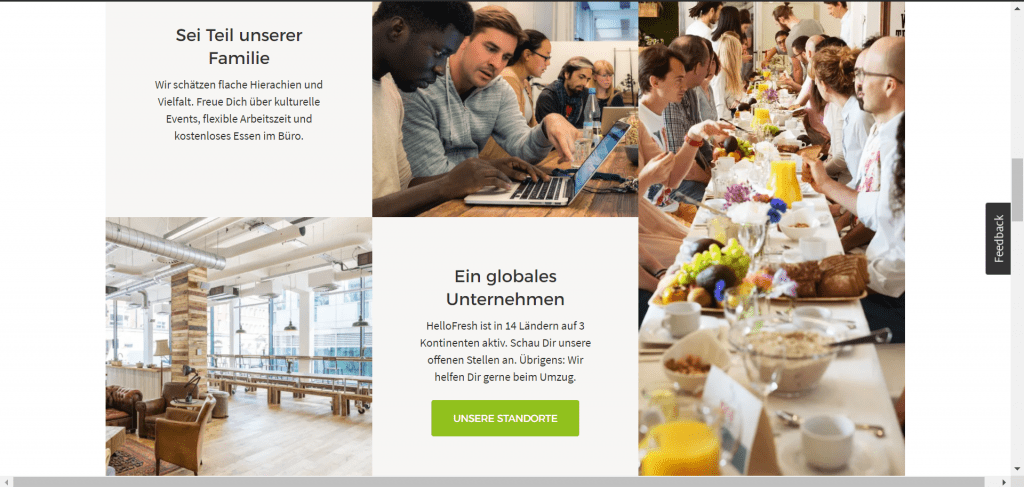
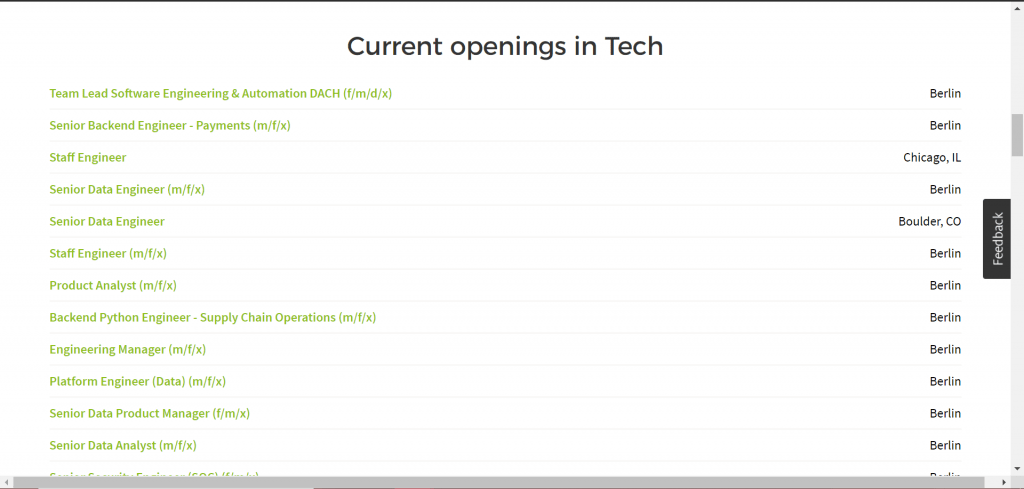
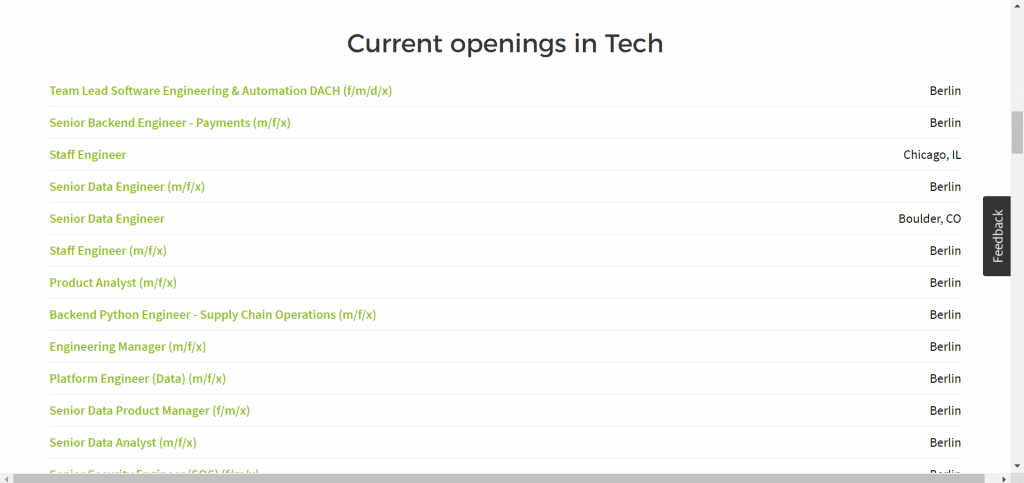
Henkel Vz.
Die Henkel Vz. ist ein börsenorientierter Konsumgüter-Konzern in dem die Vielfalt und Gleichberechtigung einen sehr hohen Stellenwert hat. Die gesamte Homepage und die Karriere-Seite sind komplett genderkonform durch gegliedert. Sogar Wortumwandlungen wie Kaufmann:Frau sind hier zu finden. Leider bemerkt man bei einem Blick auf die Stellenanzeigen, dass das Genderprinzip hier leider noch nicht angekommen ist. Zwar wird die vorgegebene (m/w/d)-Form verwendet, nicht aber einer neutrale Jobbezeichnung. In diesem Themenbereich müssen auf jeden Fall noch Veränderungen vorgenommen werden. Insgesamt macht das zwei Punkte für Henkel.
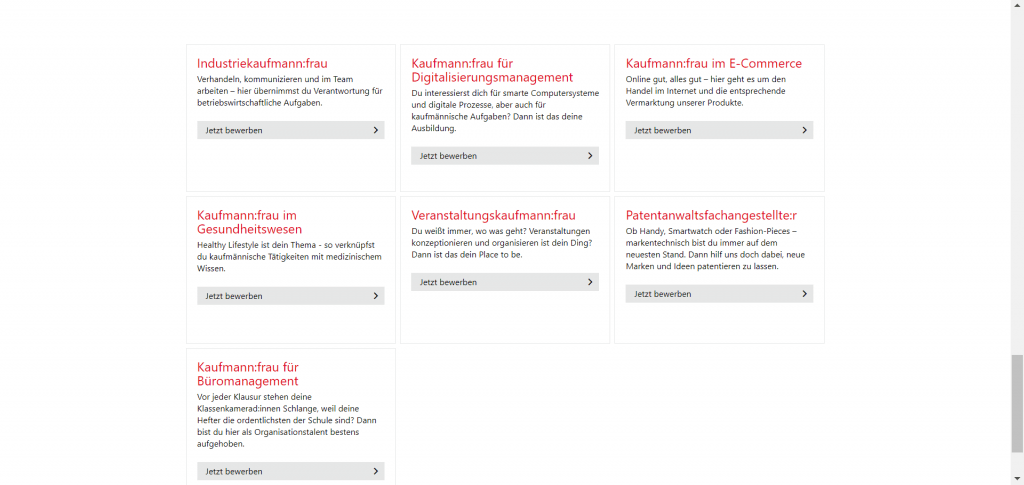
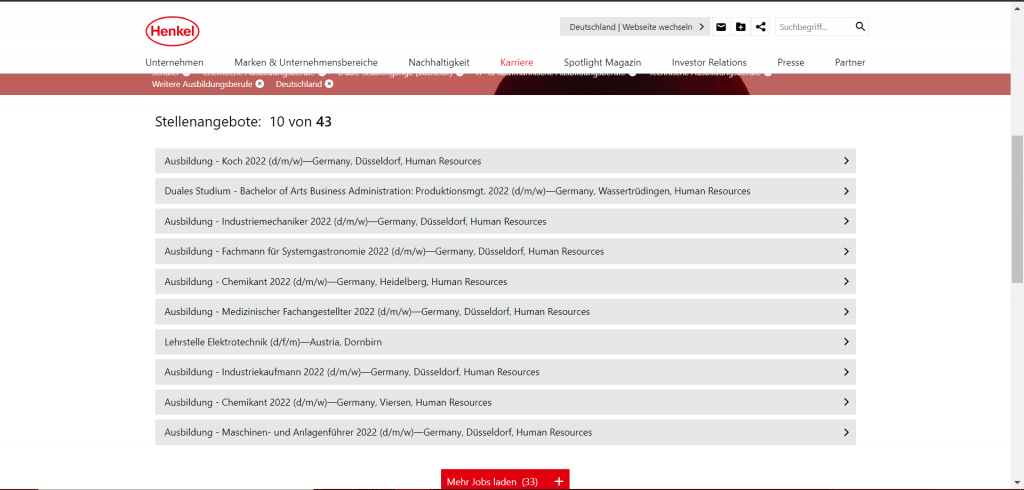
Infineon
Die Infineon Technologies AG aus Neubiberg ist auch drauf und dran sich in eine komplett genderkonforme Webseite zu verwandeln. Alle Fließtexte sind korrekt gegendert sowie mit Wortumwandlungen, als auch mit gewissen Wortergänzungen. Die Stellenanzeigen sind alle mit der (m/w/d)-Form versehen. Der einzige Aspekt, der uns für die volle Punktzahl gefehlt hat ist, dass bei den wenigen deutschen Begrifflichkeiten im Bereich Jobssuche nicht auf eine genderkonforme und neutrale Bezeichnung geachtet wird. Somit also unser Ergebnis: zwei von drei möglichen Punkten.
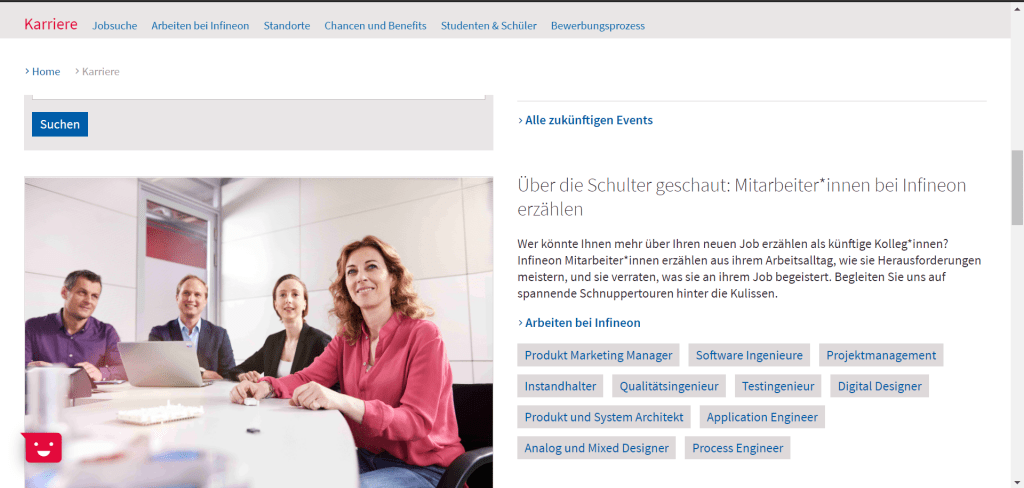
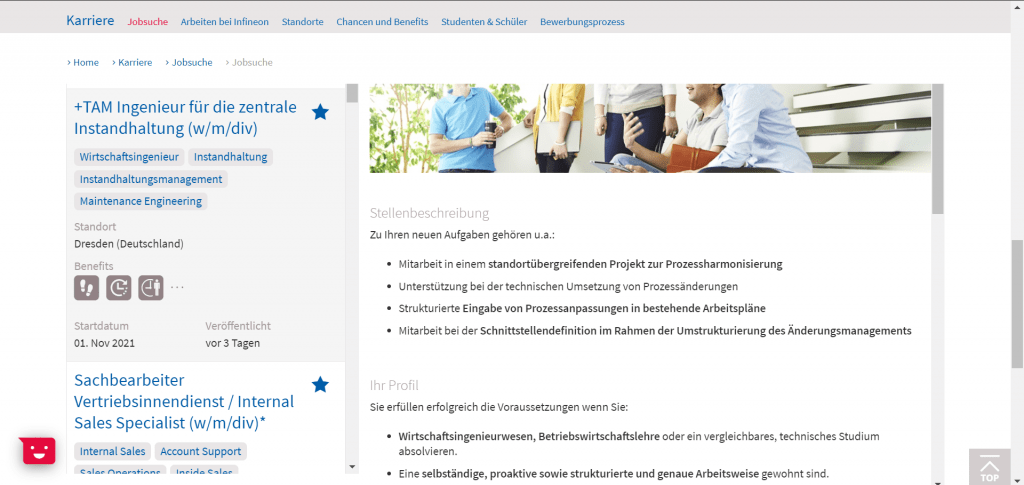
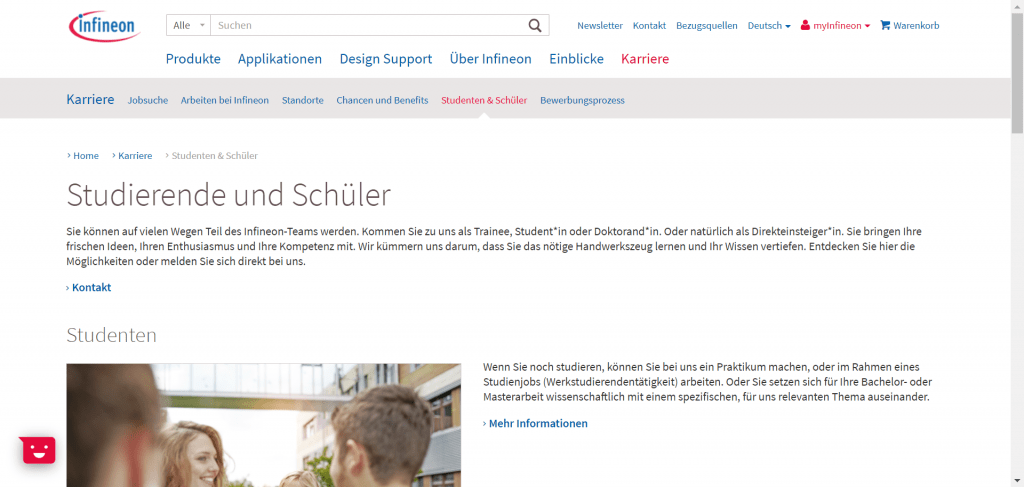
Linde plc
Der deutsche Industriekonzern mit jetzigem Sitz in Dublin hat bei unserer Studie in allen Bereichen bestanden. Von der Ansprache in Überschriften bis hin zu einzelne Fließtexten ist über all eine genderneutrale Ansprache, wie z.B. Schüler*innen zu finden. Dieses Konzept zieht sich auch kontinuierlich bis hin zu den Stellenanzeigen durch. Hier wird zum einen auf die korrekte (m/w/d)-Form geachtet, aber auch konstante Wortumwandlungen bei den Jobbezeichnungen ist aufzufinden. Ein wichtiger Schritt von Lindes Seite aus in die richtige Richtung und auch eine vorbildliche Handhabung dieses Themas. Somit gehört Linde plc zu den wenigen Firmen unserer Studie, die in allen Kategorien Punkte erzielen konnten.
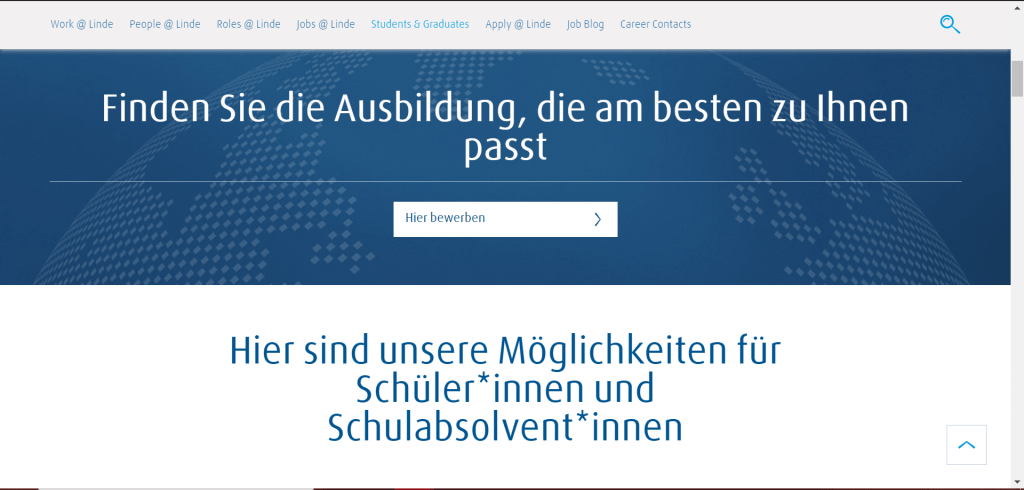
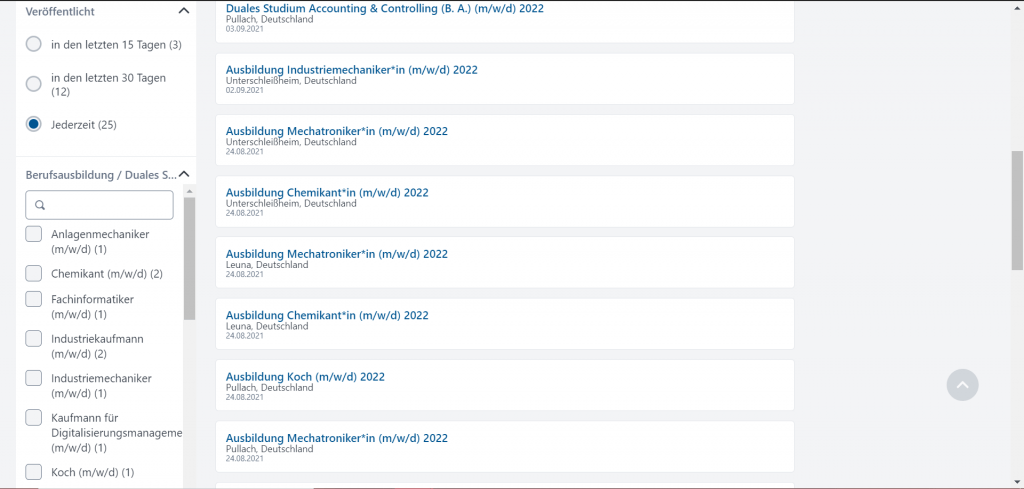
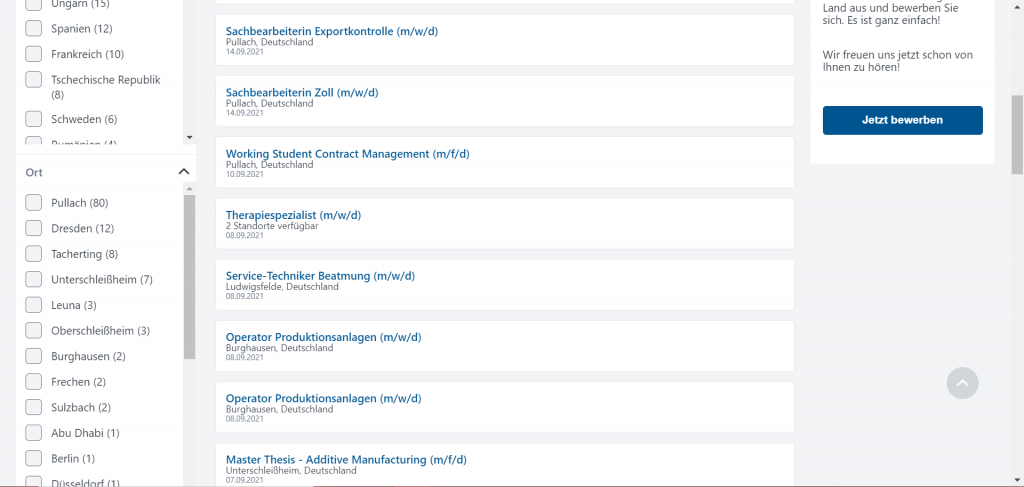
Merck
Die deutsche Pharma- und Chemiefirma Merck hat in ihren Fließtexten und auch auf dem Rest ihrer Website überall eine genderneutrale Rechtschreibweise verwendet. Auch wenn bei den Stellenanzeigen leider die Bezeichnungen noch nicht genderkonform geupdatet wurden, ist hinter jedem Jobangebot die Spalte „(all genders)“ enthalten. Zwar ist hier nicht die (m/w/d)-Form benutzt, jedoch wirkt das „all genders – Konzept“ sehr ansprechend und inkludierend. Merck ist somit die erste Firma unserer Studie die dieses Konzept in die Tat umgesetzt hat. Da wir leider keine extra Punkte vergeben können, hat Merck unsern Test mit zwei von drei Punkten abgeschlossen. All genders verdient dennoch eine lobende Anerkennung.
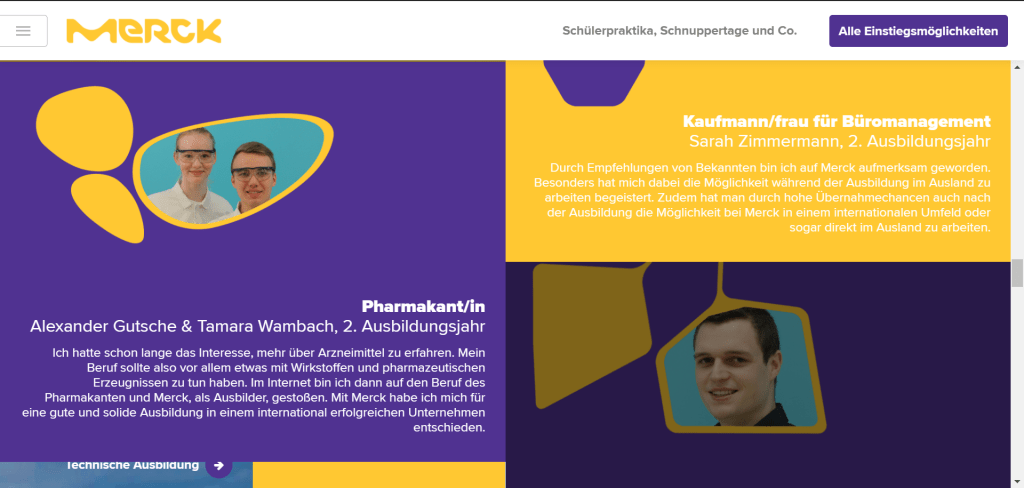
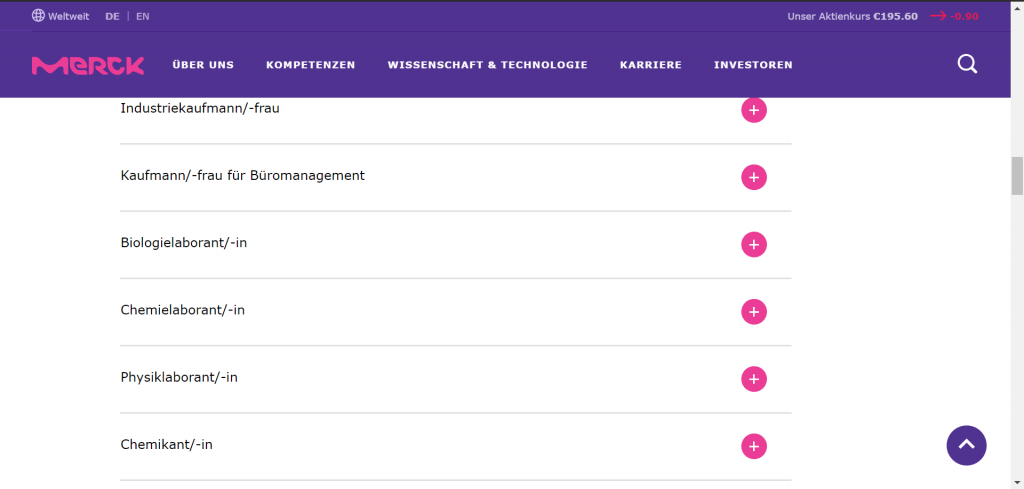
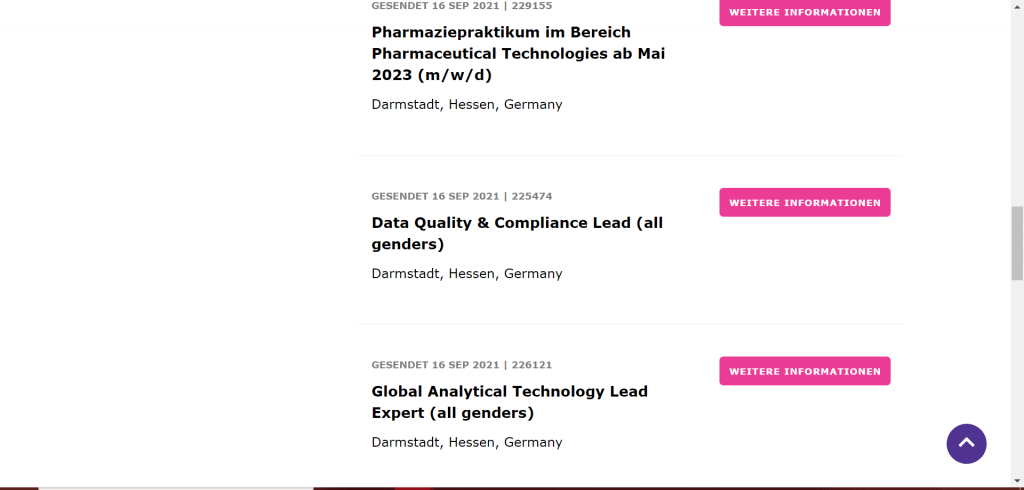
MTU Aero Enignes:
Das Münchner Unternehmen MTU Aero Engines, welches sich der Herstellung und Instandhaltung von Turbinen beschäftigt, erzielte in unsere Studie insgesamt zwei von drei Punkten. Wie üblich verwendet auch dieser Konzern die rechtliche (m/w/d)-Form bei den einzelnen Stellenanzeigen. Wortumwandlungen sind hier dennoch nicht zu finden. Wirft man einen Blick auf die Homepage und die Startseite der Karriere-Seite, sieht das ganze aber schon wieder anders aus. Alle Fließtexte sind genderkonform formuliert genauso wie die Wegweiser oder Blöcke zu den einzelnen Berufsgruppen. Seien es die Schüler:innen oder die Absolvent:innen, jedes Wort ist komplett neutral dargestellt. Insgesamt fehlt also nur noch ein kleiner weiterer Schritt für eine komplett genderneutrale Webseite.
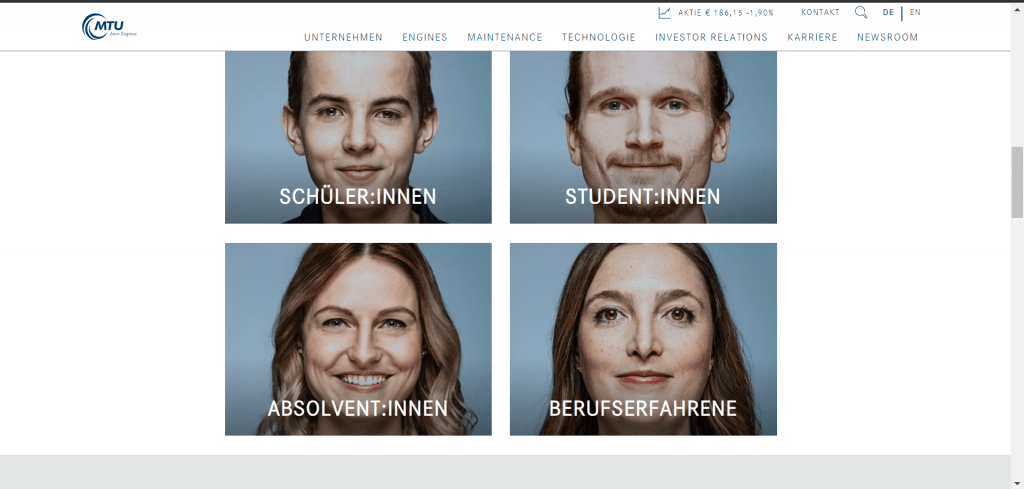
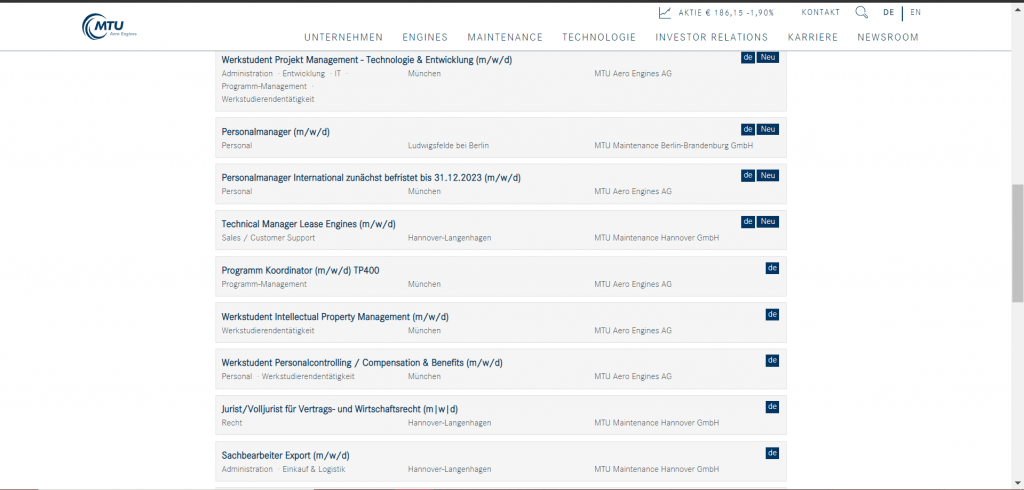
Munich RE
Die Münchner Rückversicherungs-Gesellschaft ist eines der Problemkinder unserer Liste. Zum einen findet man weder auf der Start- oder Homepage genderneutrale Fließtexte. Von den Fließtexten ganz zu schweigen. Wenn auf der Webseite die Rede von bestimmen Personengruppen, seien es Mitarbeiter*innen oder Schüler*innen ist, wird immer nur die maskuline Form genannt und angesprochen. Die Jobbezeichnungen in Stellenanzeigen sind folglich auch nicht umgewandelt. Der Punkt, der uns am meisten überrascht hat ist, dass sogar die (m/w/d)-Form bei den Stellenangeboten fehlt. Es ist nicht etwa eine andere Art des Gendern gegeben, wie wir sie bereits bei anderen Firmen entdeckt haben, sondern schlichtweg gar keine. Das ist nicht nur moralisch und imagetechnisch verwerflich, sondern schließt eben auch nicht alle Personen mit ein. Aus diesen gennannten Aspekten ergibt sich unsere Wertung null Punkten. Durchgefallen!
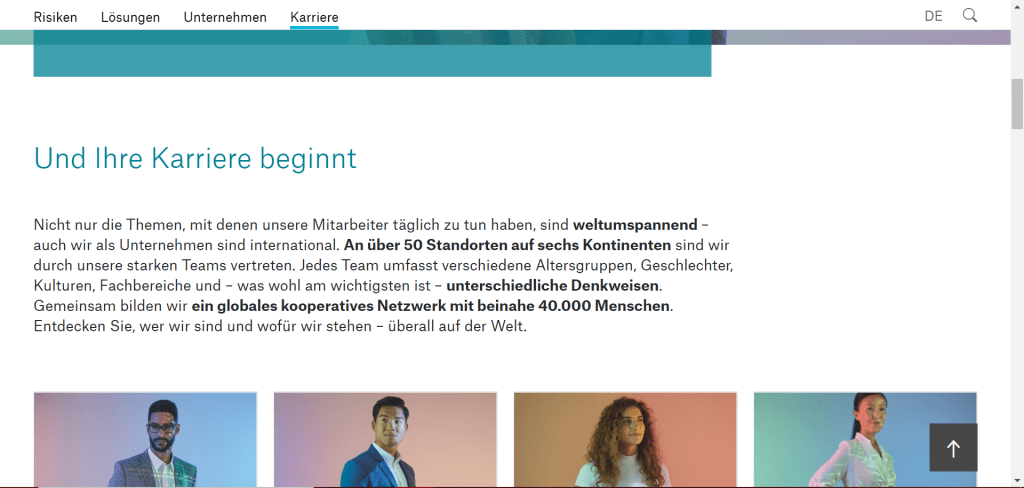
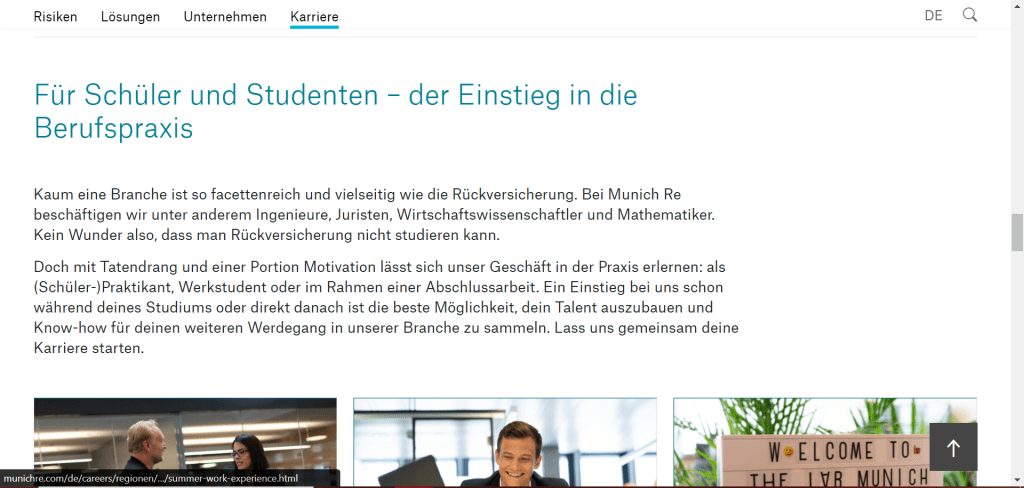
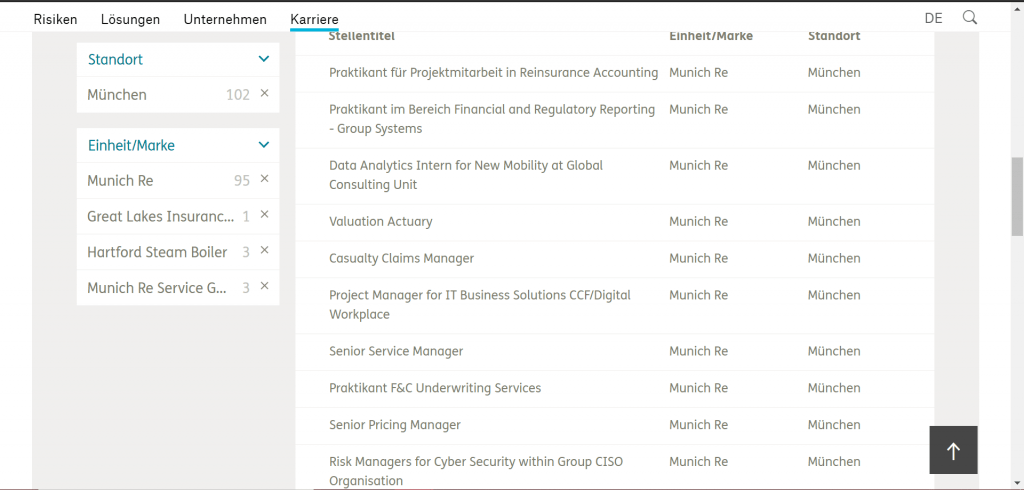
Porsche SE
Der nächste Kandidat auf unsere Liste ist die Holdinggemeinschaft des Automobilherstellers aus Stuttgart. Wenn man sich das erste mal durch die Webseiten und Beiträge der Porsche SE Seite klickt, steht eins schon einmal fest: Hier wird nicht gegendert. Nun hat diese Webseite aber auch einen extra Reiter der sich mit der Vielfalt, Gleichberechtigung und der Frauen Quote beschäftigt. Man könnte meinen, hier haben sie bestimmt auf eine genderneutrale oder wenigstens genderkonforme Rechtschreibung geachtet, doch auch dies entspricht bei weitem nicht der Wahrheit. Wie es bei den Stellenanzeigen abläuft kannst du dir bestimmt schon denken. Weder Wortergänzungen geschweige den Wortumwandlungen sind hier zu finden. Nur die gesetzlich vorgeschrieben (m/w/d)-Form wurde eingehalten. Einen von drei Punkten. Ein ganz schön ernüchterndes Ergebnis für so eine große Firma.
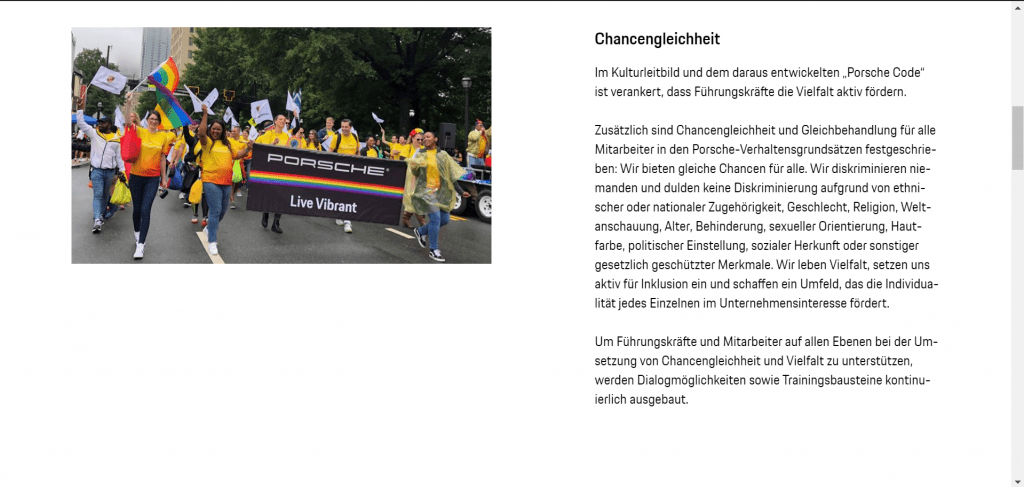
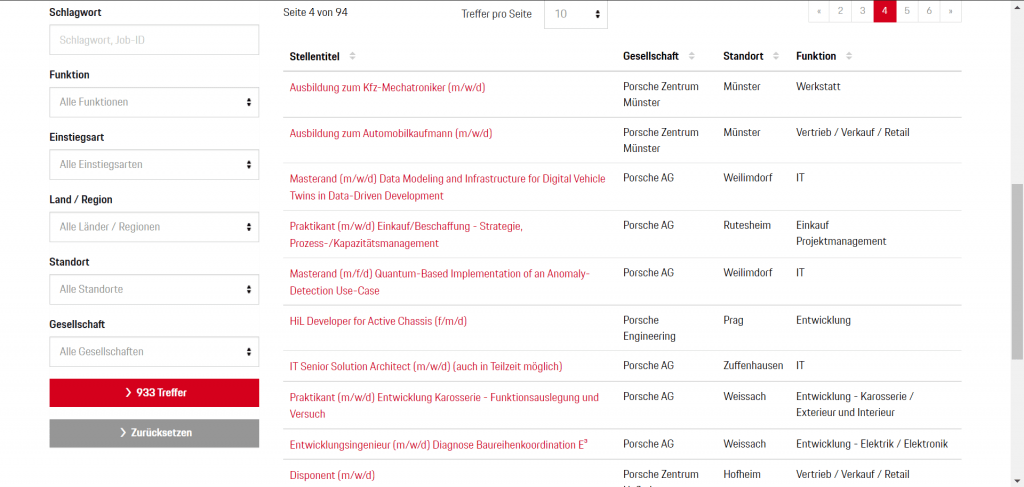
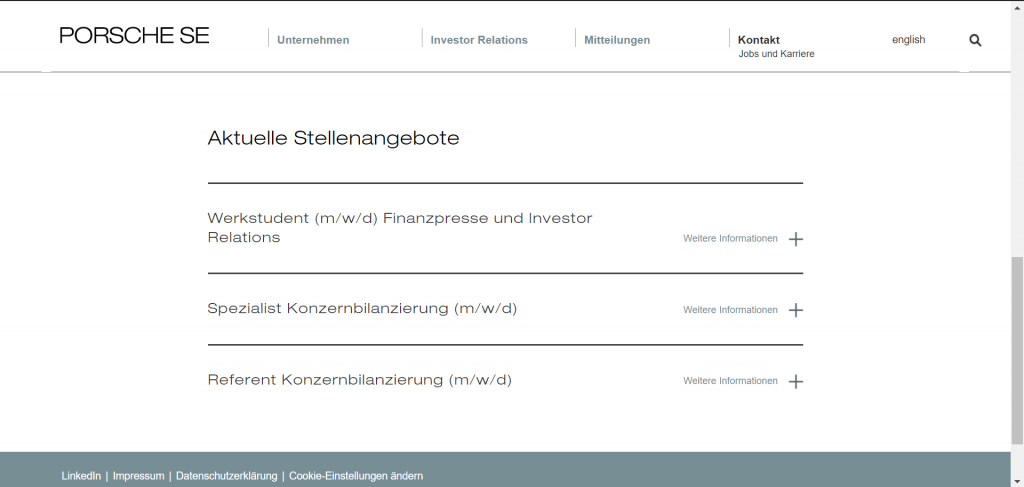
Puma
Der Textilhersteller, ebenfalls aus Herzogenaurach, gehört zu den etwas spezielleren Konzernen unsere Studie. Bei Fließtexten oder Blogbeiträgen kann man vergebens nach genderkonformer Rechtschreibung suchen. Überall wird nur die maskuline Form verwendet und angesprochen. Sogar die gesetzlich vorgegebene (m/w/d)-Form ist in den Stellenanzeigen nicht zu finden. Natürlich ist hier auch zu beachten, dass der Großteil der aufgezeigte Jobs einen englisch-sprachigen Titel besitzt. Das ist jedoch keine Entschuldigung für die fehlende Genderform am Ende der Bezeichnung die bei jedem Job mit deutschem Standort gegeben sein muss. Das ungewöhnlich bei Puma ist jedoch, dass die vereinzelten deutschen Jobbezeichnungen komplett und korrekt gegendert sind. Mit Wortumwandlungen oder Ergänzungen. Dies reicht jedoch nicht für die volle Punktzahlt aus, weshalb wir zu einem End-Ergebnis von nur einem Punkt kommen.
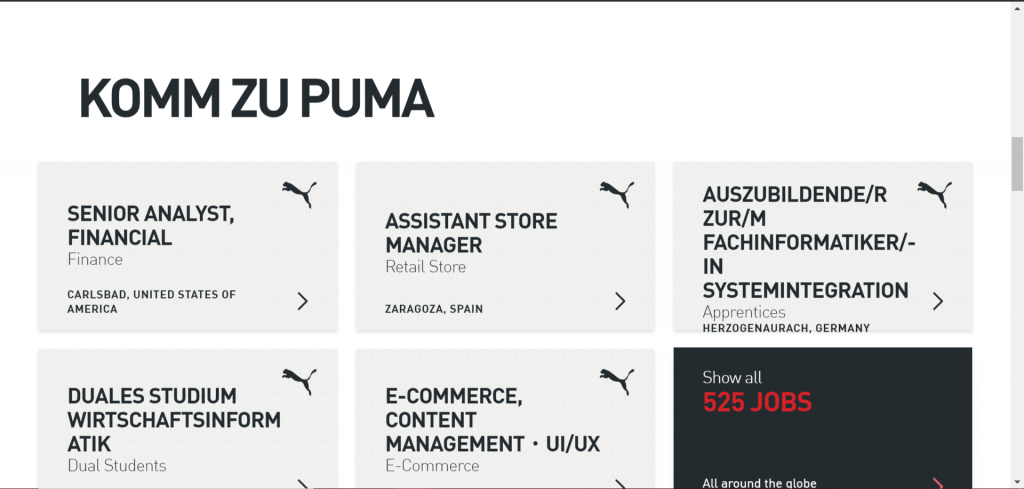
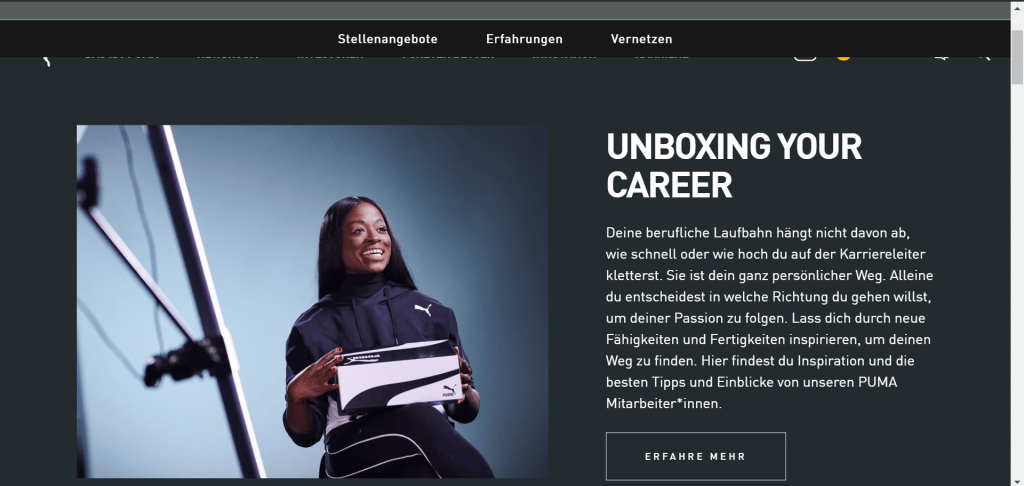
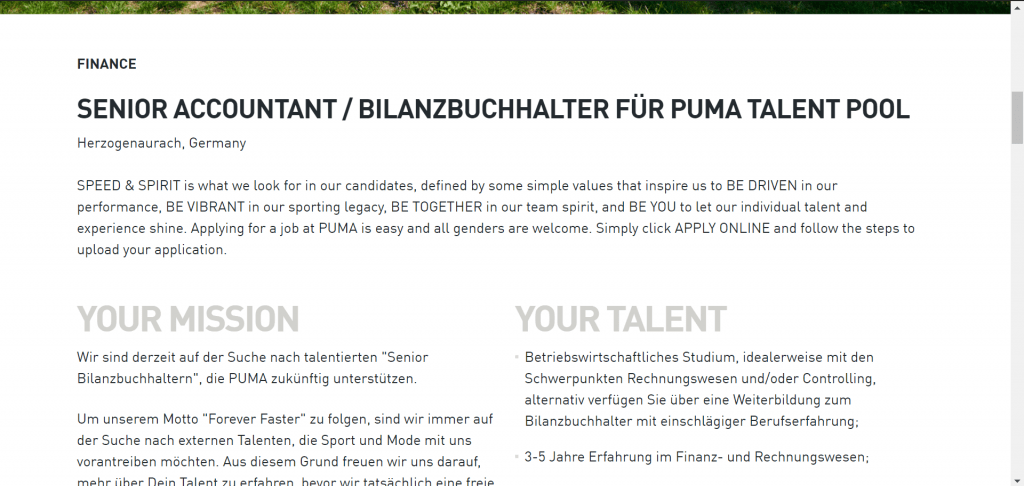
QIAGEN
Der Anbieter von Probenvorbereitungs- und Testtechnologien mit Hauptsitz in Hilden bei Düsseldorf ist recht schlau mit dem Thema rund um das Gendern umgegangen. Die komplette Website ist in Englisch verfasst, was die genderkonforme Rechtschreibung, vor allem in Fließtexten, erheblich erleichtert. Ohne große Rücksichtnahme auf Wortumwandlungen können hier Texte verfasst werden, da es in der englischen Sprache keine Artikel oder Sonstiges gibt. Somit stehen alle Nomen und Bezeichnungen im Neutrum. Bei den Stellenanzeigen ist die (m/w/d)-Form vorhanden und die meisten Jobs haben eine englische Bezeichnung. Dennoch findet man vereinzelt deutsche Begrifflichkeiten. Hier ist jedoch nur die maskuline Form genannt, obwohl genderkonforme Bezeichnungen in diesem Falle nur einen minimalen Aufwand benötigt. Aus diesem Grund erhält die Firma in unserem Ranking nur zwei von drei Punkten.
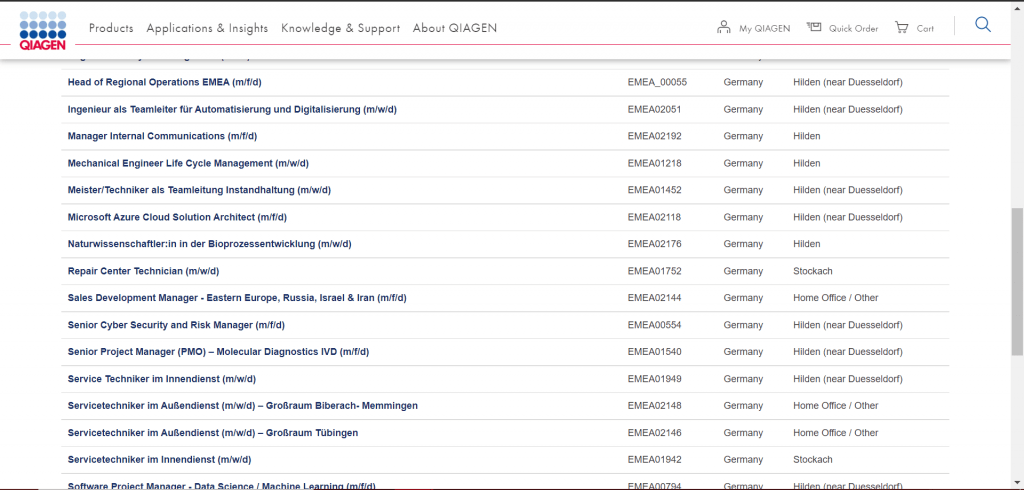
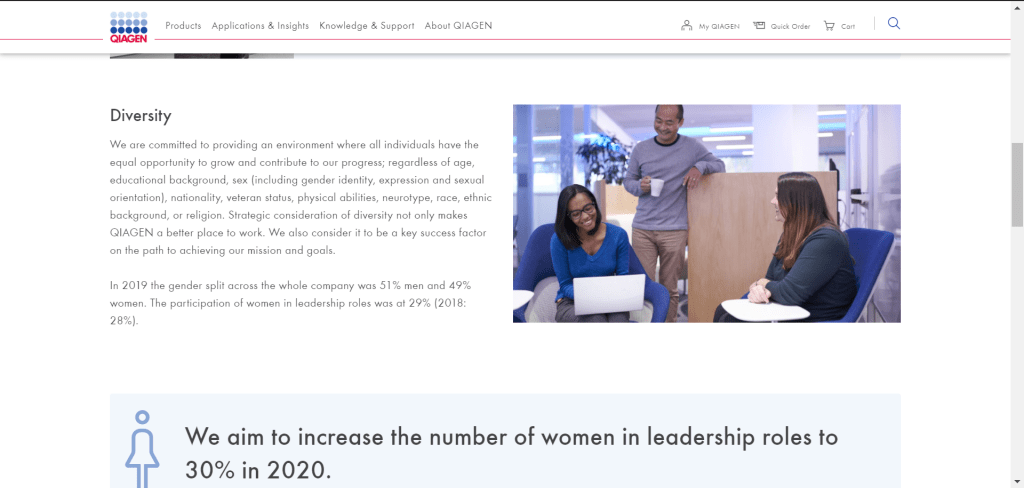
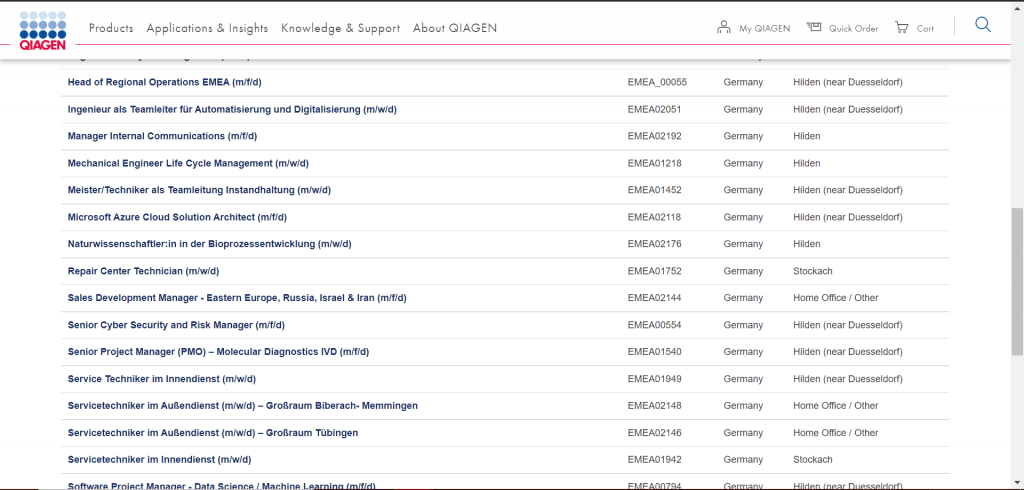
RWE
Der Energieversorgungskonzern RWE AG. aus Essen gehört zu den vier großen Energieversorgern Deutschlands. Zeitweise galt die Firma sogar als zweit größter Versorger Deutschlands. In dieser Firma spielt die Gleichberechtigung eine große Rolle. Man findet viele Beiträge zur Vielfalt, Diversity und Gleichberechtigung sowie einen extra Beitrag zu Gender & Geschlechter Orientierung. Alle Fließtexte, Beiträge und sogar Wegweiser sind konsequent mit der „:innen“- Form verfasst. Leider wurde dieses Konzept nicht bis hinzu den Stellenanzeigen durchgeführt. Zwar findet man hier die vorgeschrieben (m/w/d)-Form dennoch sind Jobbezeichnungen nur mit der maskulinen Form ausgeschrieben. Um in unserer Studie die gesamt Punktzahl von drei Punkten zu erreichen muss dieser Abschnitt noch auf genderkonforme Bezeichnungen geändert werden.
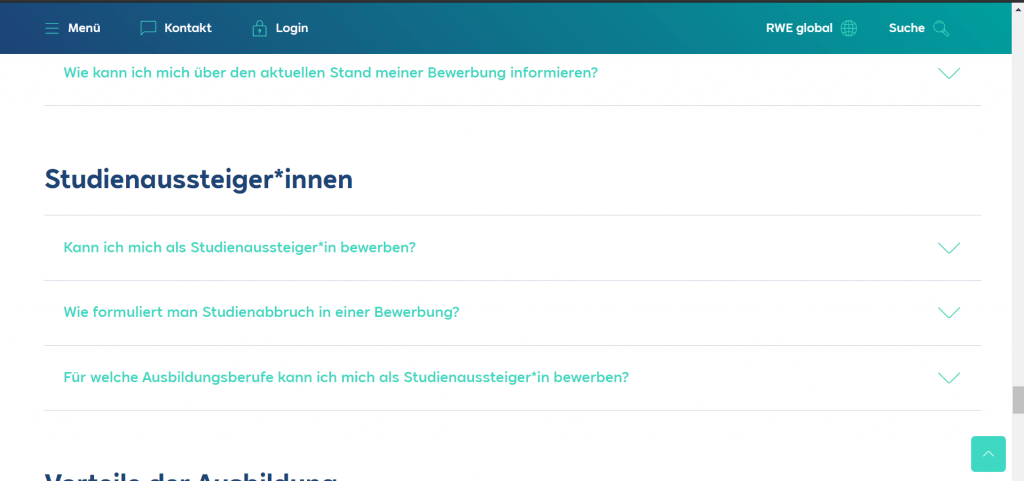
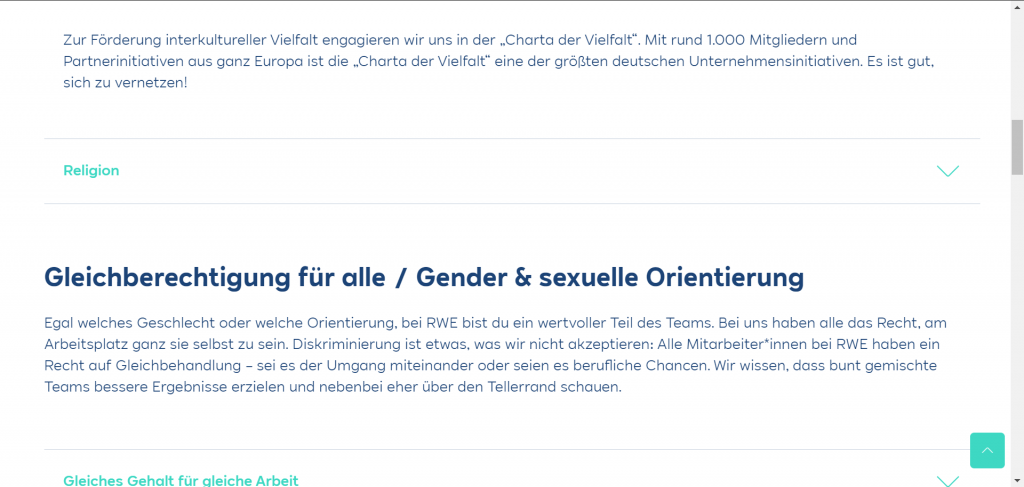
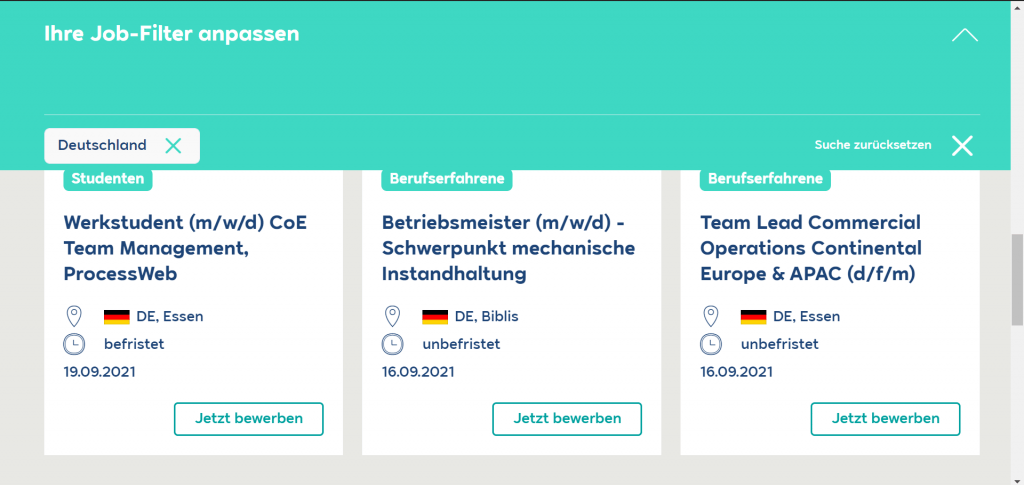
SAP:
Das Walldorfer Softwareunternehmen SAP ist der größte europäische Anbieter von allem rund um Softwares. Die Homepage von SAP enthält viele Beiträge zur Kultur bei SAP und zur Gleichberechtigung. Ein sehr nennenswerter Punkt ist die konsequente Einsetzung von komplett genderneutralen Bezeichnungen. Zum Beispiel werden auf der Homepage und bei Fließtexten Worte wie Mitarbeitende benutzt, die absolut neutral gegenüber jedem Geschlecht stehen. Dennoch muss man anmerken, dass dieses Konzept bei den Jobangeboten leider vernachlässigt wurde. Hier ist nur auf die vorgegebene (m/w/d)-Form geachtet, genderneutrale Bezeichnungen sucht man hier vergebens. Dennoch wär es kein großer Aufwand nach der Homepage auch noch die Stellenanzeigen zu überarbeiten. Insgesamt zwei von drei Punkten.
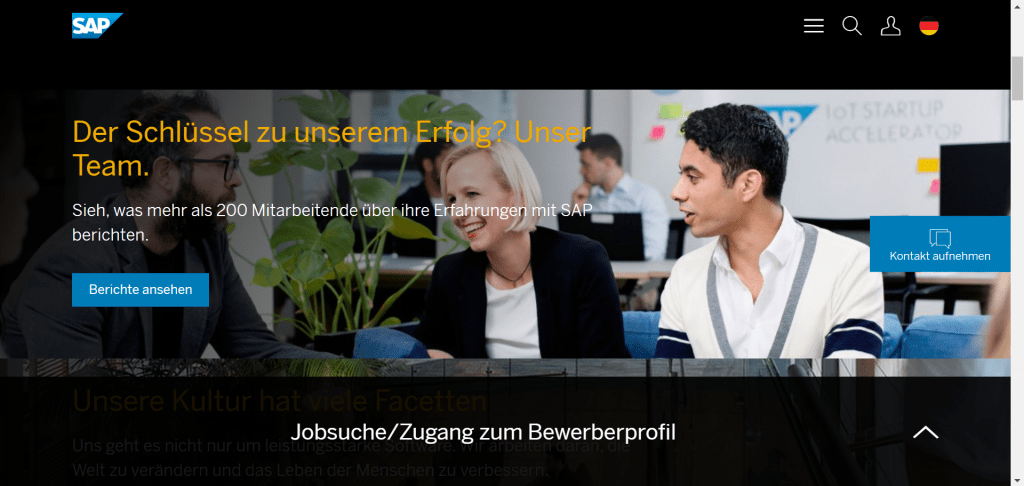
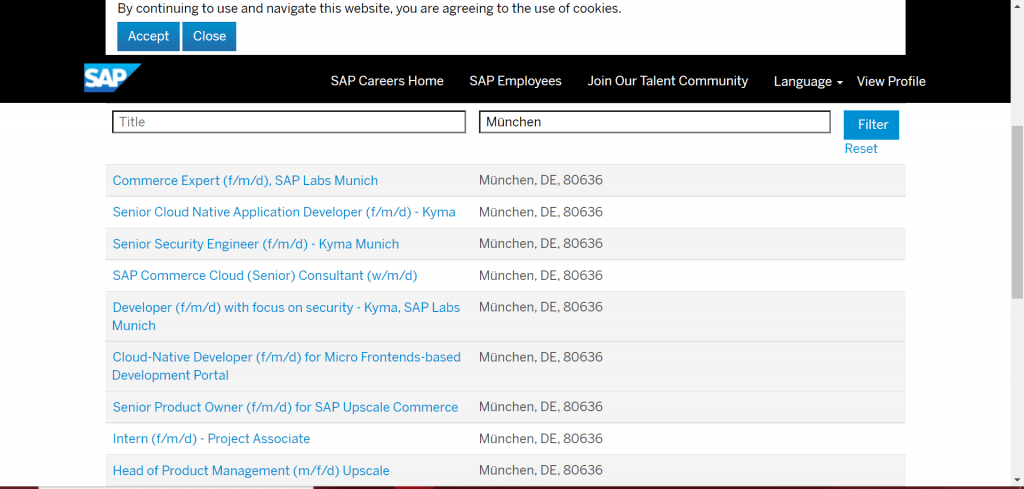
Sartorius Vz.
Der Pharma- und Laborzulieferer Sartorius mit Sitz in Göttingen wurde 1870 von Florenz Sartorius gegründet. Obwohl dieses Unternehmen schon zu den Urgesteinen in der Pharmabranche zählt, sind sie im Bereich Gleichberechtigung und Inklusion sehr fortschrittlich. Die gesamte Webseite inklusive Wegweiser und Überschriften ist konsequent genderneutral gehalten. Es wurden sogar weitestgehend komplett neutrale Bezeichnungen eingesetzt wie z.B. „Studierende“. Bei anderweitigen Bezeichnungen, bei denen diese Form nicht möglich ist, wurde auf die „*innen“-Form zurückgegriffen. Diese komplett neutrale Form war bei den wenigsten Firmen zu finden und hat deswegen eine lobende Bemerkung verdient. Leider aber ist diese Form bei den Stellenanzeigen nicht verwendet. Hier wurde auf die grundgegebene (m/w/d)-Form zurückgegriffen. Insgesamt sind das dennoch solide zwei von drei Punkte.
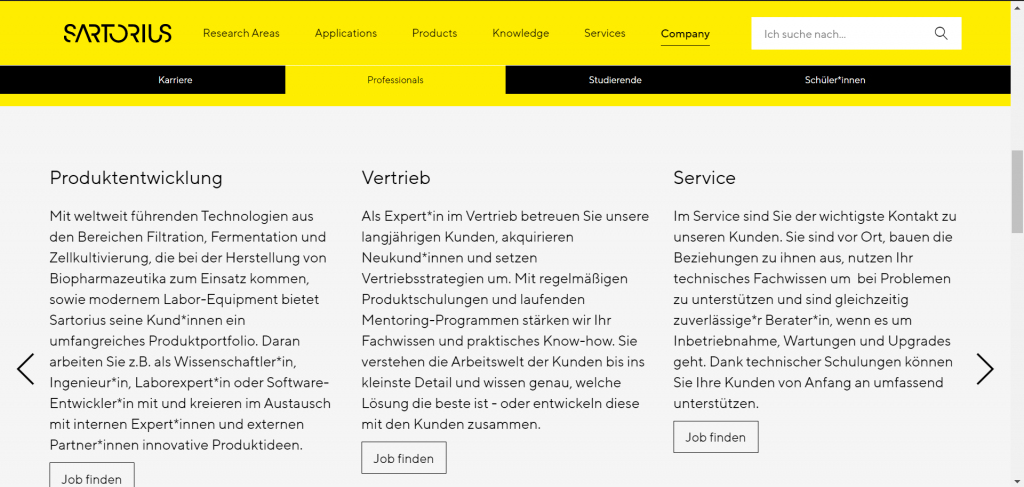
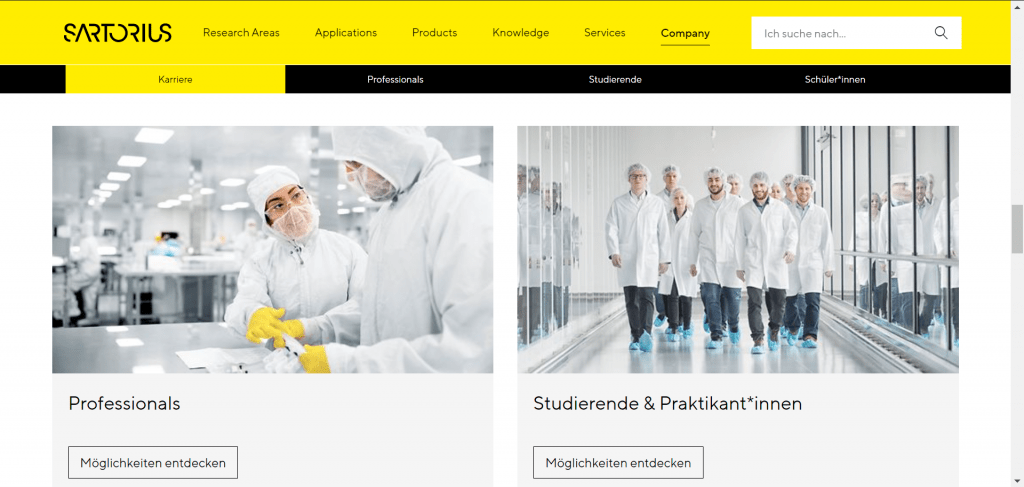
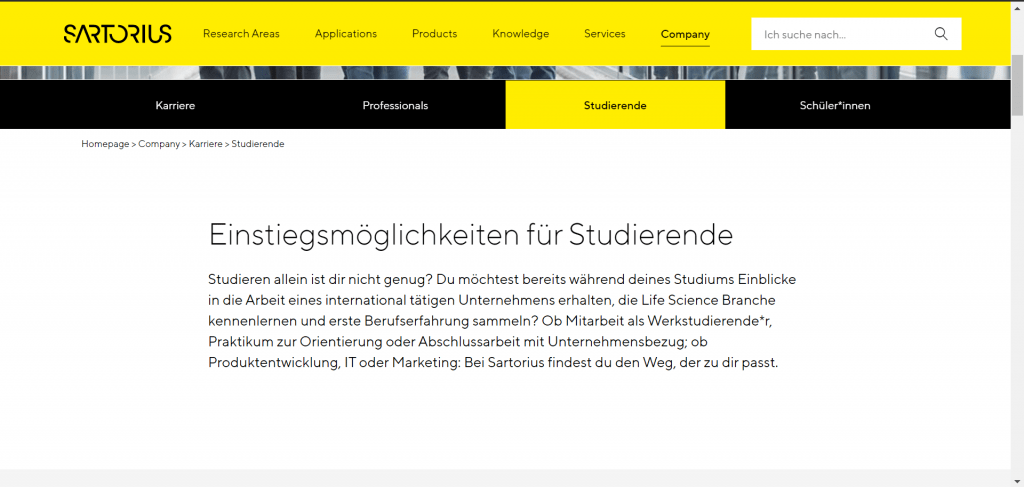
Siemens AG
Die Siemens AG ist ein Mischkonzern mit den Schwerpunkten auf Automatisierung und Digitalisierung im Bereich der Industrie, Infrastruktur, Energiesysteme oder in der Medizintechnik. Auch hier ist auf der gesamten Webseite auf eine konforme Handhabung dieses Themas geachtet. Es wurde sogar die komplett neutrale Wortform je nach Gelegenheit genutzt. Bei anderen Begrifflichkeiten, bei denen dies nicht möglich ist, wurde die Ansprache an z.B. „Schülerinnen/Schüler“ gerichtet. Auch existieren eine Menge Beiträge rund um das Thema Vielfalt. Um so mehr überrascht es, dass wieder Mals die Stellenanzeigen außer Acht gelassen wurden. In den Jobanzeigen wurde, abgesehen von der vorgeschriebenen (m/w/d)-Form, nur die maskuline Ansprache verwendet. Deshalb müssen wir einen von den drei Punkten abziehen und kommen somit zu einem Endergebnis von zwei Punkten.
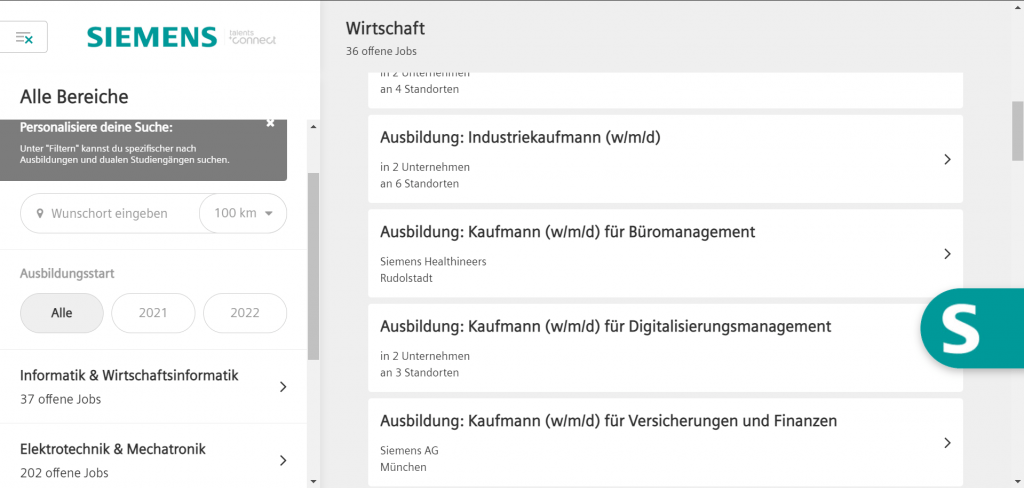
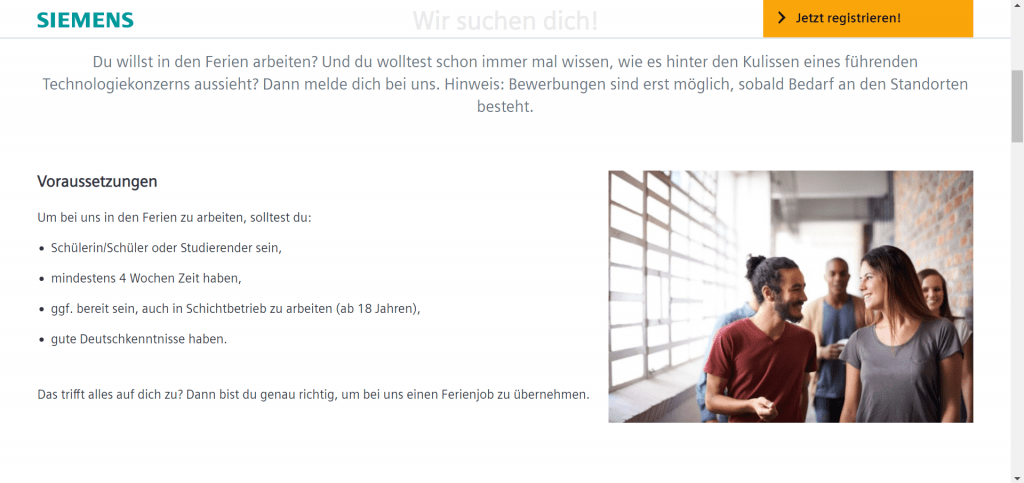
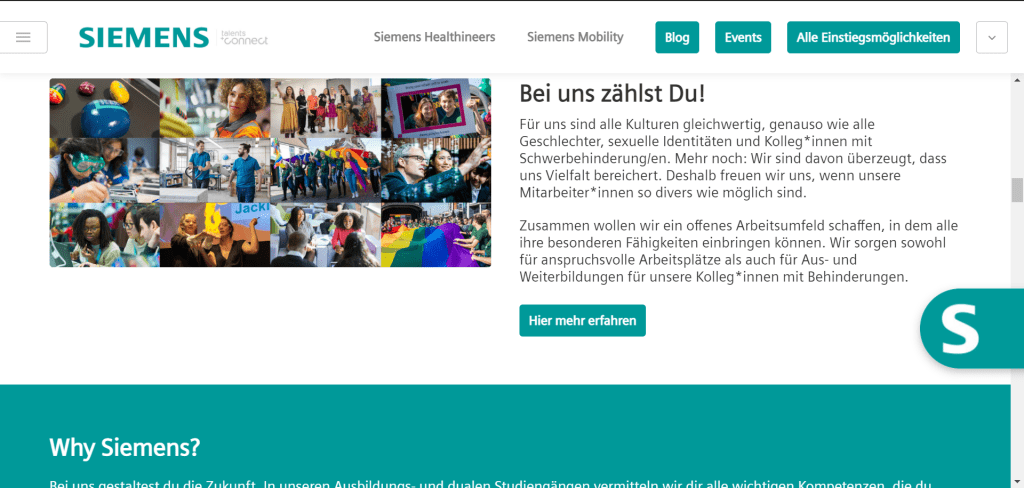
Siemens Energy
Machen wir weiter mit der Siemens Energy AG die sich als Unternehmen mit der Elektro- und Energietechnik beschäftigt. Zu ihrem Portfolio gehört unter anderem die Energieerzeugung, die Energieübertragung sowohl wie Industrielösungen. Ähnlich wie bei der Siemens AG wird auch hier auf gendergerechte Rechtschreibung geachtet. Dennoch wurde diese Thematik hier ein wenig anders angegangen. Wenn auf der Webseite oder in Fließtexten zum Beispiel von Mitarbeitern die Rede ist, so wird hier die feminine als auch die maskuline Form genannt. (z.B. „Mitarbeiterinnen und Mitarbeiter“). Aber diese Art des Genderns ist nicht unbedingt die Beste, da hier im Vergleich zu der Wortumwandlung in eine neutrale Bezeichnung, nur zwei Geschlechter angesprochen werden. Die (m/w/d)-Form ist auch hier bei den Stellenanzeigen vorhanden, jedoch sind Wortumwandlungen vergeblich zu suchen. Insgesamt also zwei von drei Punkten.
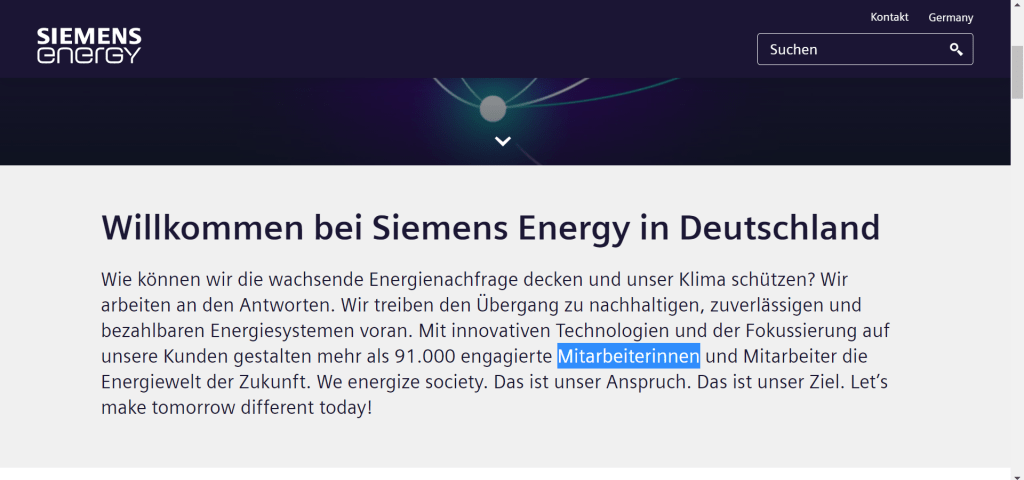
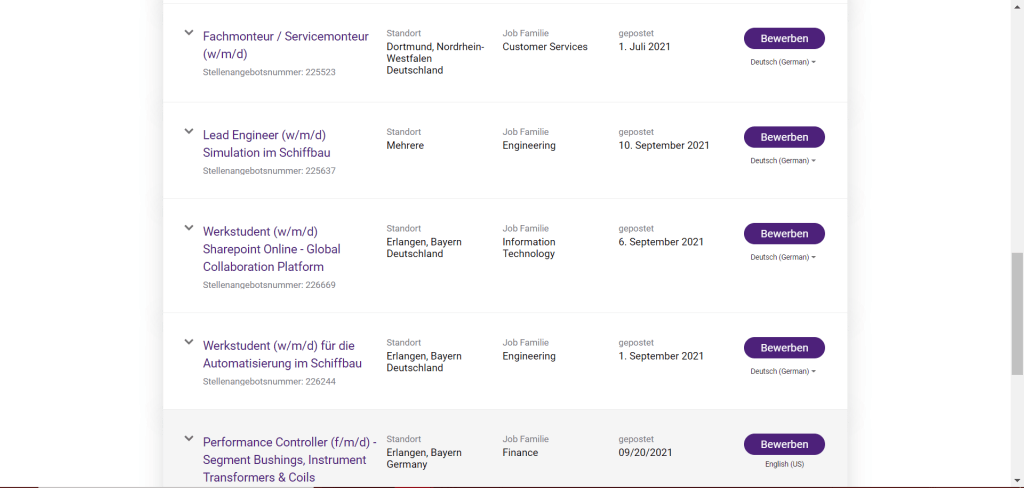
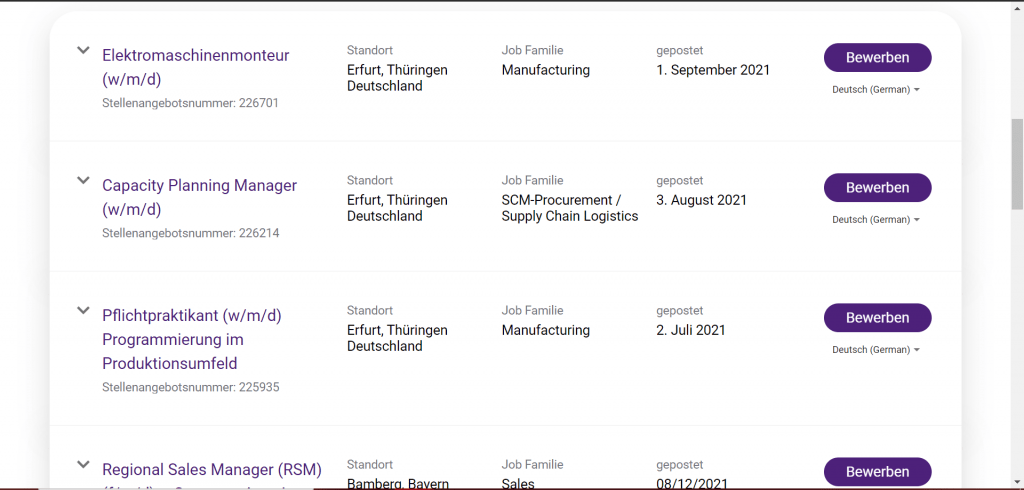
Siemens Healthineers
Den Abschluss der Siemens-Unternehmen machen die Siemens Healthineers. Die Siemens Healthineers AG ist die Muttergesellschaft, unter der die medizinischen Aktivitäten der Siemens AG zusammengefasst werden. Der Begriff Healthineers setzt sich hier aus den Wörtern „healthcare“, „engineer“ und pioneer zusammen. In Fließtexten und Überschriften ist immer die „*innen“-Form verwendet, wie zum Beispiel „Mitarbeiter*innen“. Die Webseite der Healthineers besitzt sogar einen extra Beitrag zum Thema LGBTQIA+, der schlicht besagt, dass jeder in diesem Unternehmen willkommen ist. Wie üblich ist bei den Stellenanzeigen leider nicht auf genderkonforme Rechtschreibung geachtet. Lediglich die gesetzliche (m/w/d)-Form wird hier verwendet. Eigentlich erhofft man sich nach diversen Beiträgen mehr im Bezug auf diese Thema. Im großen und ganzem dennoch zwei von drei Punkte.
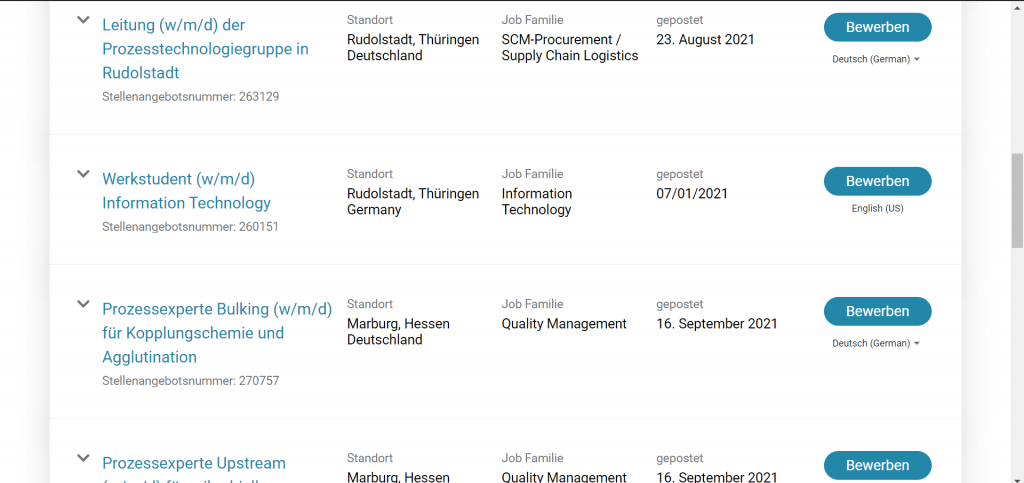
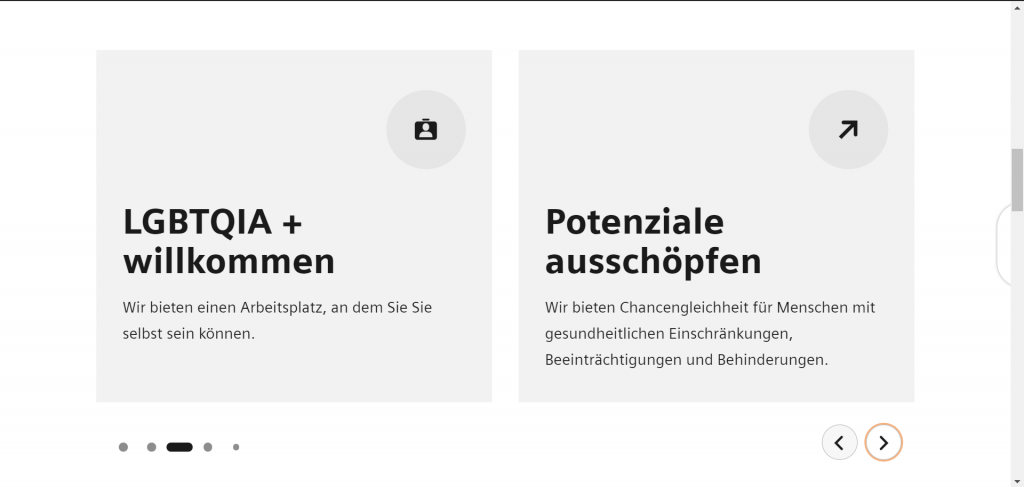
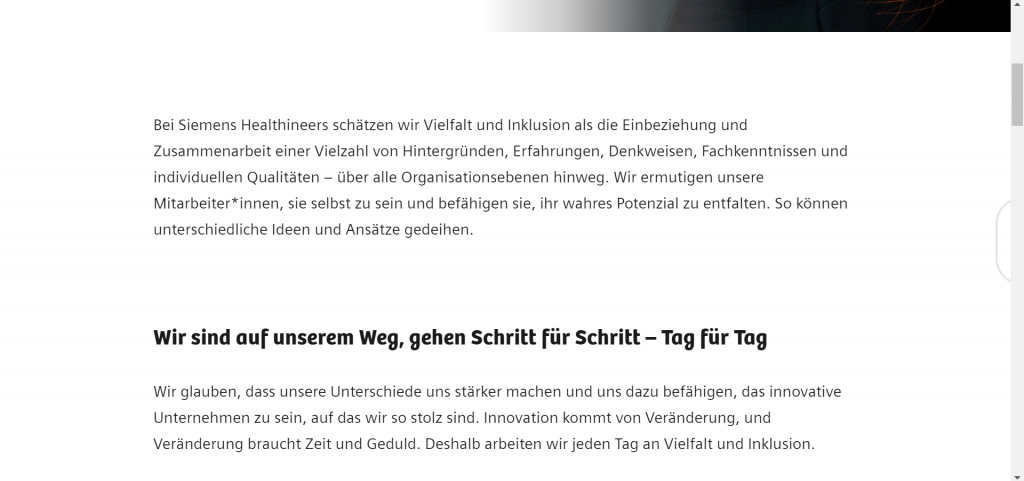
Symrise
Der börsenorientierte Anbieter von Duft- und Geschmackstoffen hat seinen Sitzt in Holzminden. Obwohl auf der Homepage mit Statistiken und Prozentzahlen zur Frauenquote und sonstiges Geworben wird, hinterlässt die Webseite durch folgende Aspekte den Eindruck, dass Diversity und Inklusion in dieser Firma eher klein geschrieben wird: Der erste Aspekt sind die Fließtexte, Aufzählungen und Wegweiser. Bei allen Texten, in denen die Rede von bestimmten Personengruppen ist, wird nur die maskuline Form angesprochen. Zum Beispiel ist immer nur der „Absolvent“, der „Schüler“ oder der „Praktikant“ gesucht. Auch die Stellenanzeigen bessern dieses Erscheinungsbild nicht. Auch hier wendet sich die Ansprache nur an die männlichen Bewerber. Zwar ist hier die (m/w/d)-Form verwendet, da dies aber so von dem deutschen Gesetz vorgeschrieben ist, ist das nicht als Glanzleistung zu werten. Durch die genannten Aspekte kommen wir zu einer Wertung von nur einem Punkt. Verbesserungen sind hier definitiv nötig.
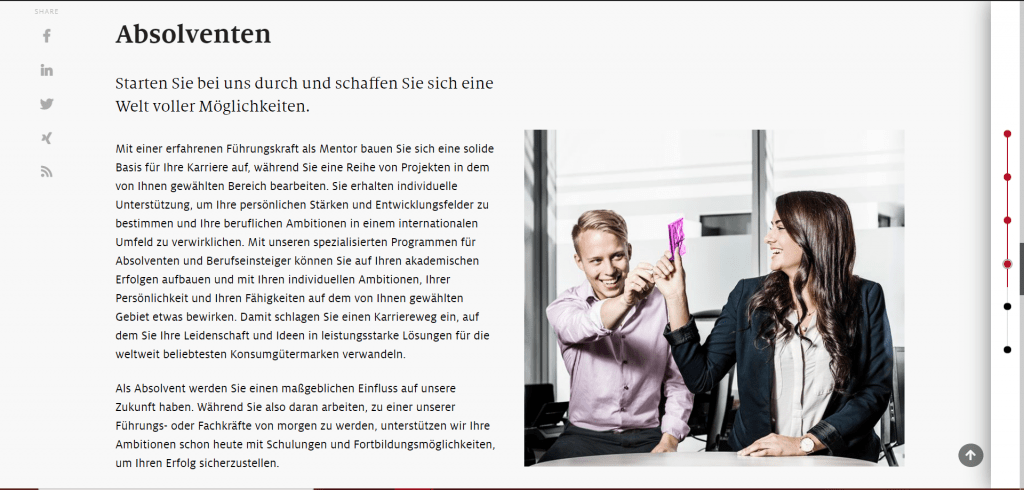
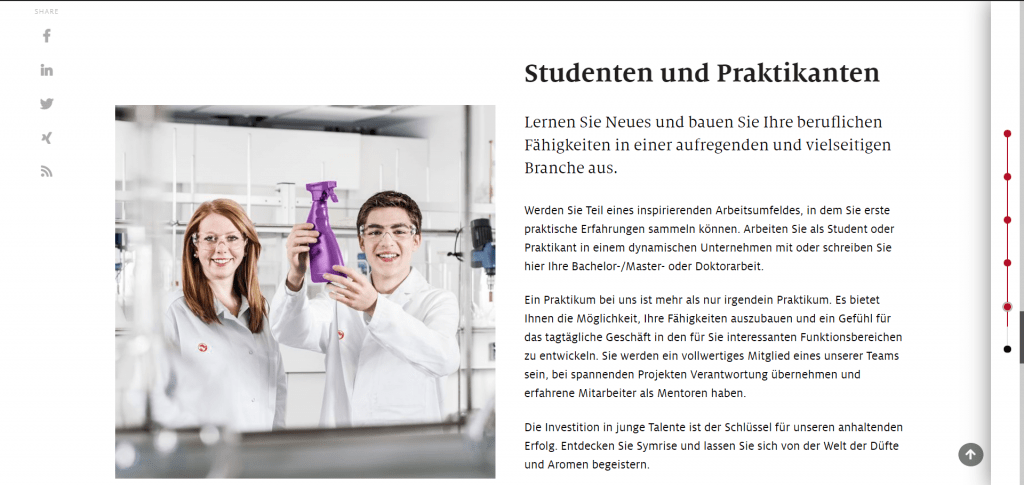
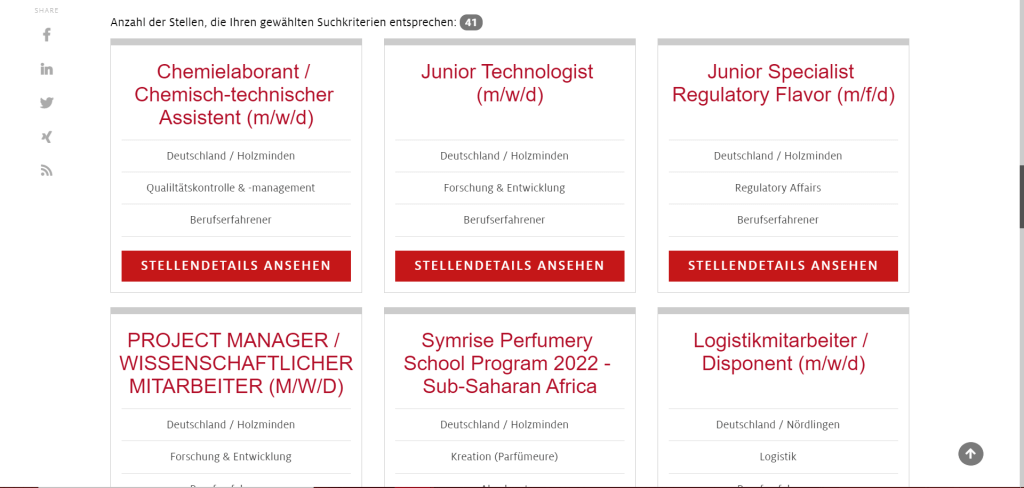
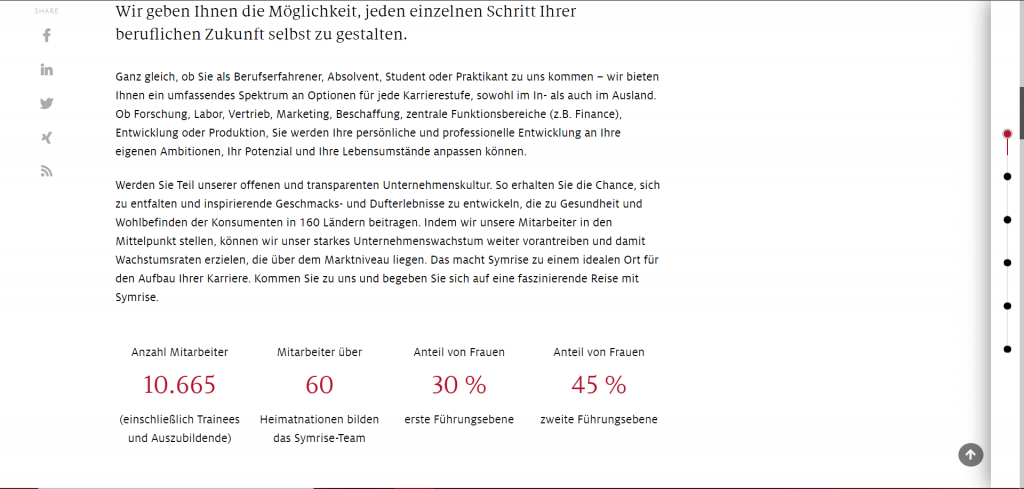
Volkswagen Vz.
„Wir stehen für Toleranz, Offenheit und einen solidarischen Umgang miteinander. Fremdenfeindlichkeit, Hass, Ausgrenzung und Verfolgung haben keinen Platz in unserem gemeinsamen Unternehmen.“ In Kombination mit dem regenbogenfarbenen VW-Logo . gibt dieser Satz schon einmal einen befriedigenden Eindruck wenn man die Volkswagen-Seite öffnet. Volkswagen war drauf und dran einer der Kandidaten zu werden, die in unserer Studie volle Punktzahl erhalten haben. Alle Stellenanzeigen sind neben der (m/w/d)-Form auch mit der „/in“-Ergänzung versehen. Auch bei Wegweisern für z.B. „Studierende“ ist diese Form bei den Bezeichnungen vorhanden. Obwohl diese Punkte VW fast zu einer genderneutralen Webseite machen, kann hier aus folgenden Aspekten nicht die gesamt Punktzahl vergeben werden: Zwar sind in vereinzelten Überschriften und Textbausteinen genderkonforme Bezeichnungen zu finden, dennoch sind die meisten Fließtexte ohne diese Rechtschreibung verfasst. Diese inkonsequente Durchsetzung führt im Endeffekt dazu, dass wir hier nur zwei von drei Punkten vergeben können.
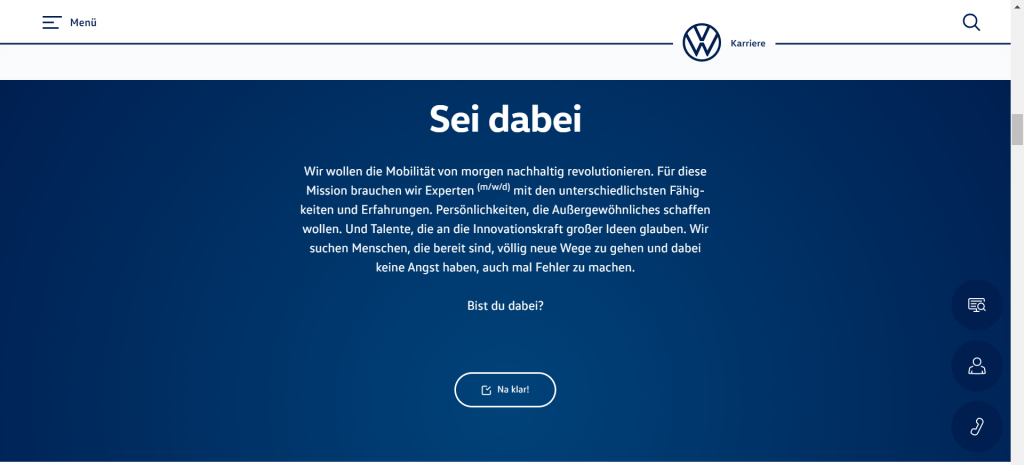
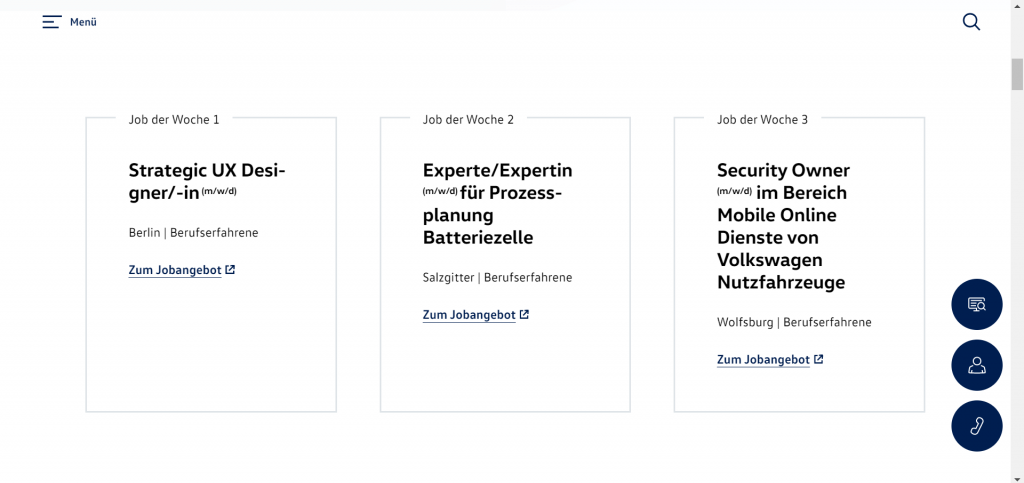
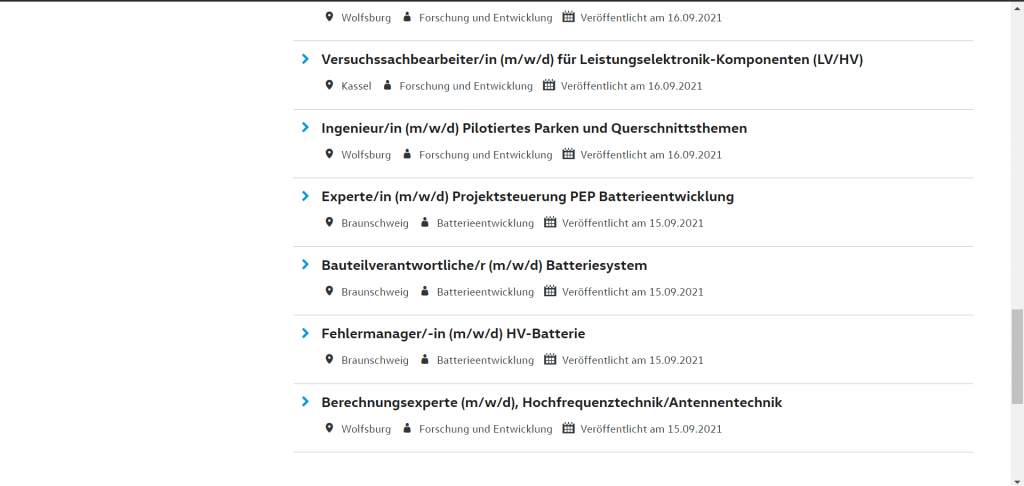
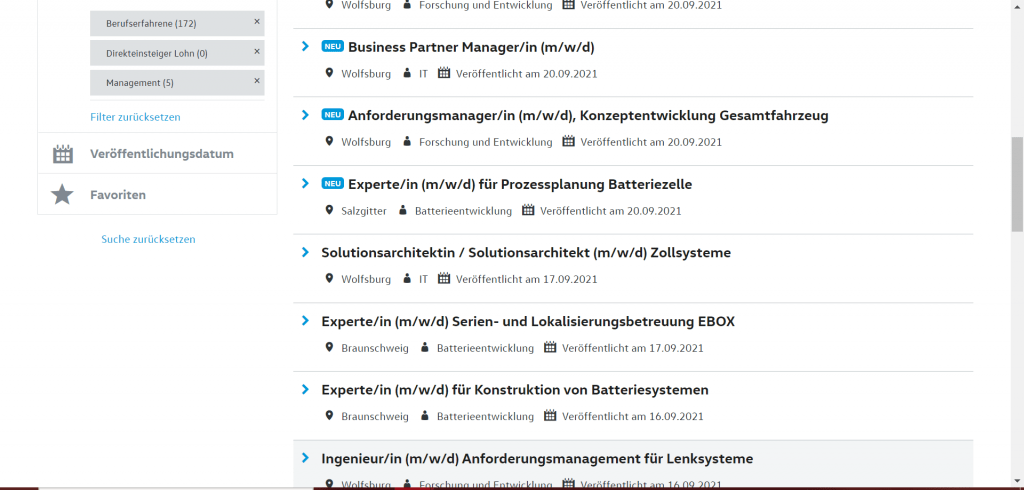
Vonovia
Im Vergleich zu VW steht der Bochumer Immobilienkonzern, im Bezug auf Diversity und Inklusion, relativ schlecht da. Gendergerechte Ansprachen in Informations- oder Fließtexten sucht man hier vergebens. Zwar wurde einige wenige Male, durch die Ansprache an das feminine und maskuline Geschlecht, probiert eine Genderneutrale Atmosphäre zu schaffen, doch durch die inkonsequente Handhabung, können wir dies nicht in unsere Wertung mit einbeziehen. Auch die Stellenanzeigen richten sich alle mit ihrer Ansprache nur an das maskuline Klientel. Durch die (m/w/d)-Form wurde probiert diese ganzen Punkte wieder gut zumachen, da dies aber gesetzlich so vorgeschrieben ist, können wir das nicht mit großer Anerkennung aufnehmen. Insgesamt erzielt Vonovia nur einen Punkt in unserer Studie.
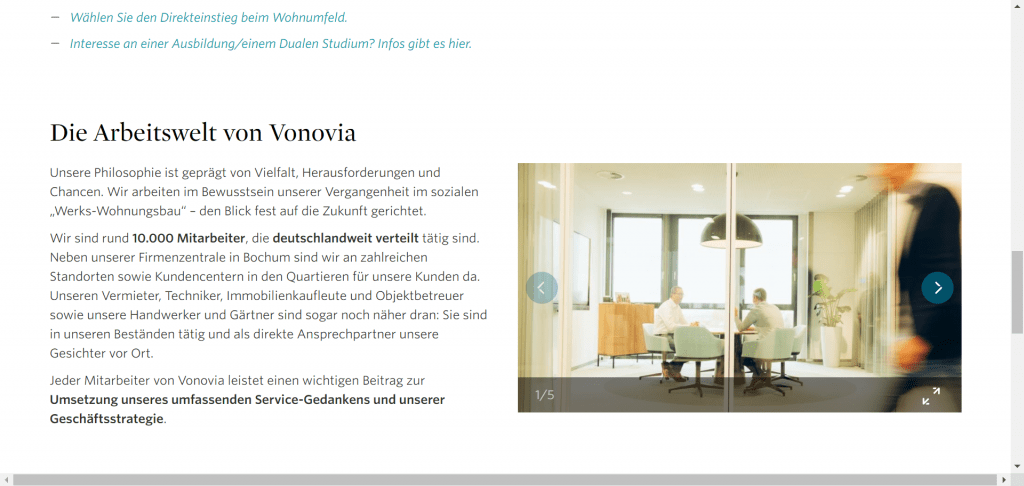
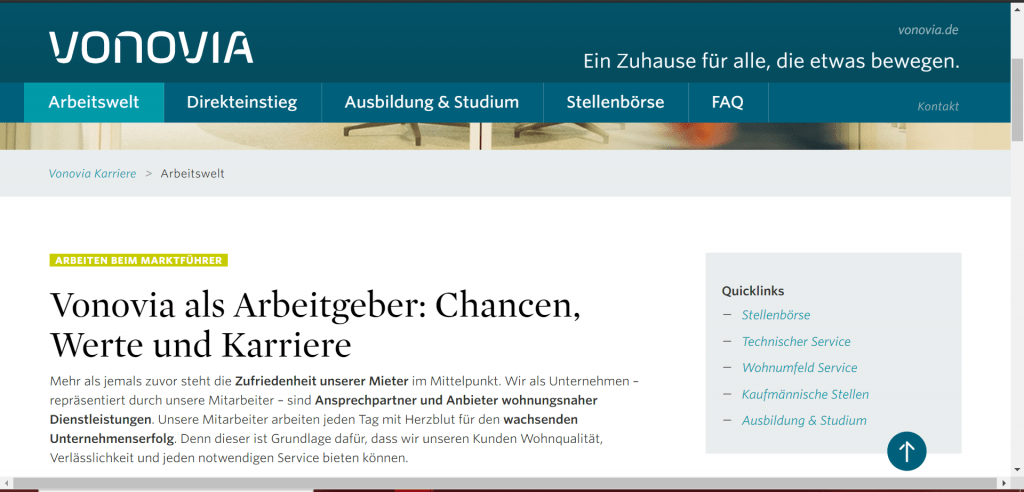
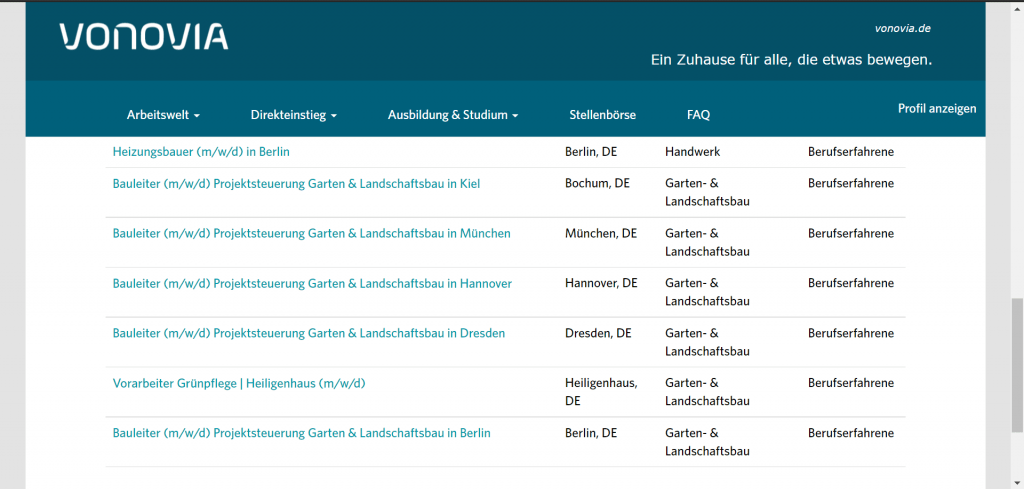
Zalando
Der Online-Versandhändler für Schuhe, Kleidung und Kosmetik hat seinen Hauptsitz in Berlin. Zu unserem Überraschen konnte Zalando nur zwei von drei Punkten erzielen. Zwar wirbt Zalando immer mit der Vielfalt ihres Unternehmens und auch mit der Inklusiven Sprache, dennoch konnte wir diese „Inklusive Sprache“ nur in den Fließtexten und Wegweisern auffinden. In den Stellenanzeigen wurde zwar durch Wortergänzungen mit „*innen“ versucht dem gerecht zu werden, jedoch wurde dieses Prinzip nur extrem inkonsequent durchgeführt. Die gesammten Texte sind dennoch mit der Wortergänzung „*innen“ versehen. Dies führt zu einem Endergebnis von zwei Punkten.
